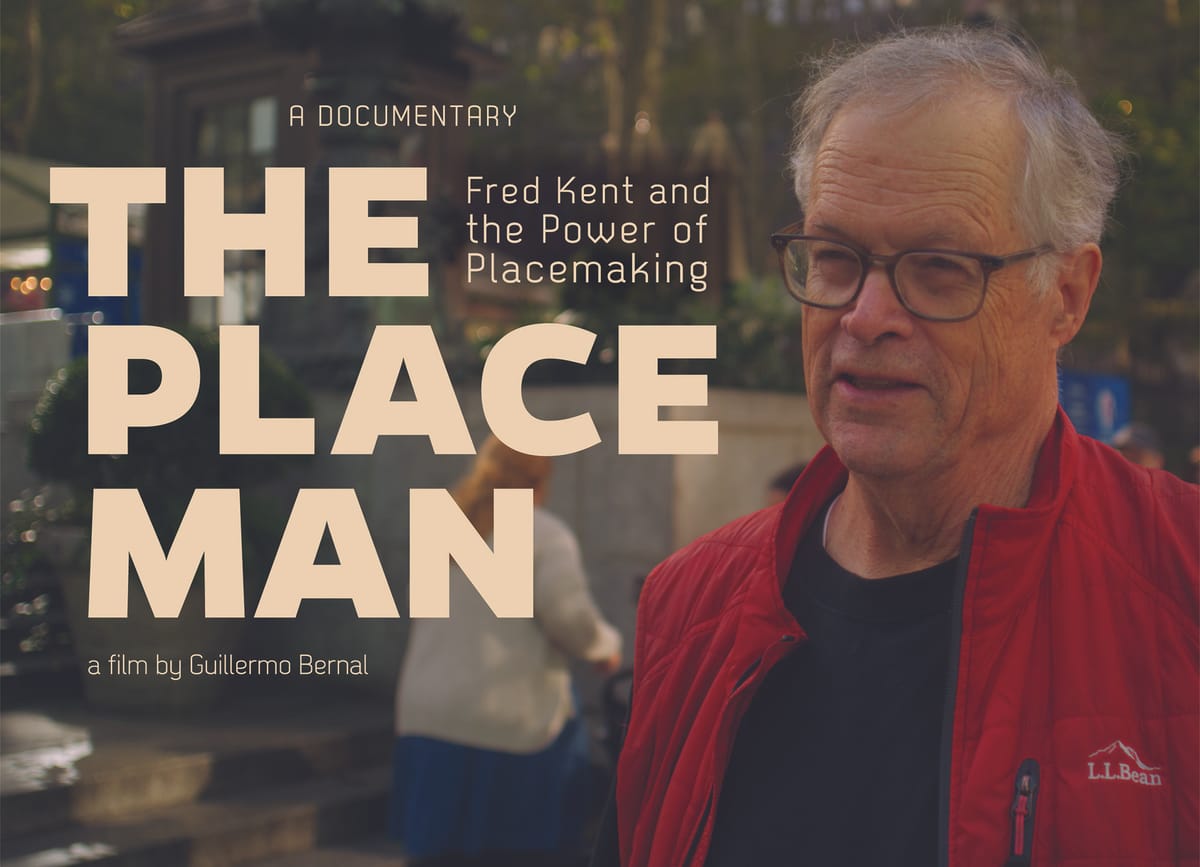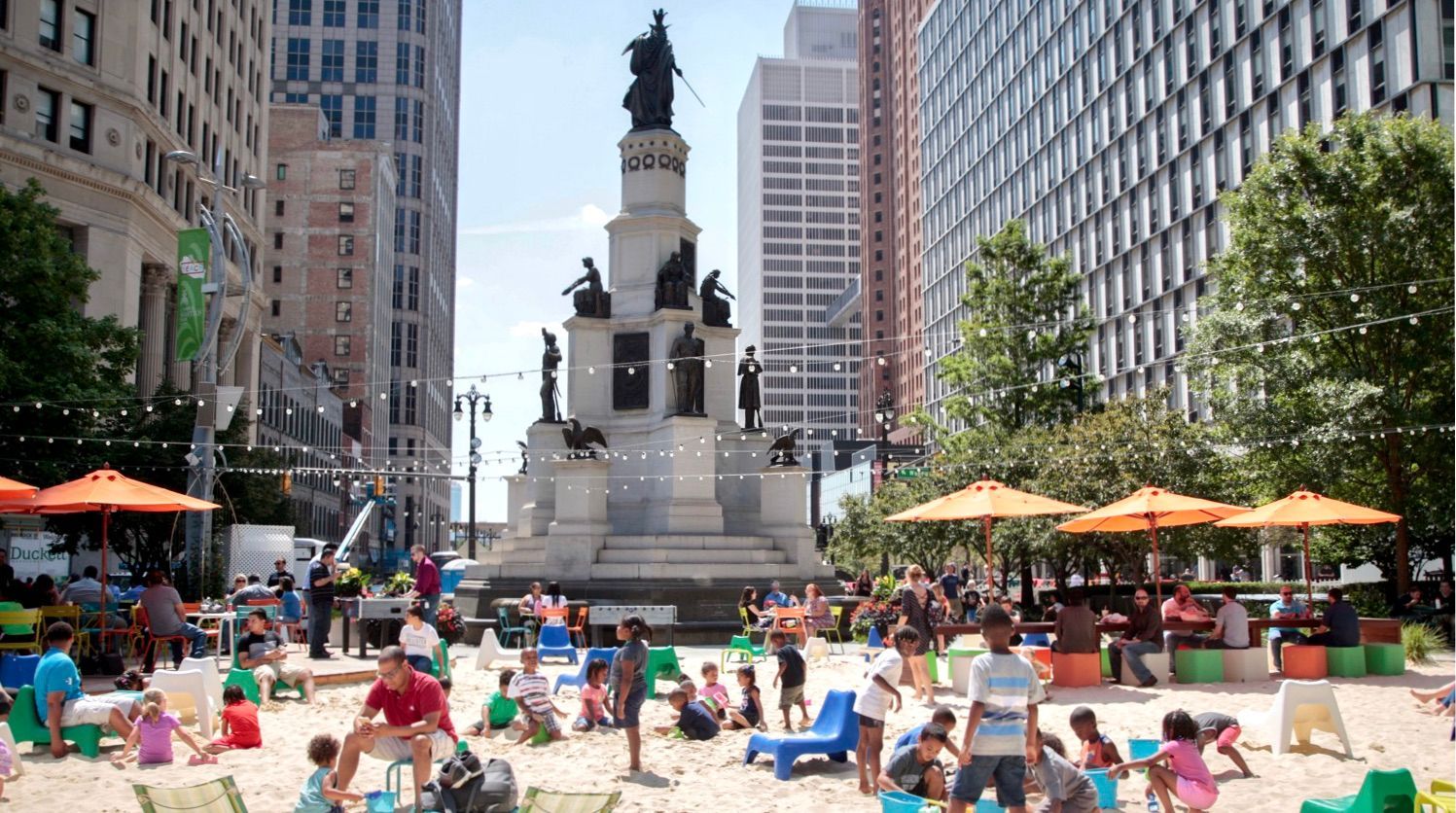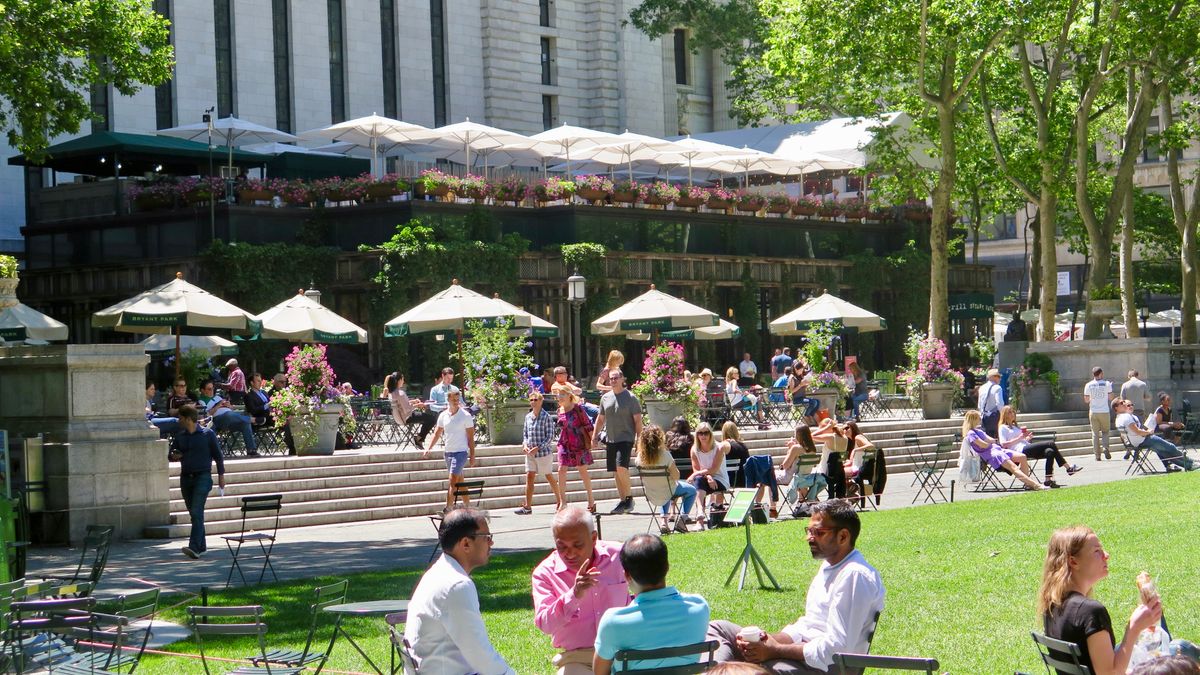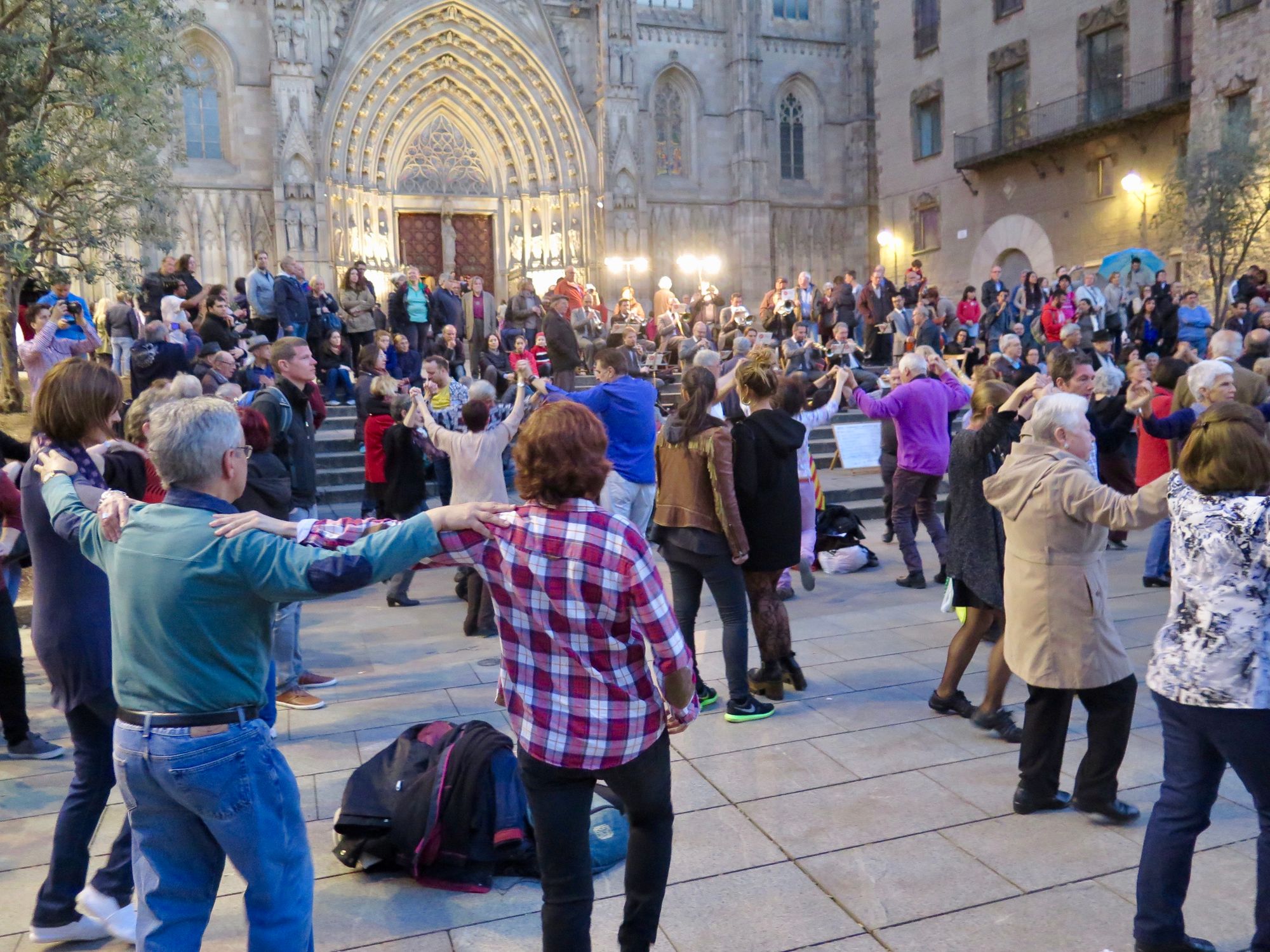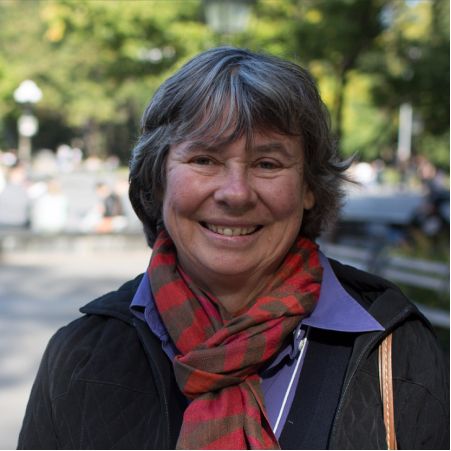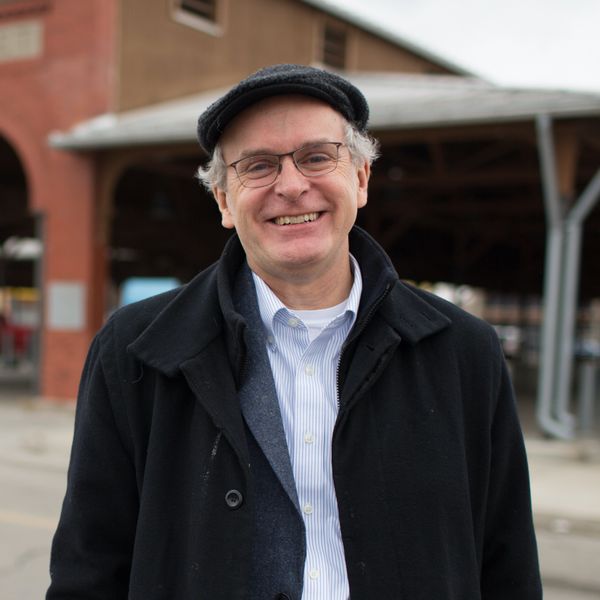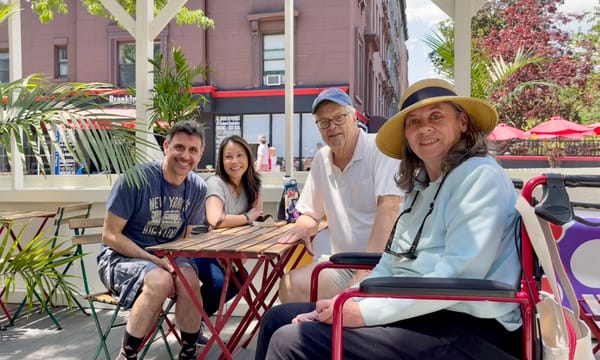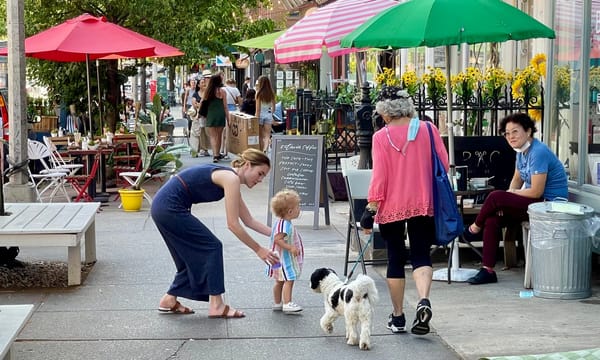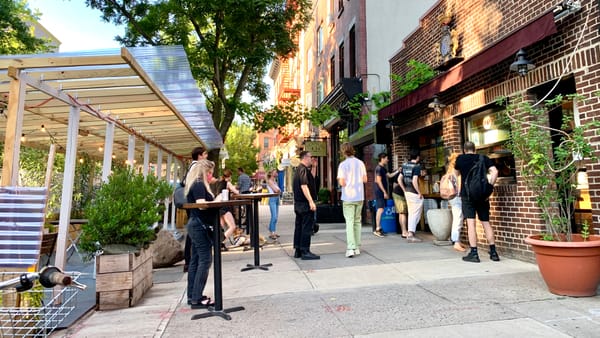Founded in 1874 and still thriving today
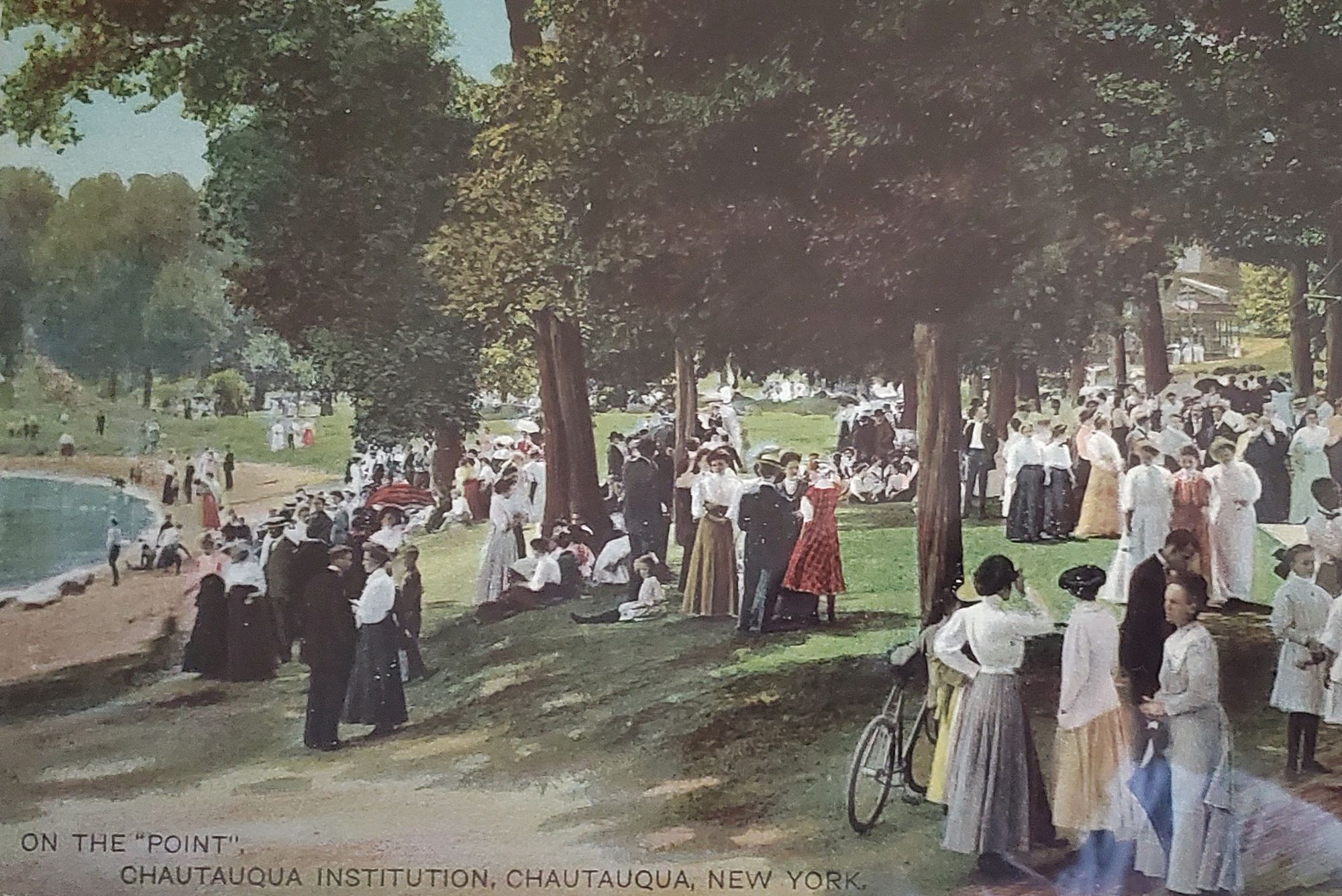
“There's no place like it. No resort. No spa. It is at once a summer encampment and a small town, a college campus, an arts colony, a music festival, a religious retreat, and the village square." – Historian and author David McCullough
Founded in 1874, Chautauqua Institution in Western New York State is a hard place to describe. Started as a retreat for Methodist Sunday School teachers, Chautauqua evolved rapidly in the 19th Century to become a remarkable gathering place. Its four "pillars" of Arts, Education, Religion, and Recreation are woven into the daily schedule of a nine-week summer season. Beyond its bucolic site on Lake Chautauqua, Chautauqua Institution launched the first book club in America (boasting some 60,000 members in the 1880's) and became a national movement that inspired mini-Chautauquas that brought the four Pillars to small towns across America.
Three years ago we went for our first visit.. The experience of being there was like no other in our entire careers of traveling the world working, or in our quest to look for the best of the best. Chautauqua is paradise on earth and a sacred place.
Chautauqua has all the public spaces of a small town (including a town square and lakefront promenade) as well as those of a campus (wonderful quadrangles, outdoor meeting venues). During the nine-week summer season, cars are limited on the 750-acre grounds so everyone walks, bikes, or takes a shuttle bus or mobility scooter to get around. There are almost no sidewalks. A gate pass admits you to all the concerts, lectures, and hundreds of events that take place there every week. We had ample time to explore both the historic core and newer neighborhoods and, with Steve as guide, we went pretty much everywhere.
The buildings in the historic core, mostly built prior to World War I, all have porches and there are virtually no cars on the streets. The few cars that we saw in our five days were coming to our hotel or just making a rare trip for provisions. Very few houses had parking, and if they did it was usually well hidden. The roads are narrow and the predominant vistas are of nature, greenery, and flowers, and people walking, biking, or sitting on porches.
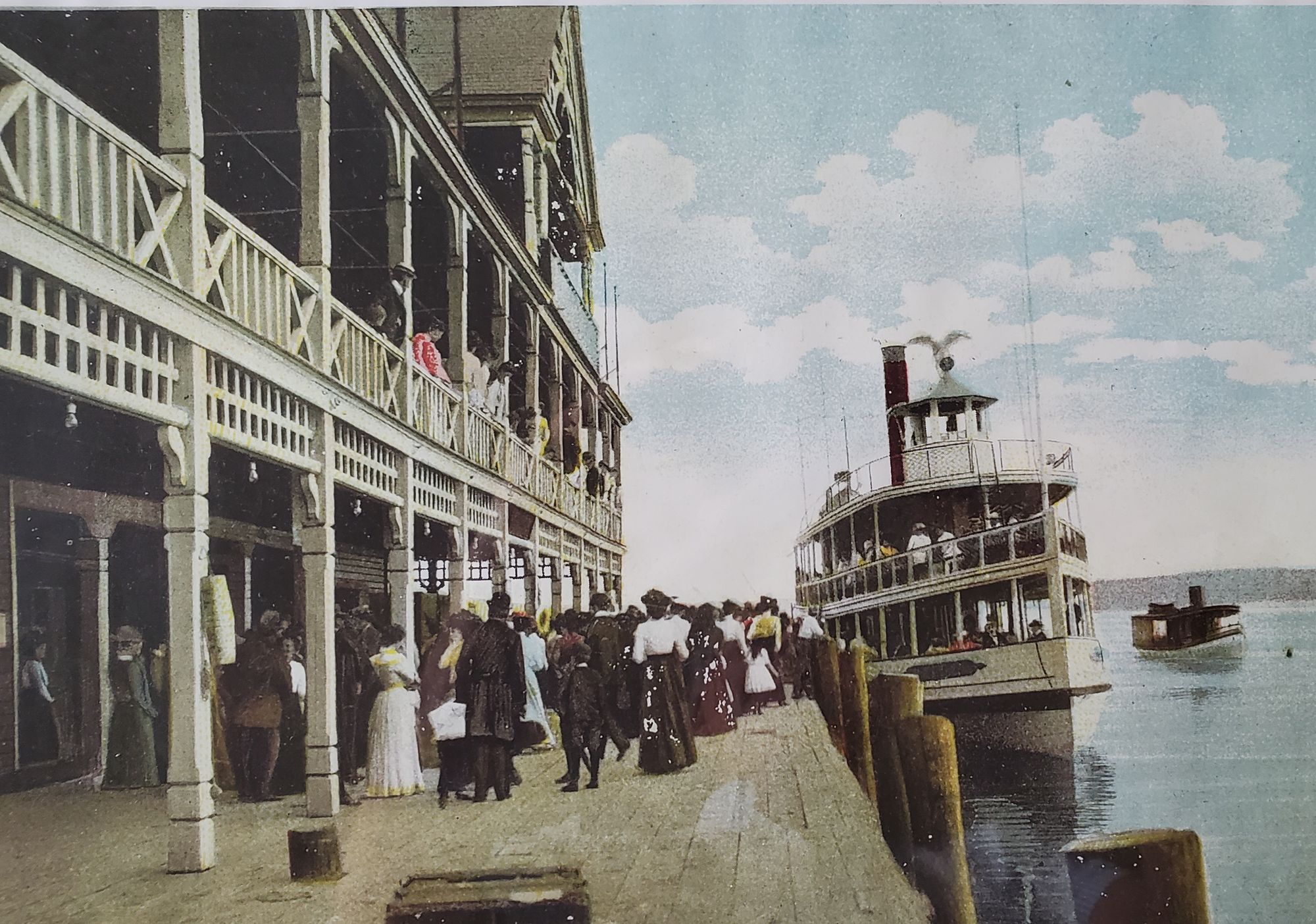
Before the automobile, Chautauquans arrived by steamboat and rail
All the Streets in Chautauqua are for people
This is one place twhere all the streets are basically, ...Sidewalks. People walk, stroll, ride bikes, and jog in the streets, and the few vehicles that need to be there must drive 12mph.
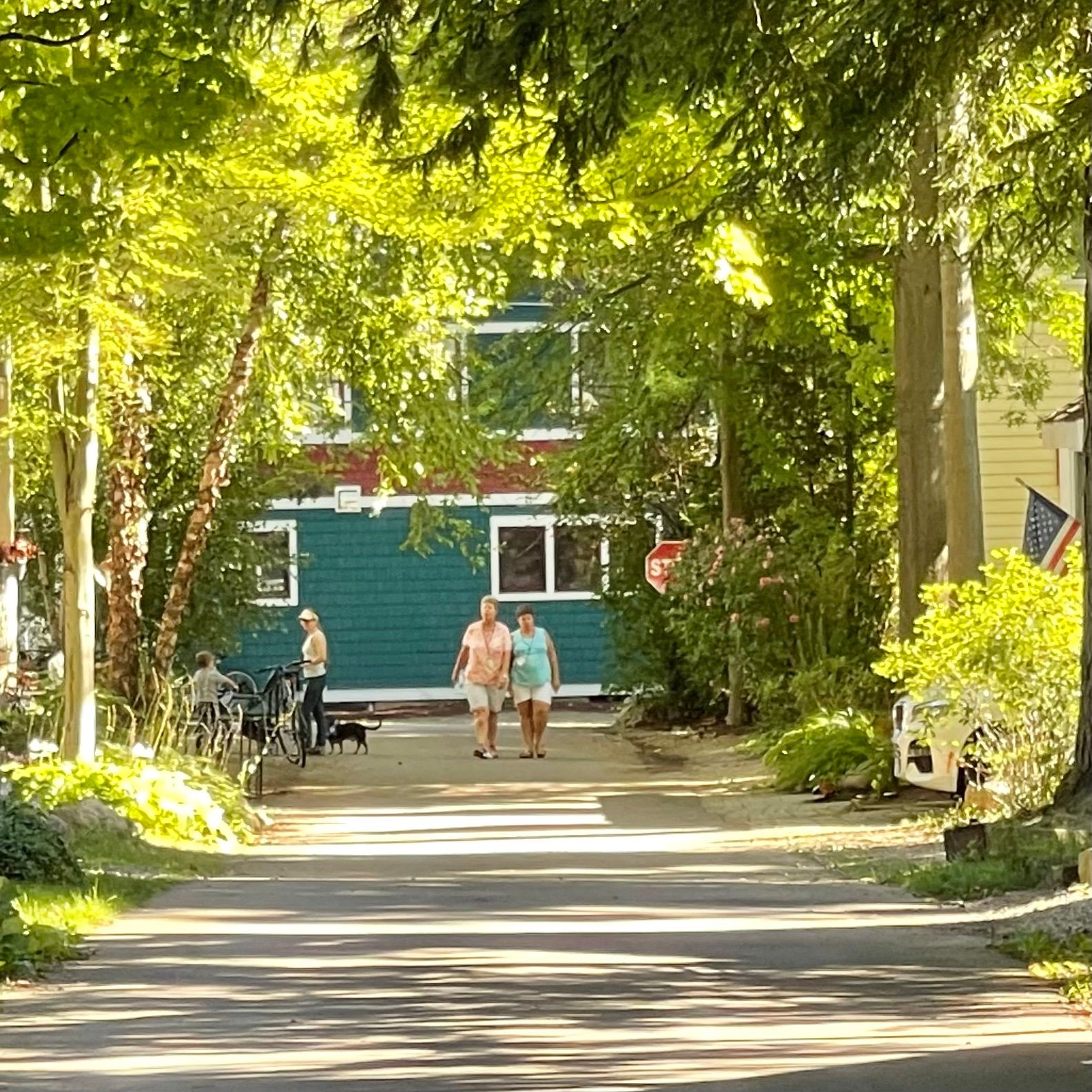
This is a typical street
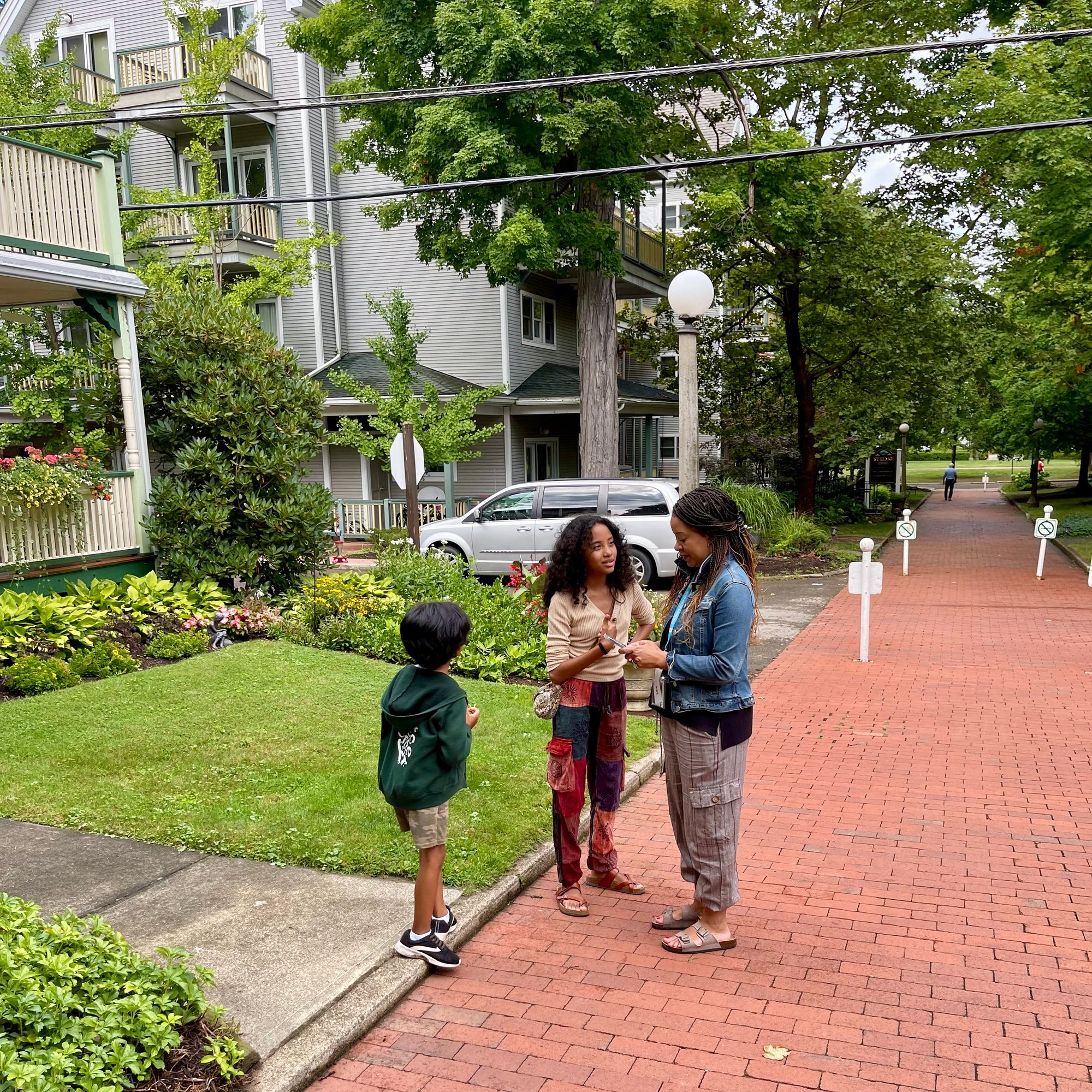
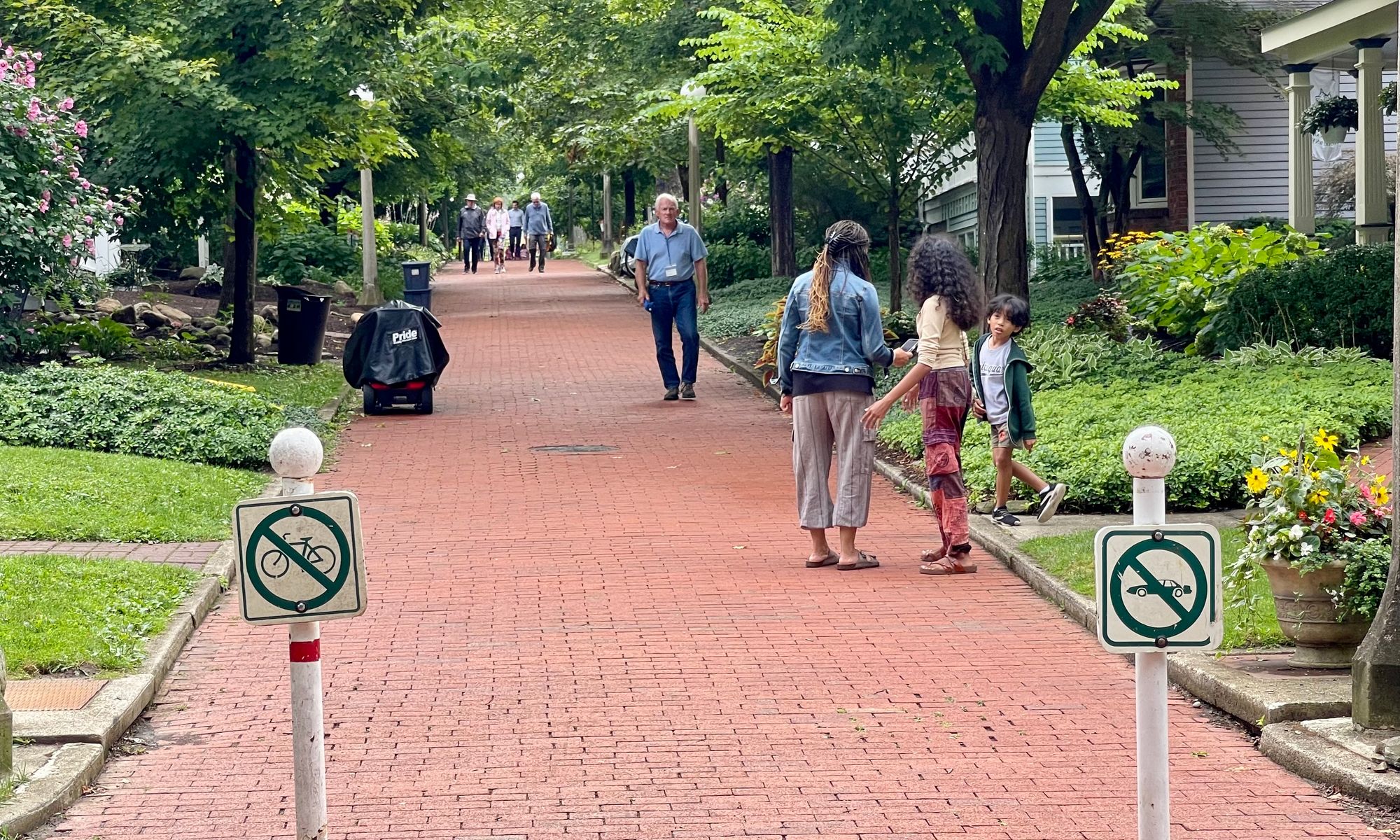
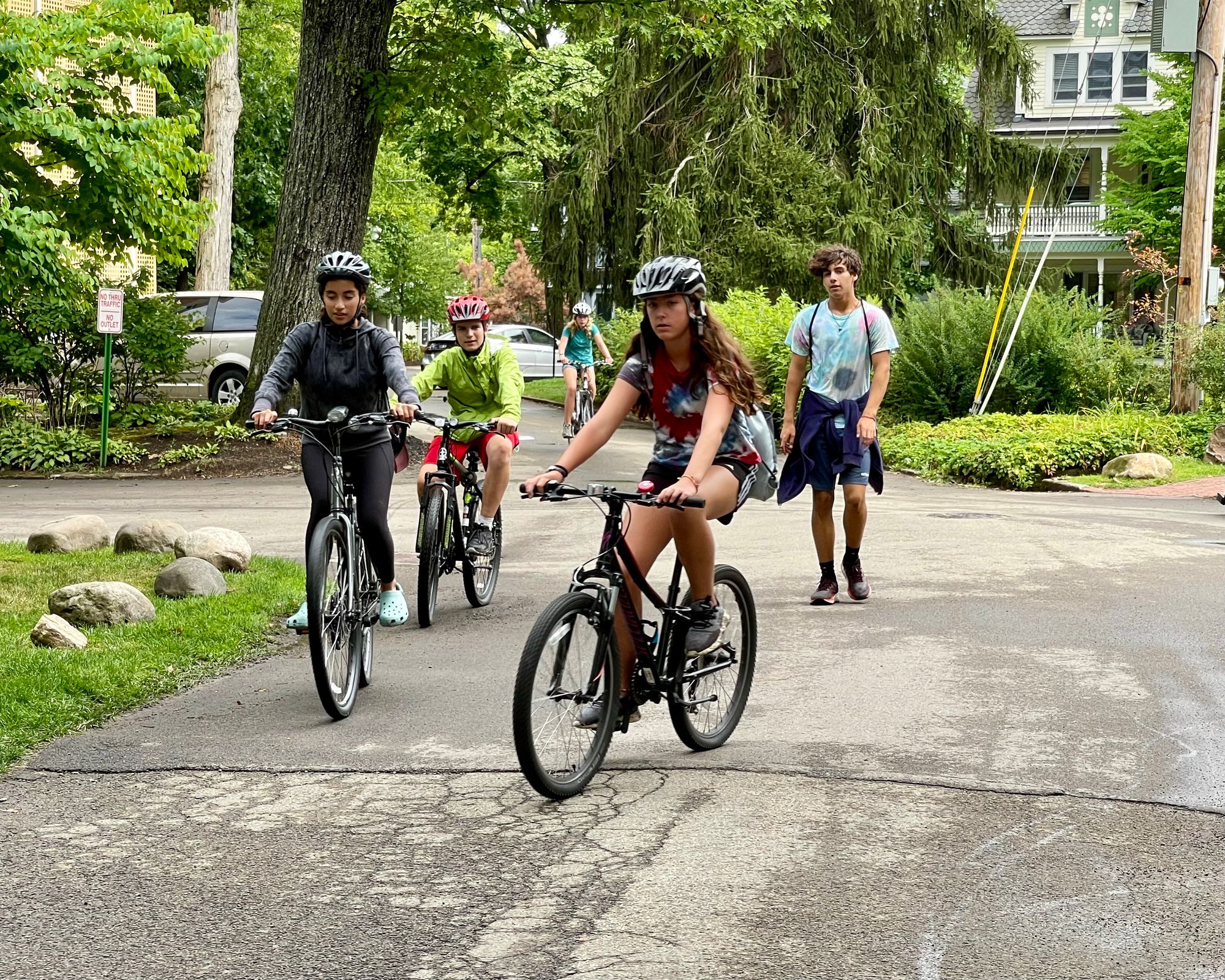
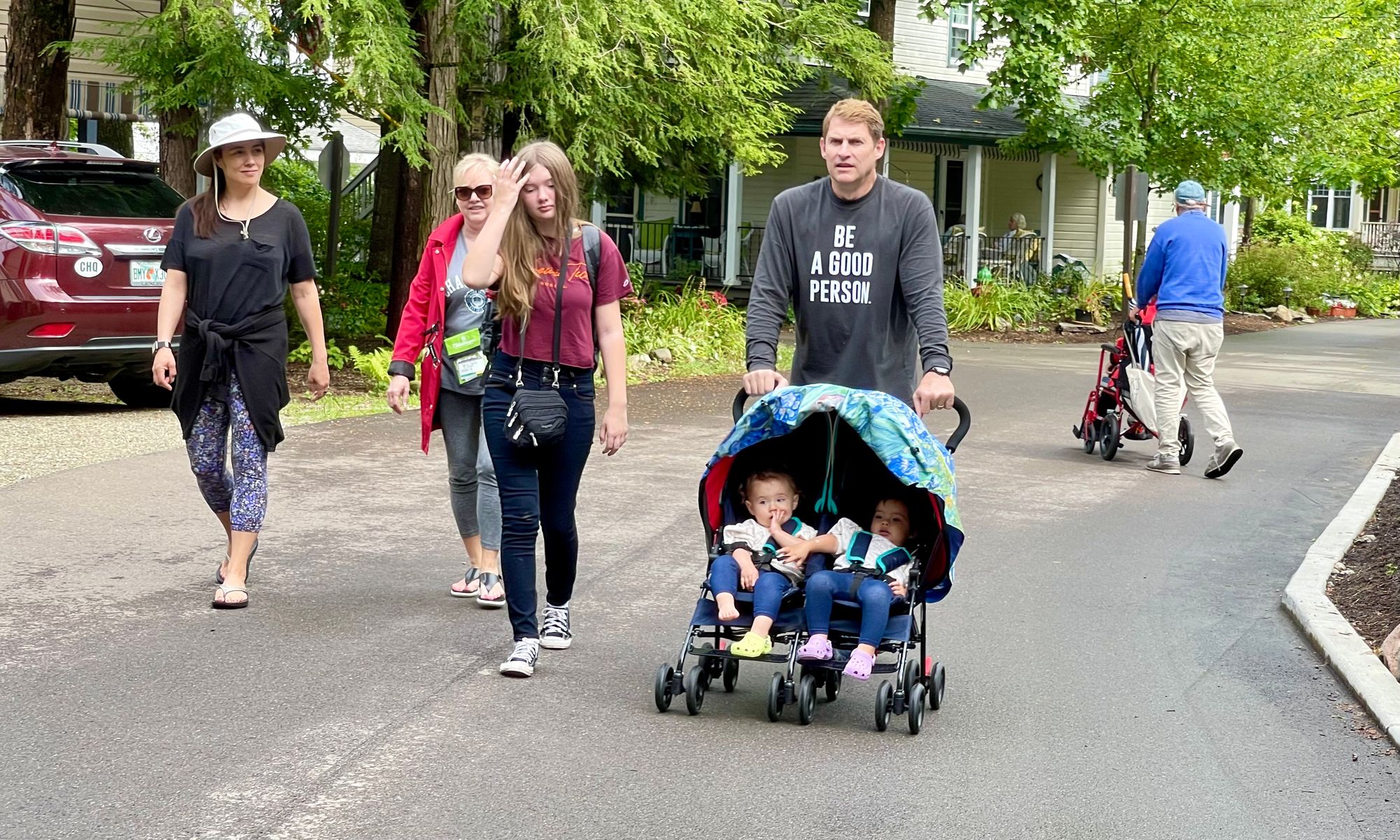
The Main Square
The heart of Chautauqua is a square called Bestor Plaza. Flanked by the post office, bookstore, public library, coffee shop, stores, and administrative offices, the square is full of impromptu social interactions. There's a market on Tuesday, kids play in the fountain, and people sit and socialize in this very special place.
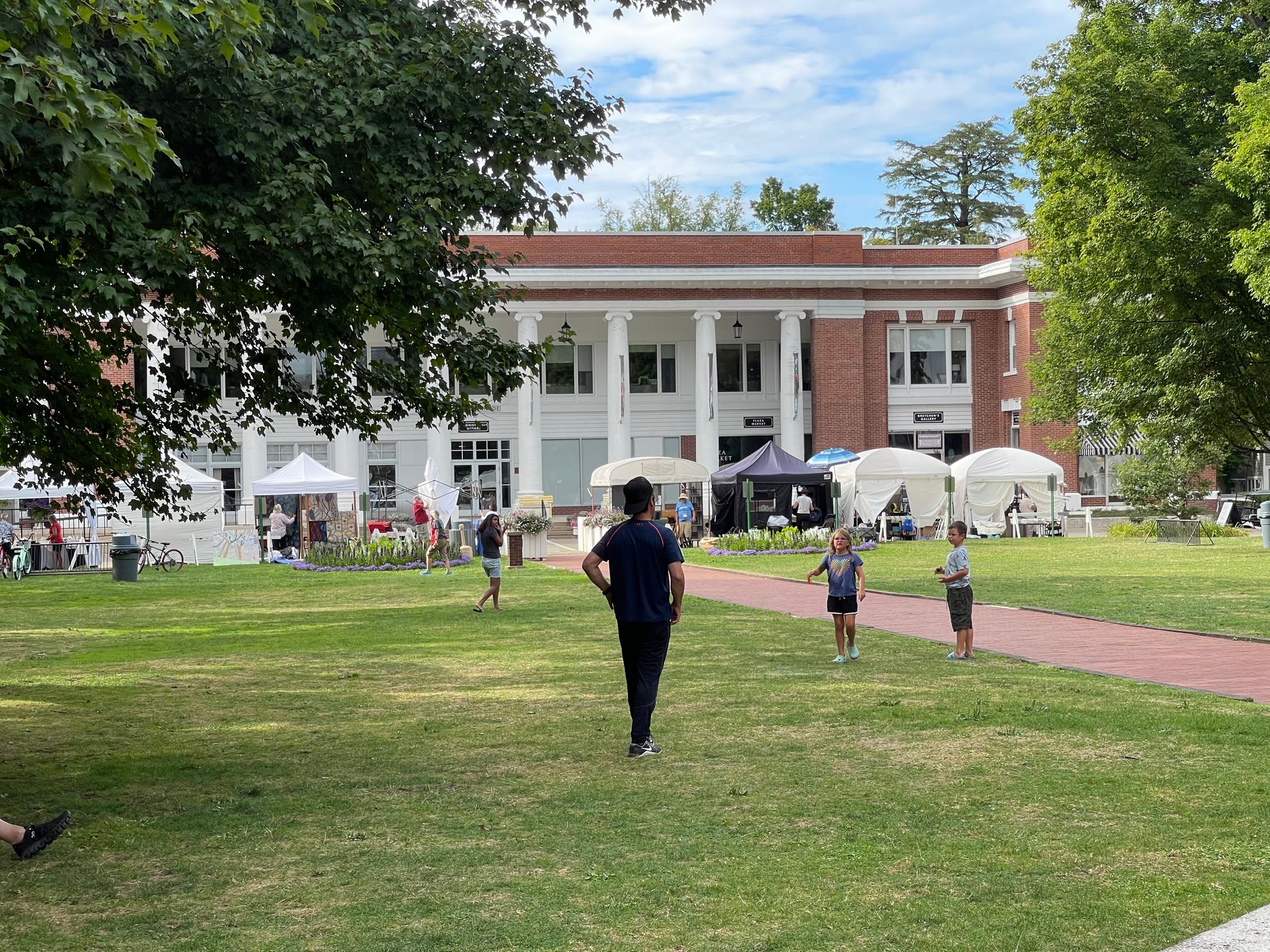
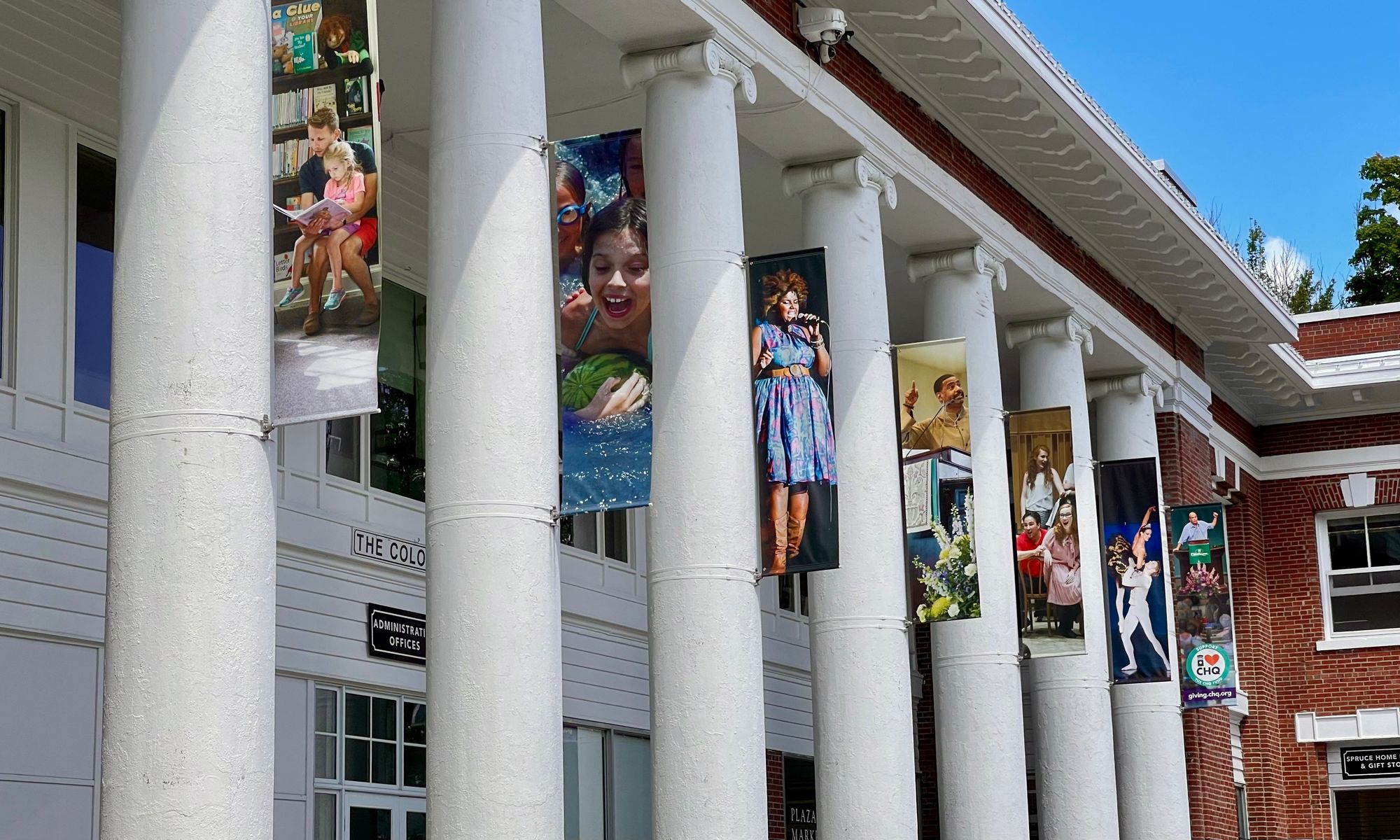
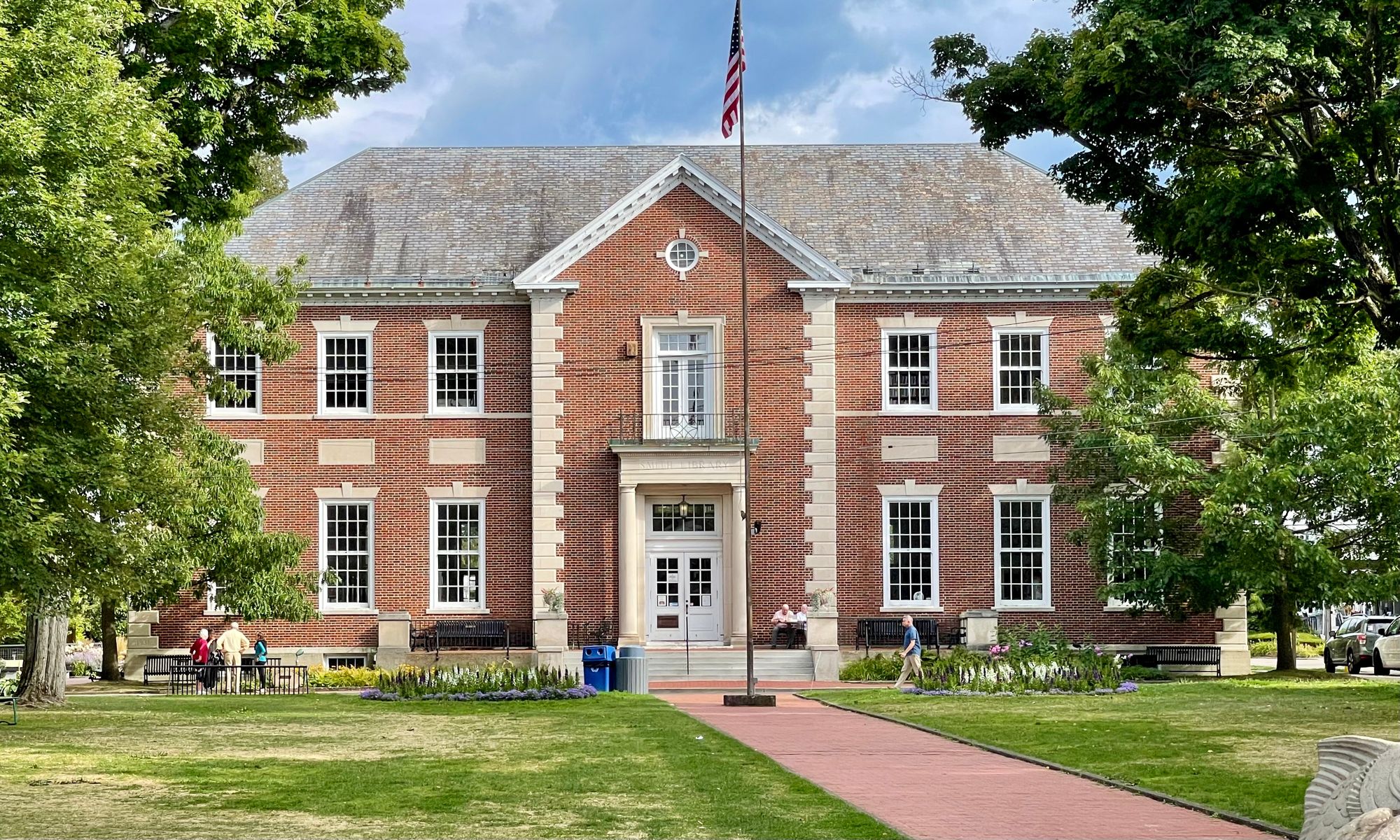
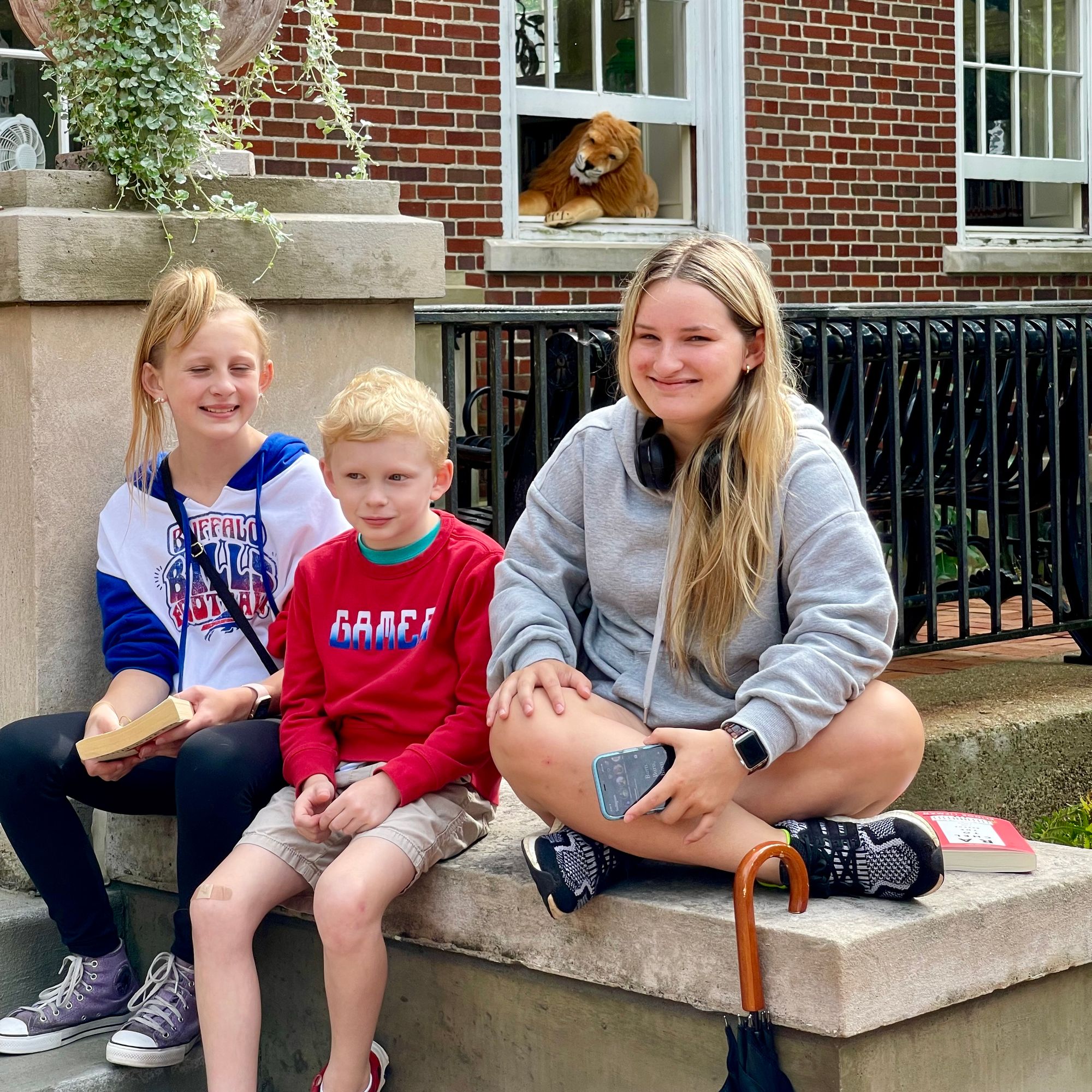
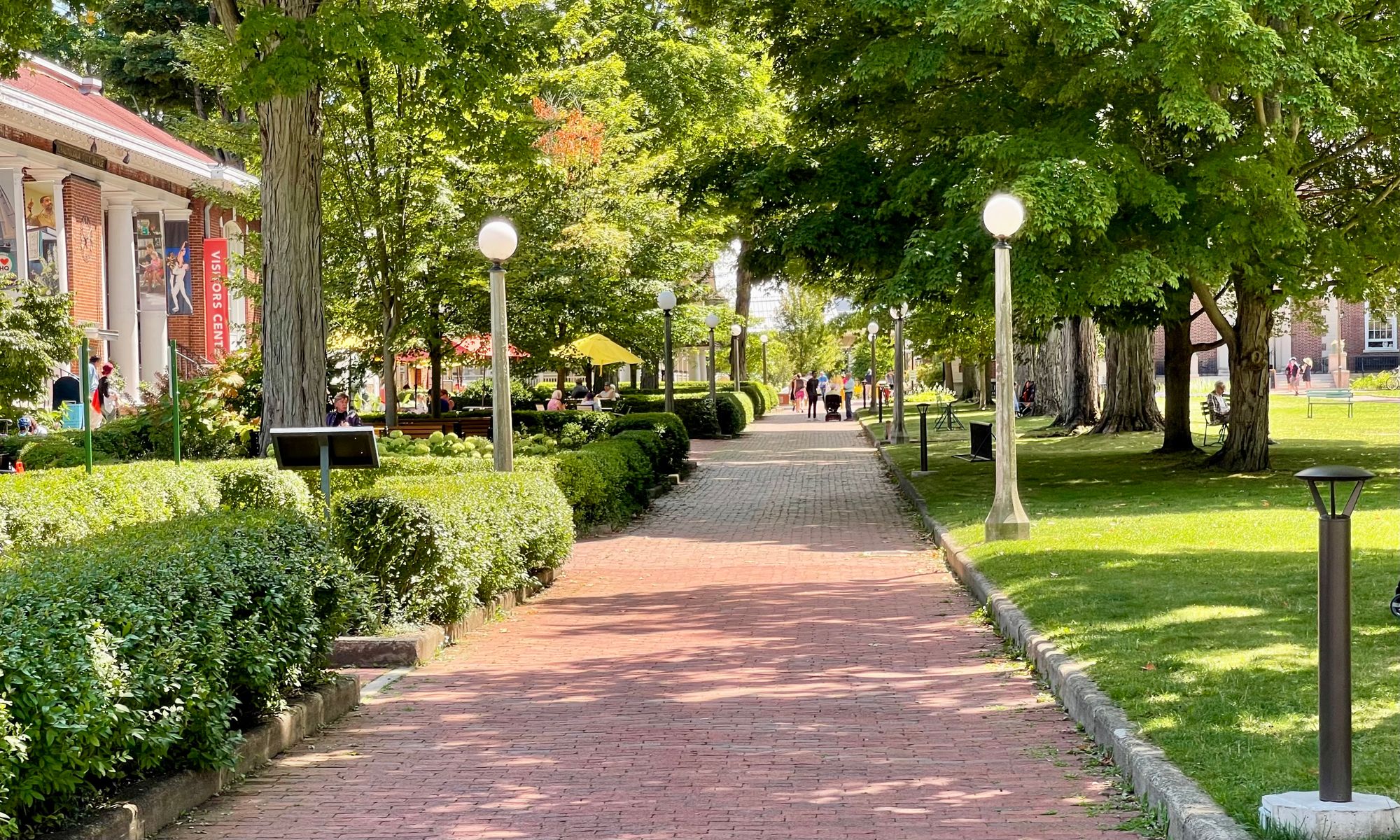

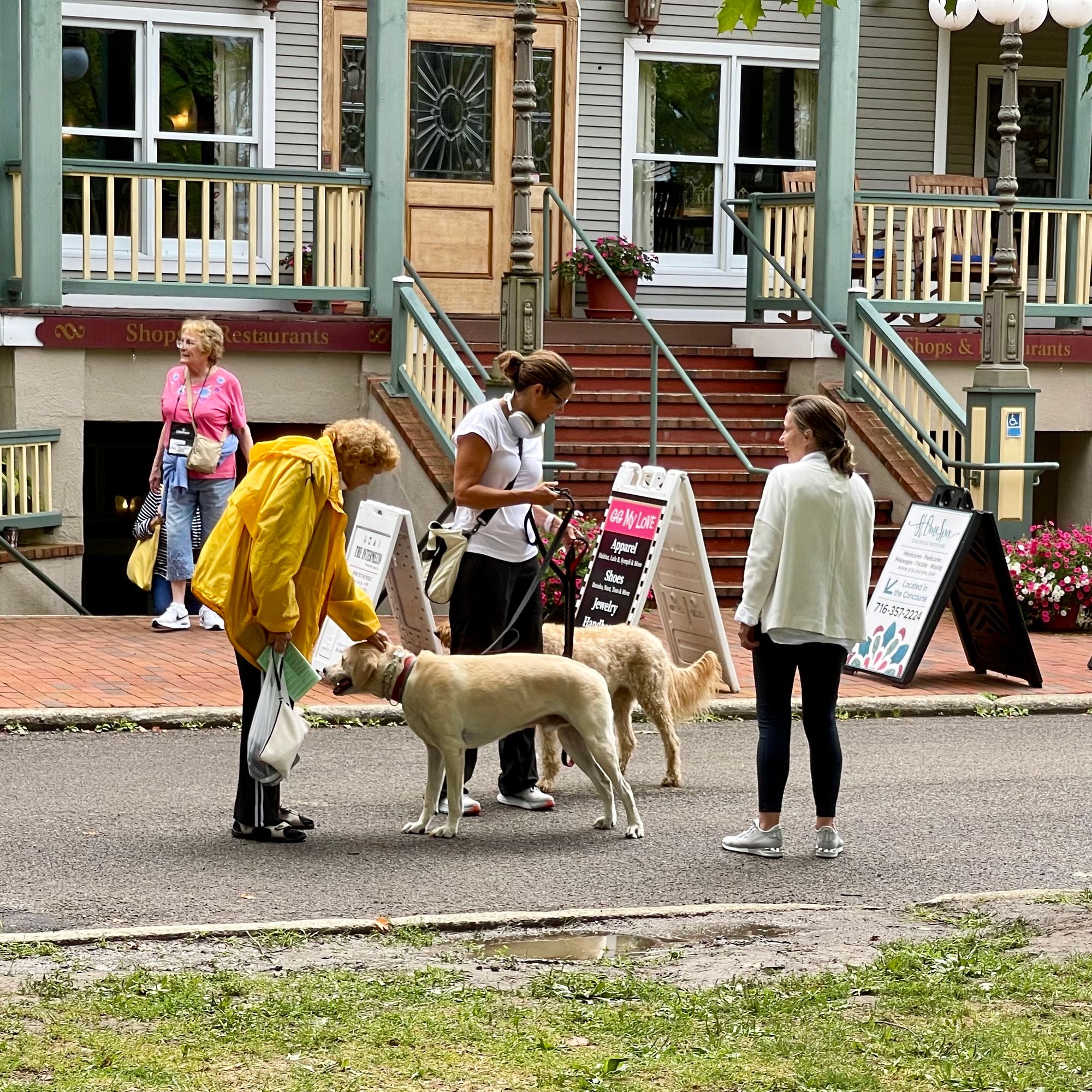
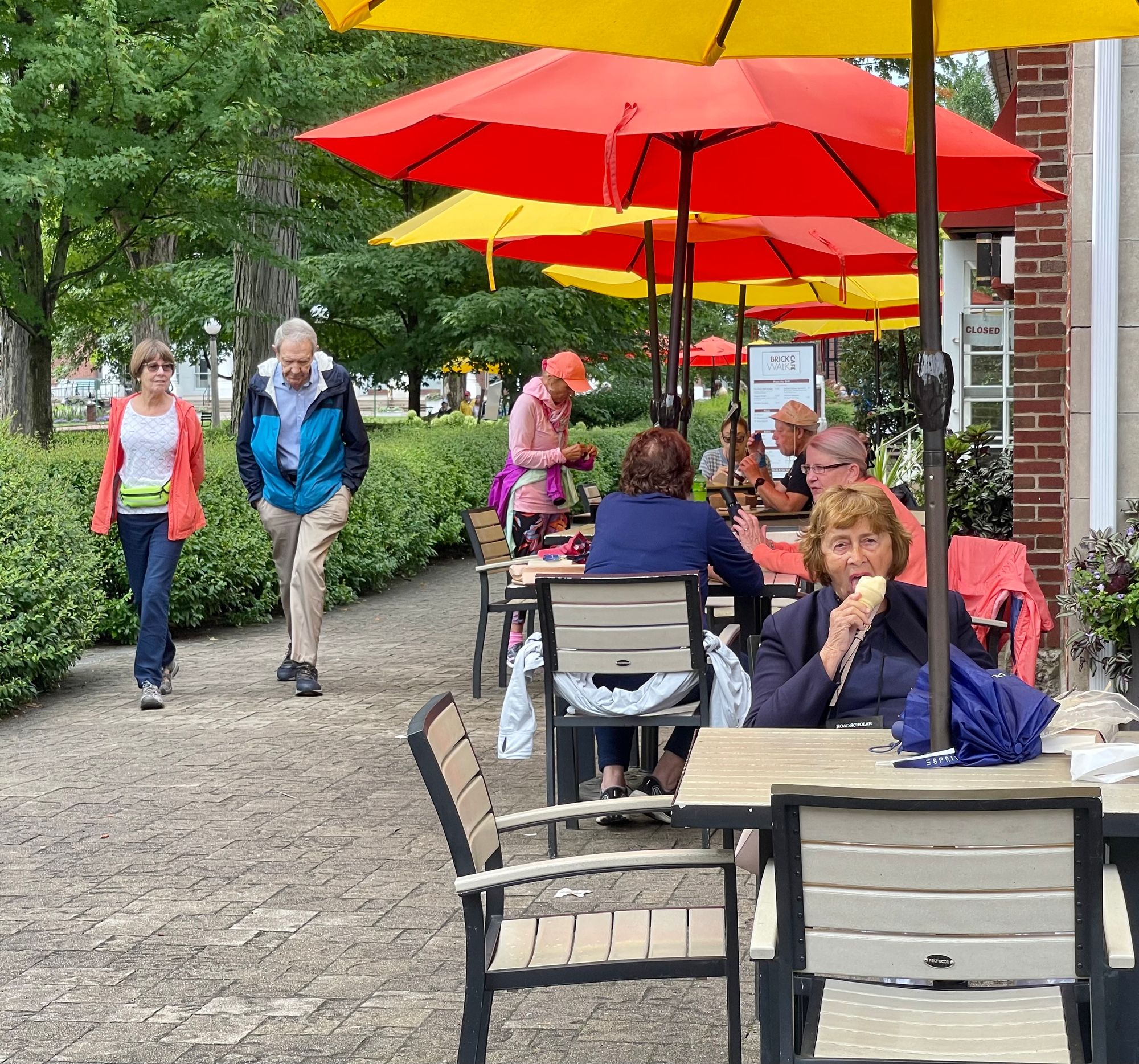
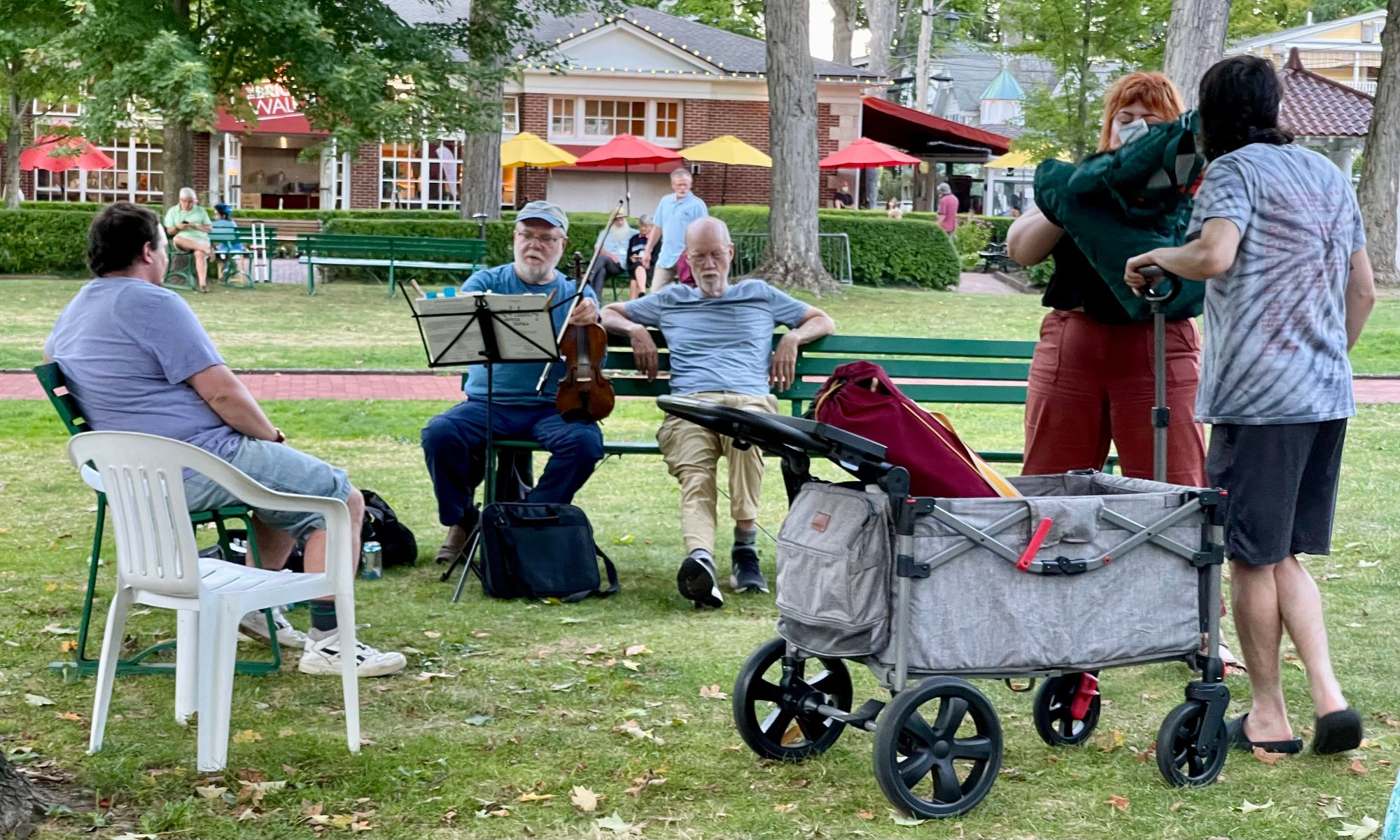
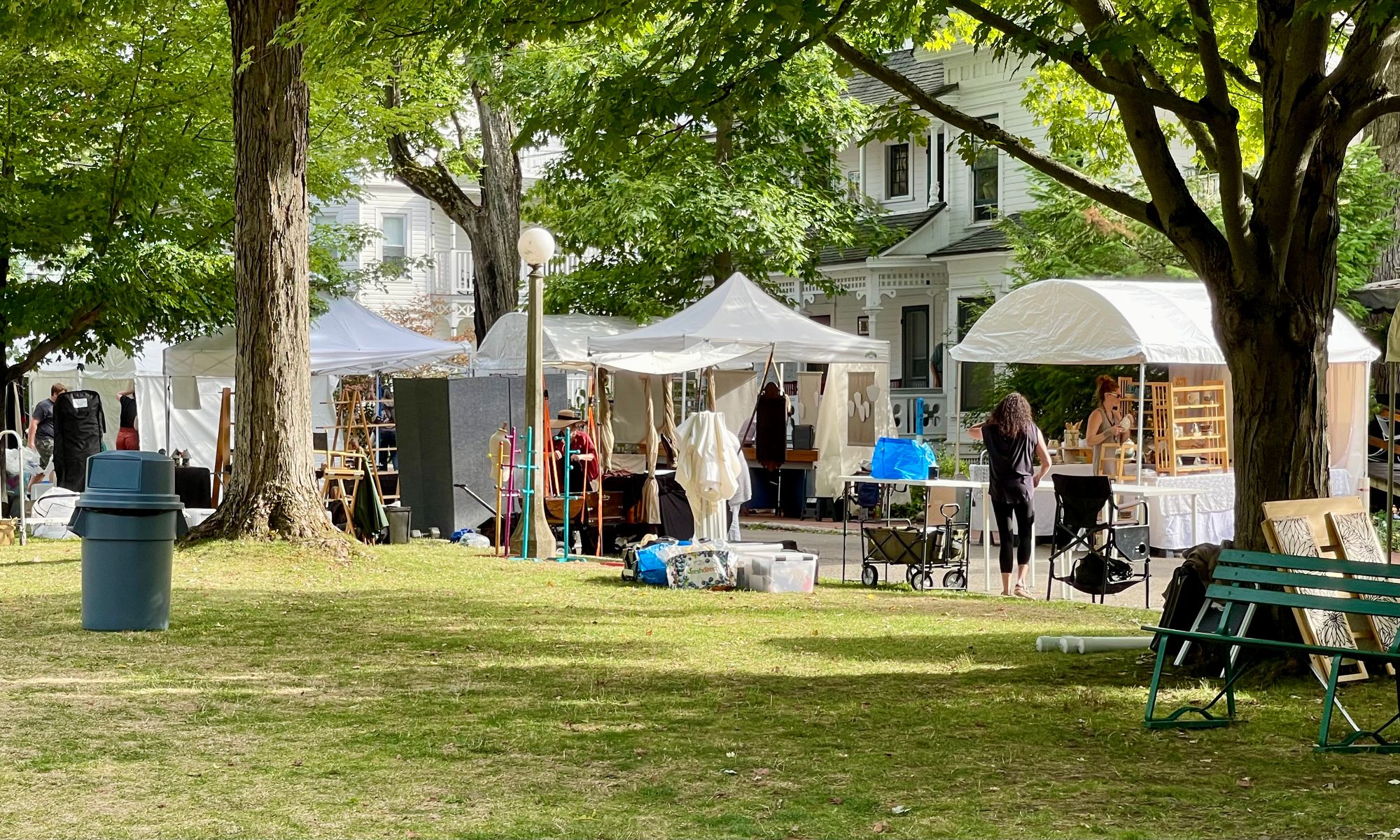
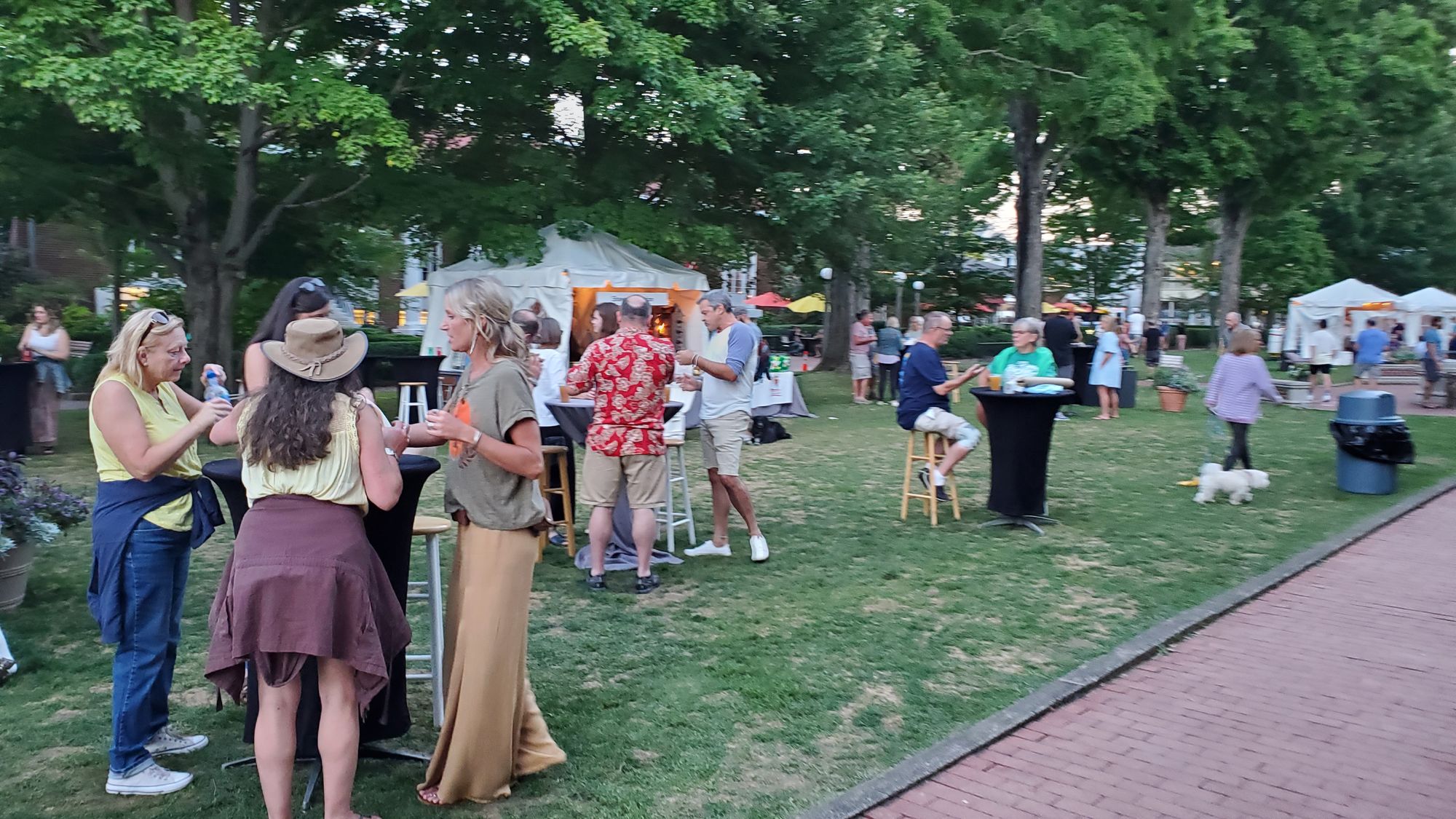
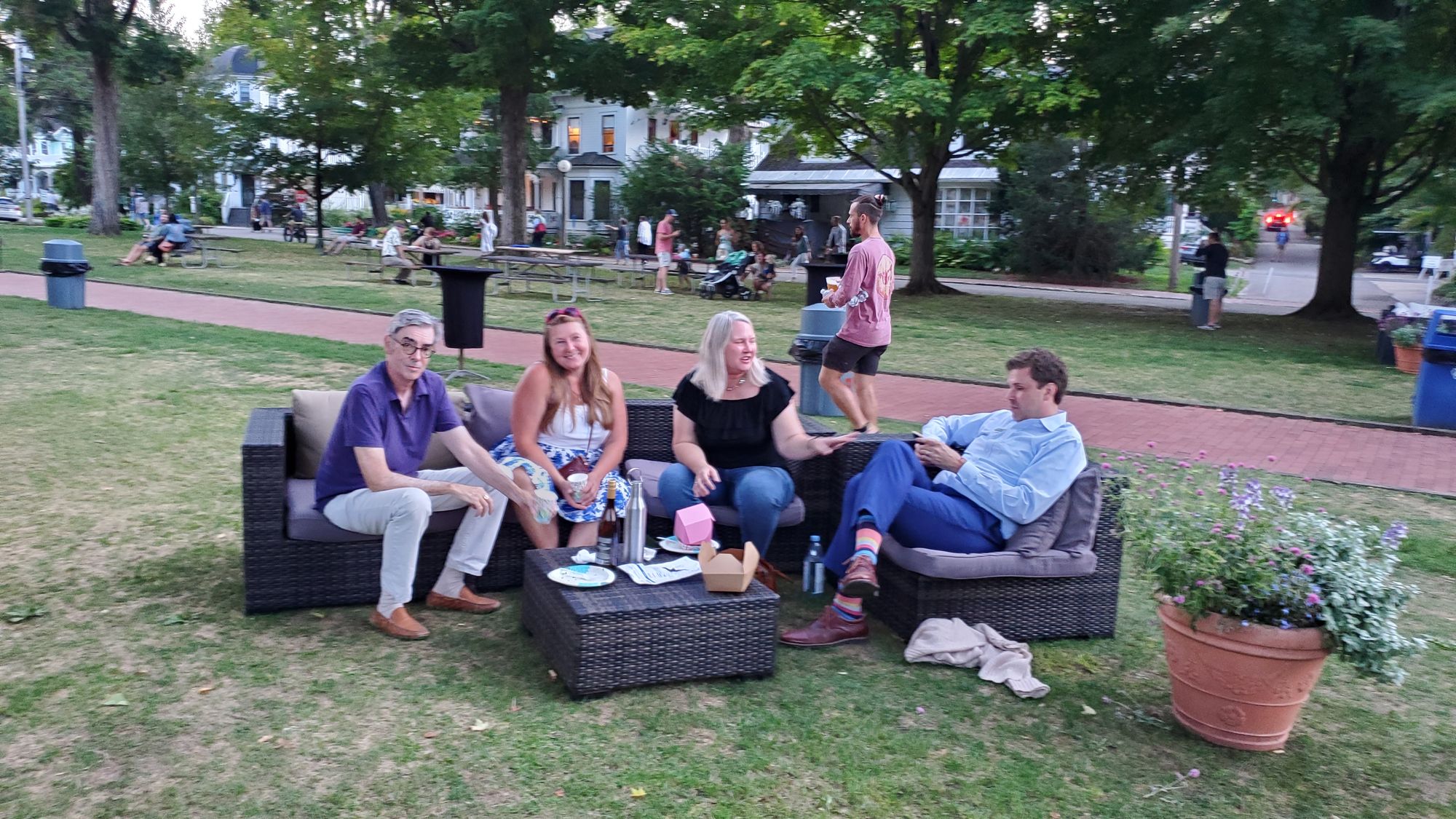
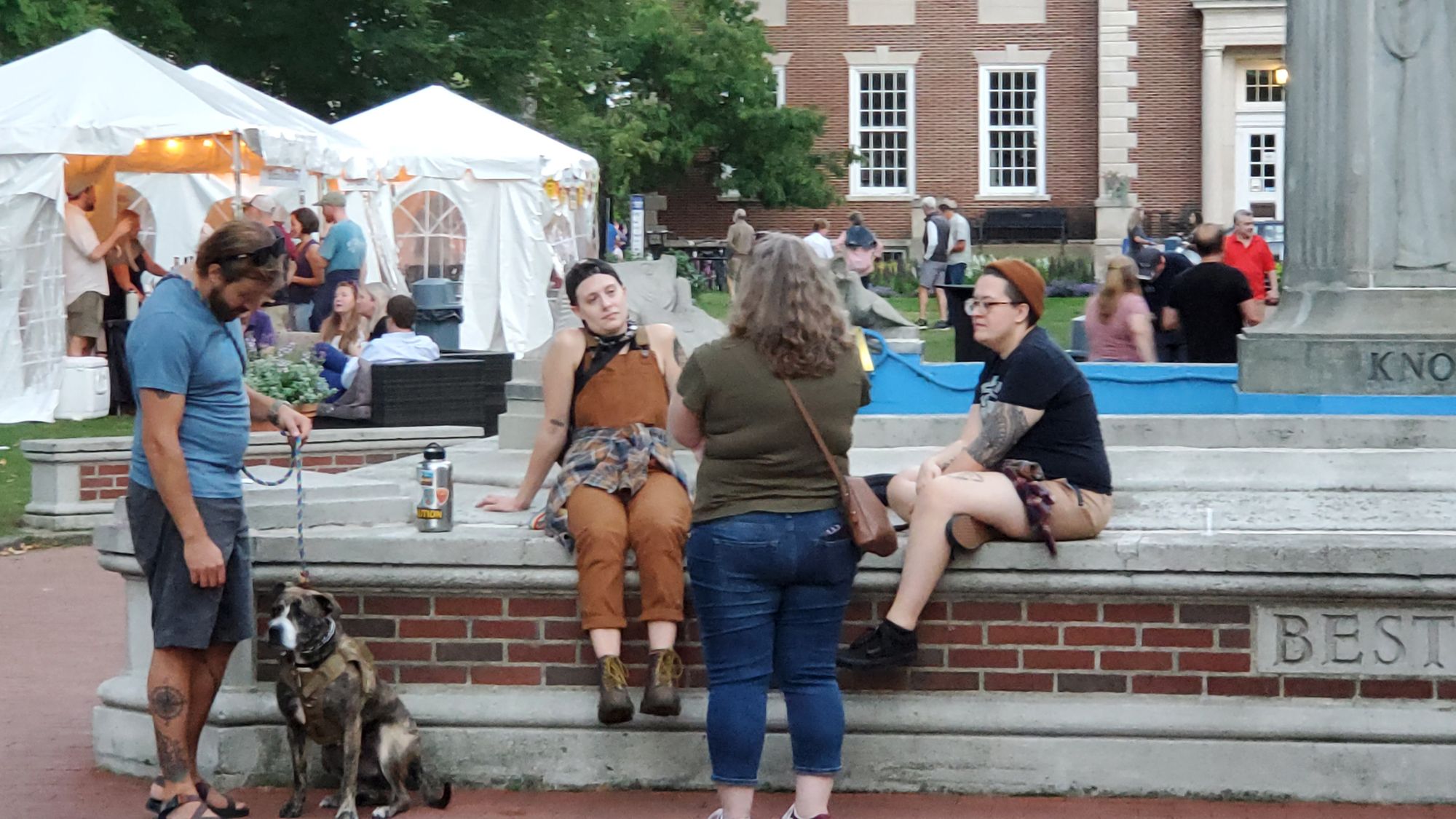
Porches
The variety of porches here is astounding. Almost every building has a porch and nearly all are heavily used, many for dining.
The entire place is about tightly knit together small houses with the vast majority set back only about 10 feet from the streets. It's hard not to say hello to passersby and the porches themselves are full of people reading, chatting, and eating.
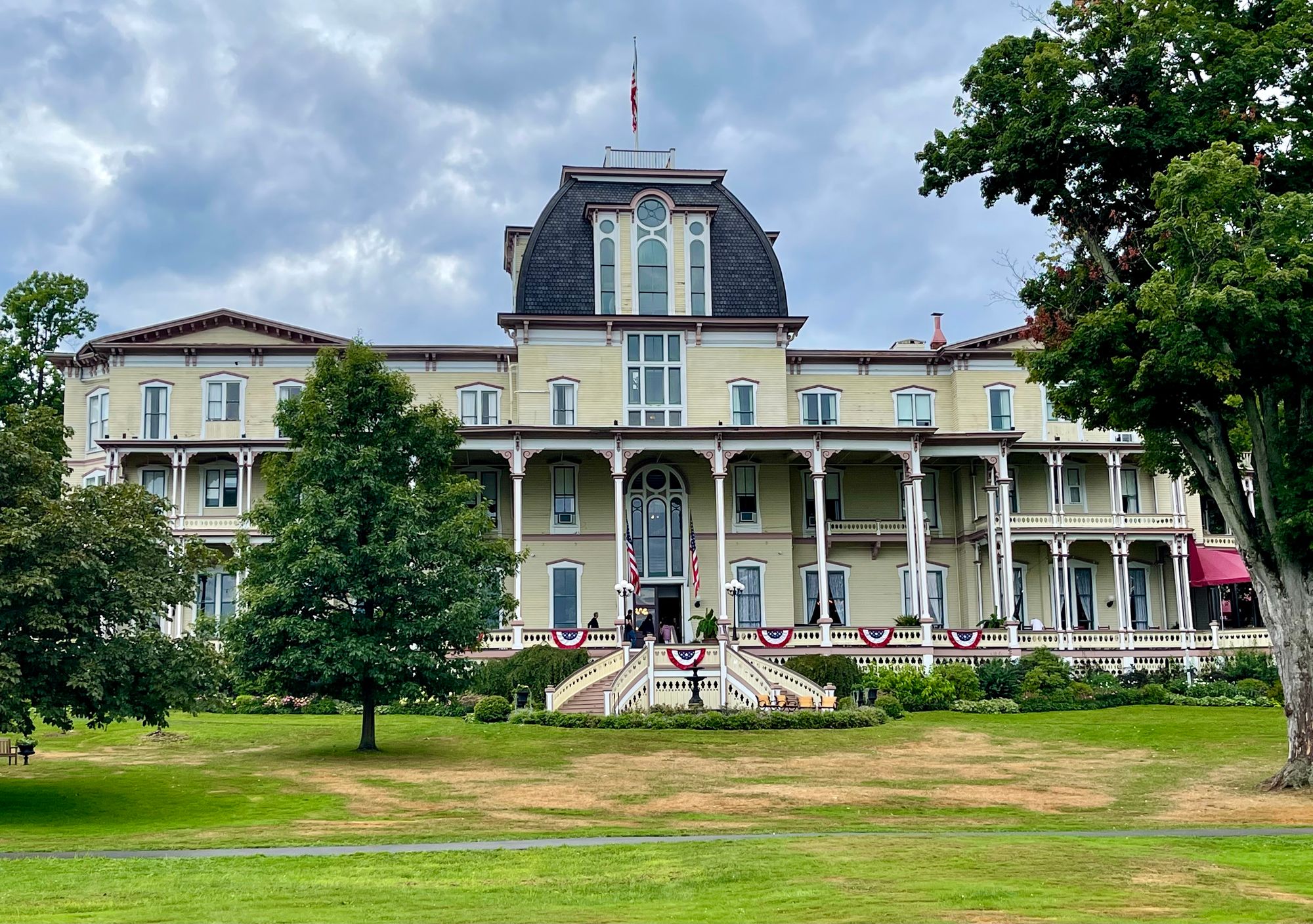
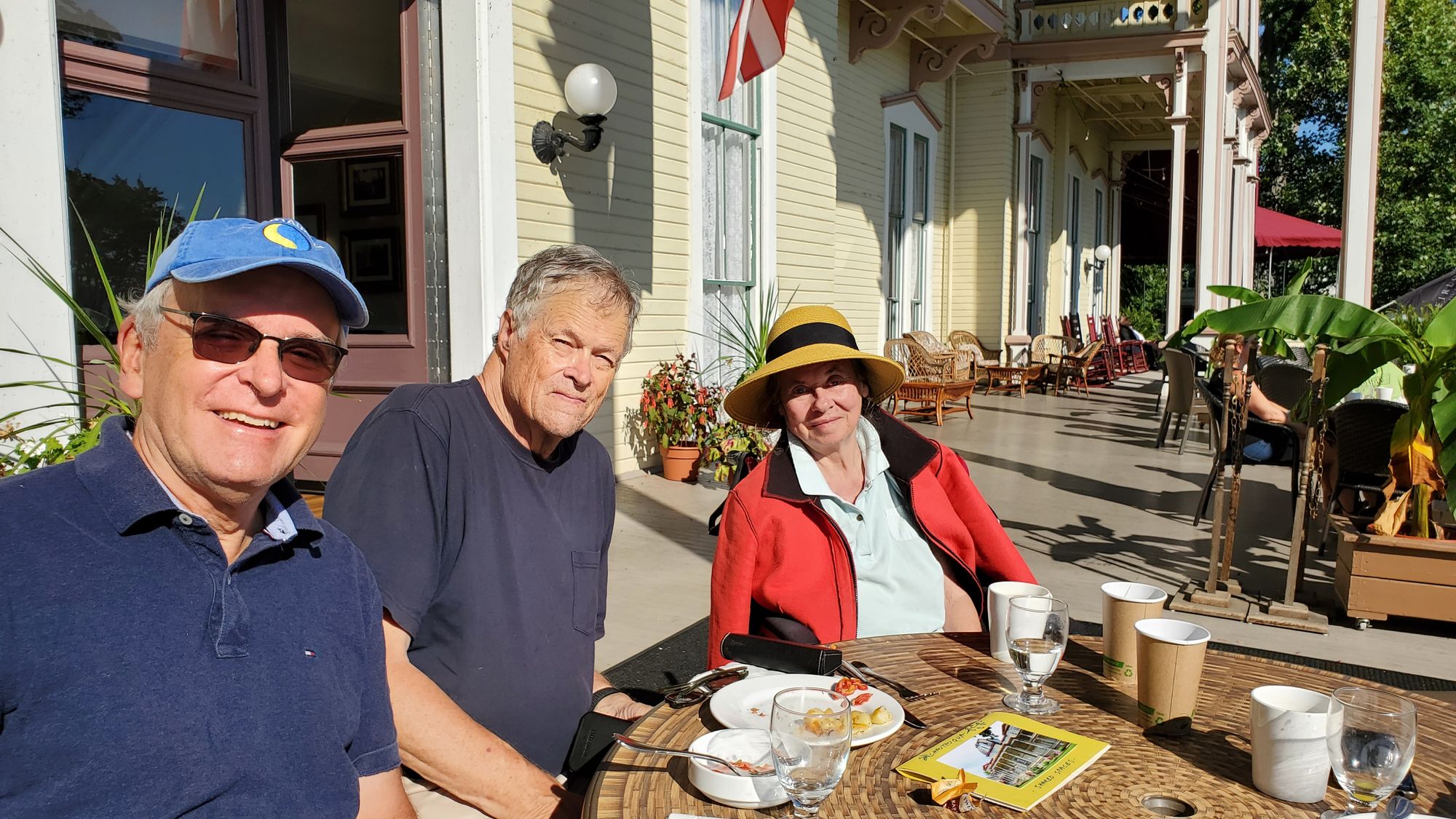
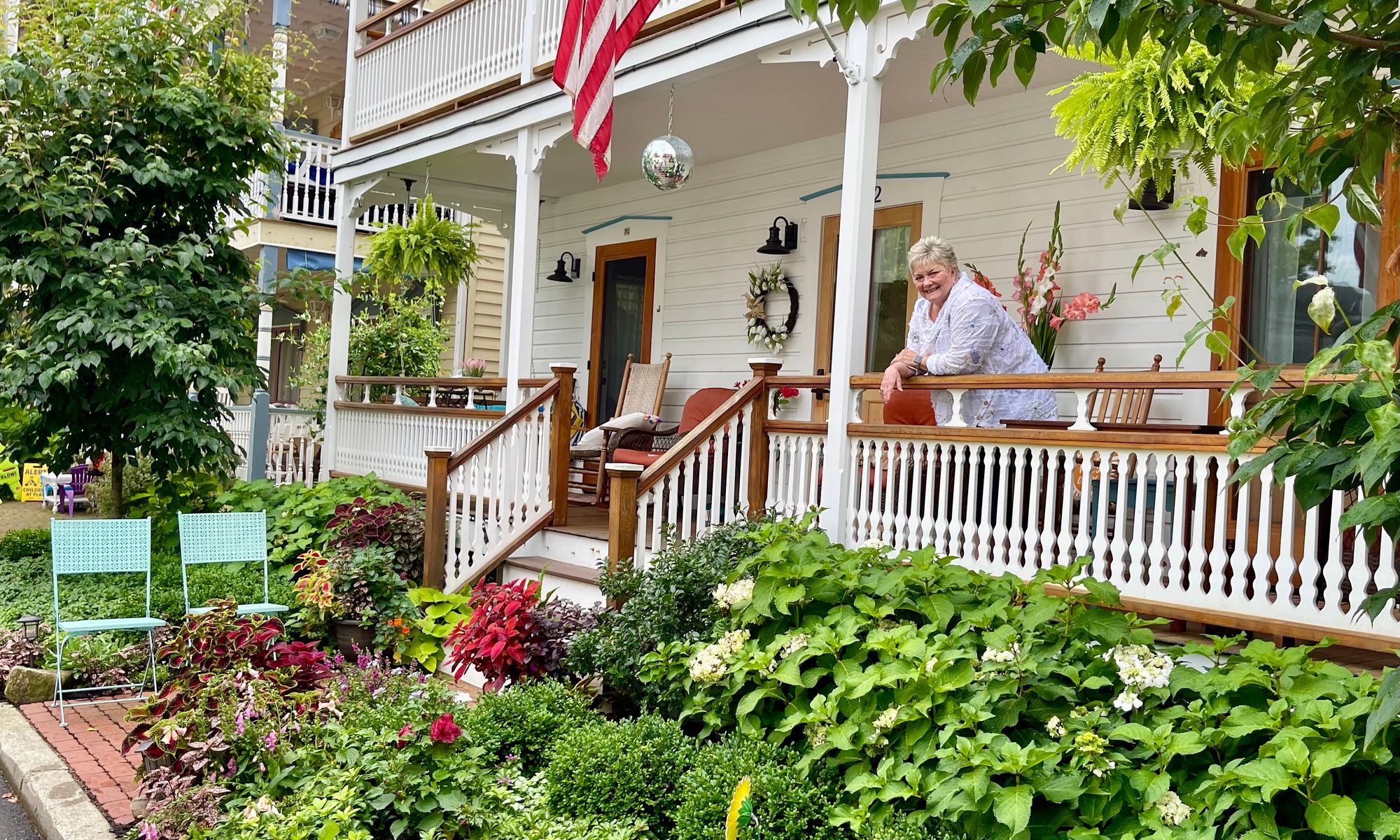
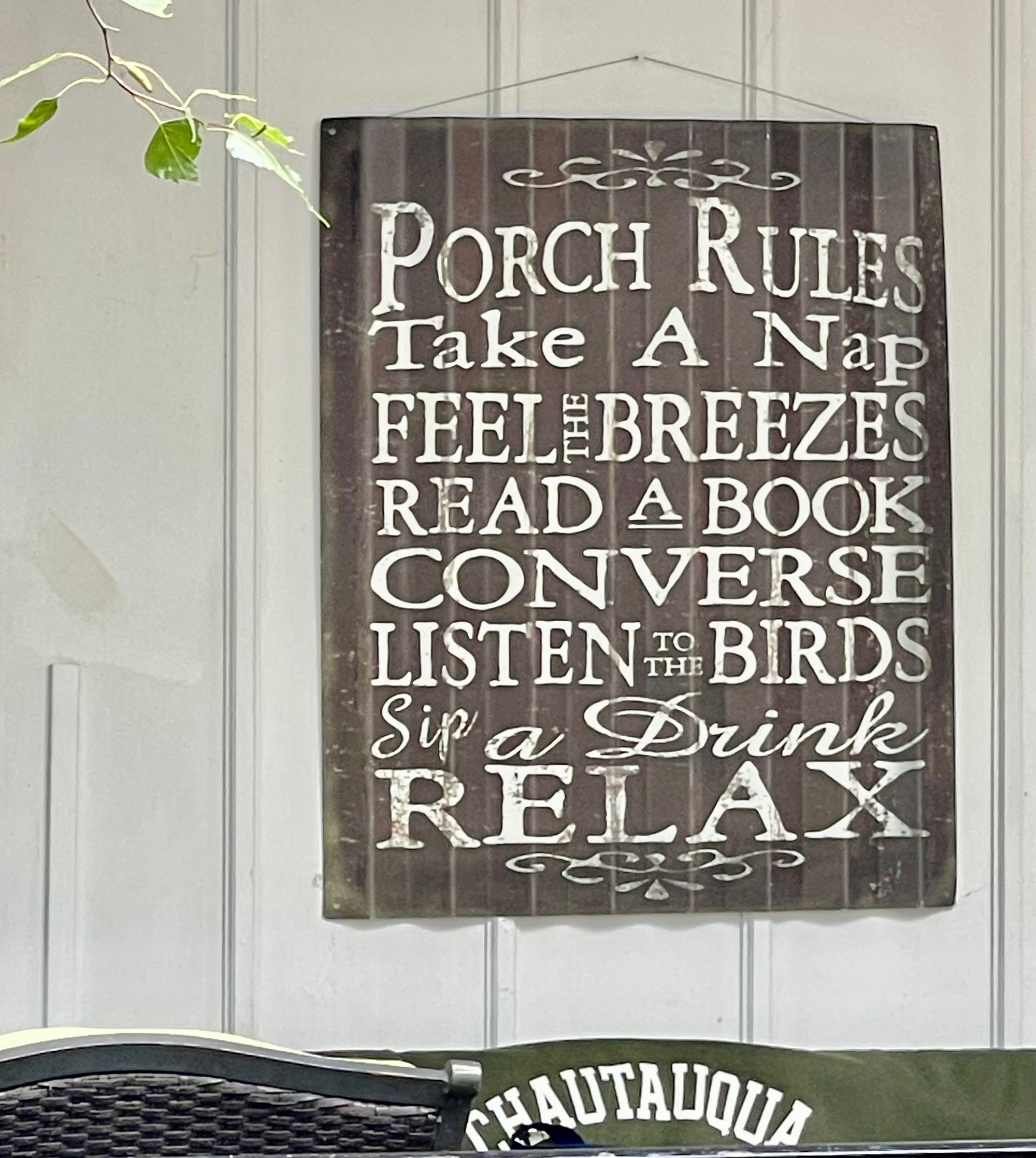
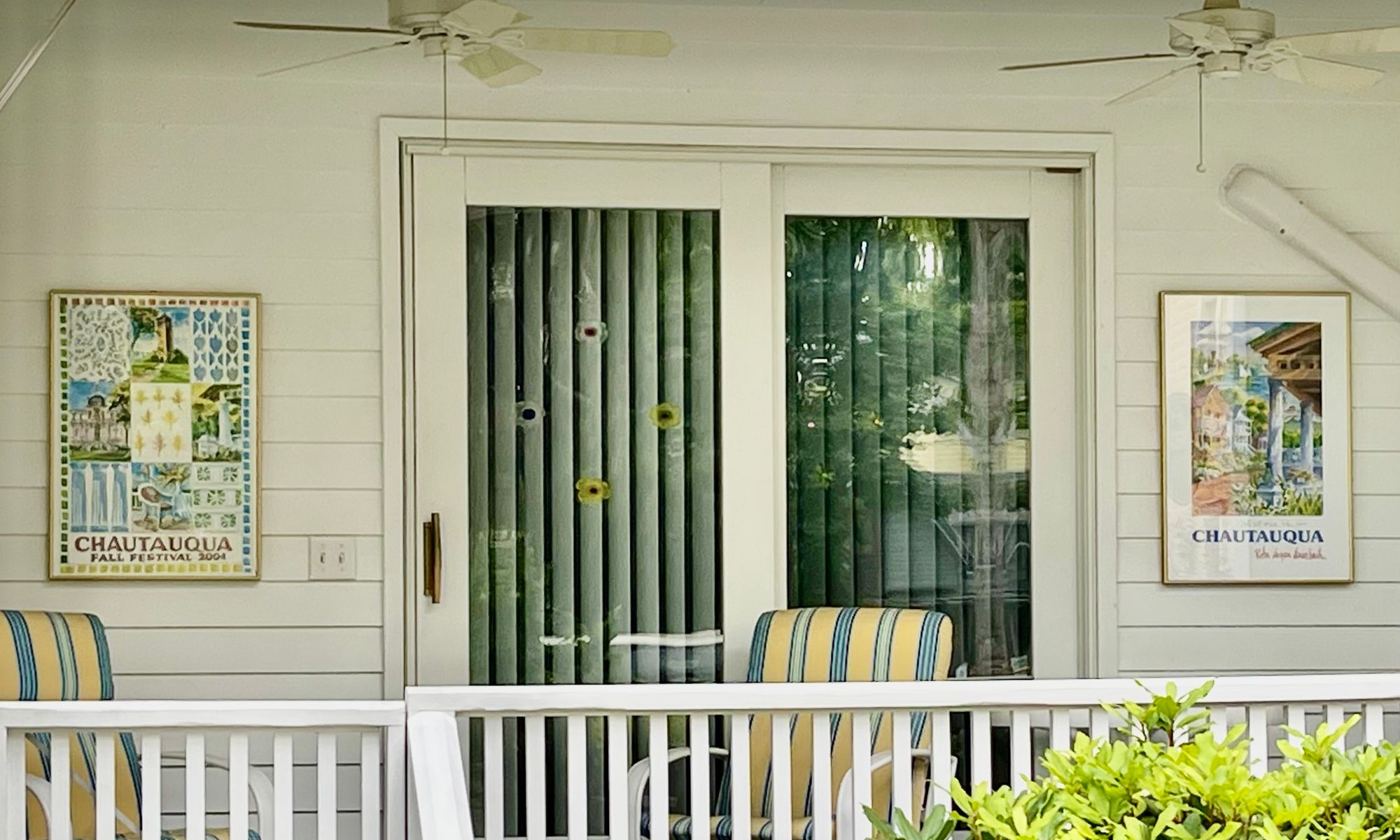
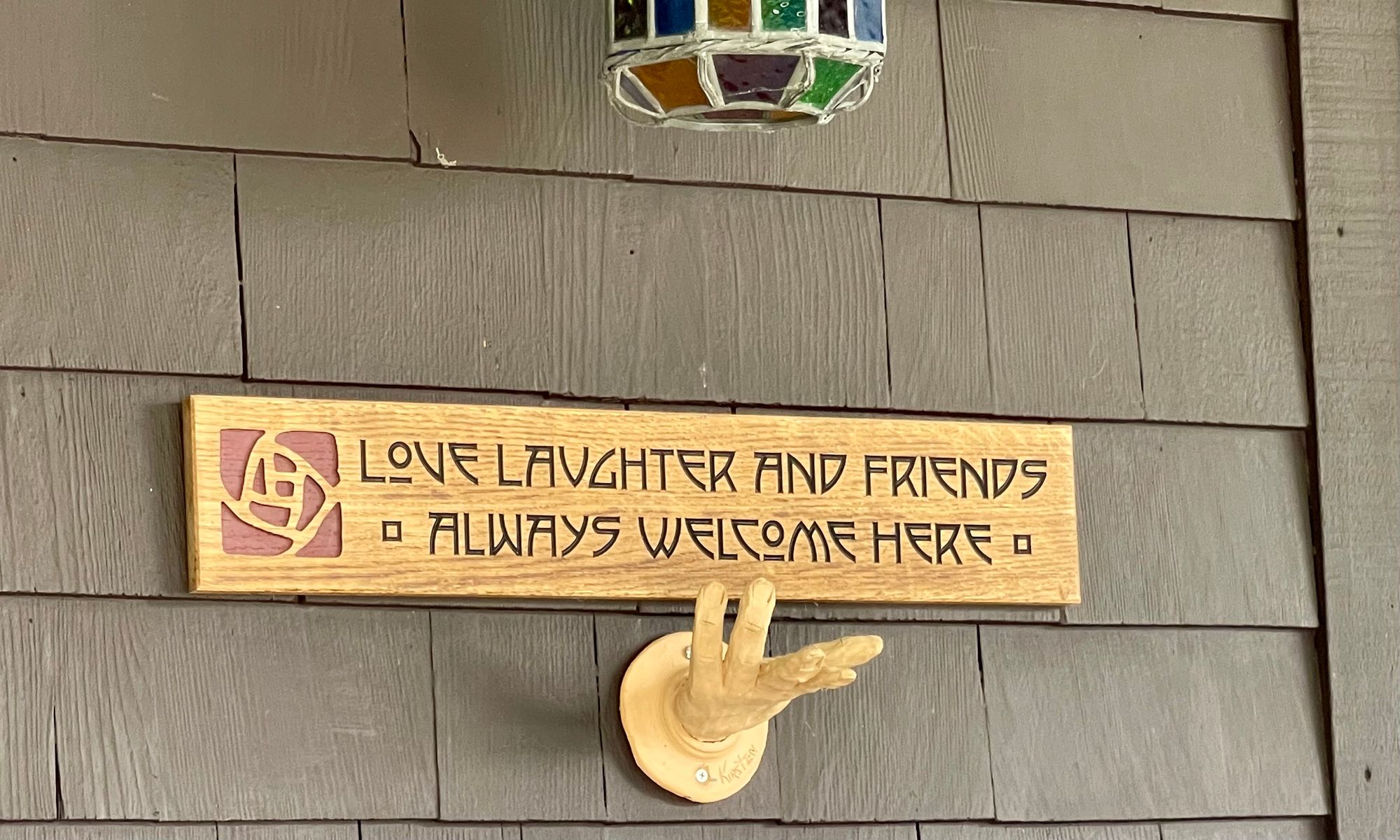
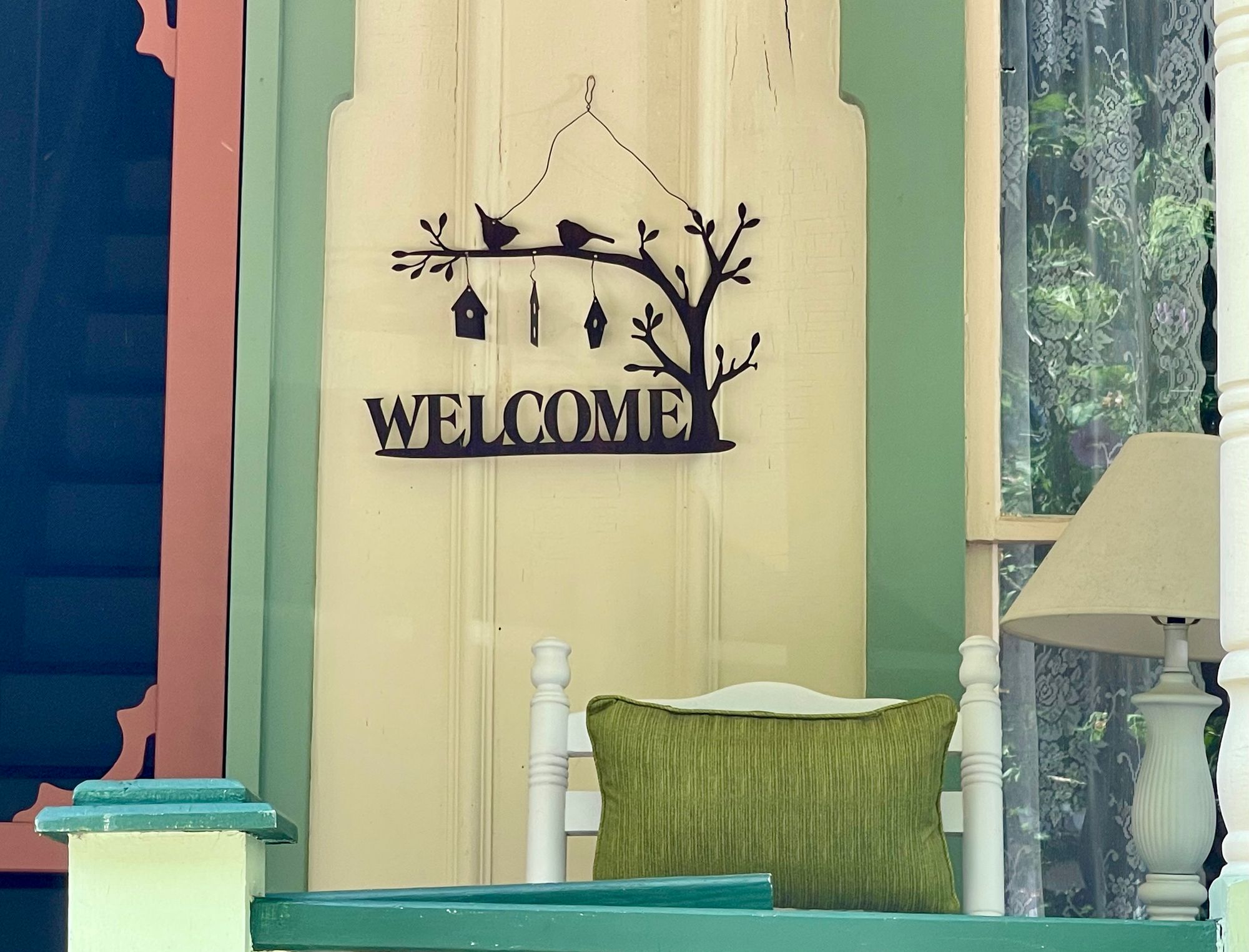
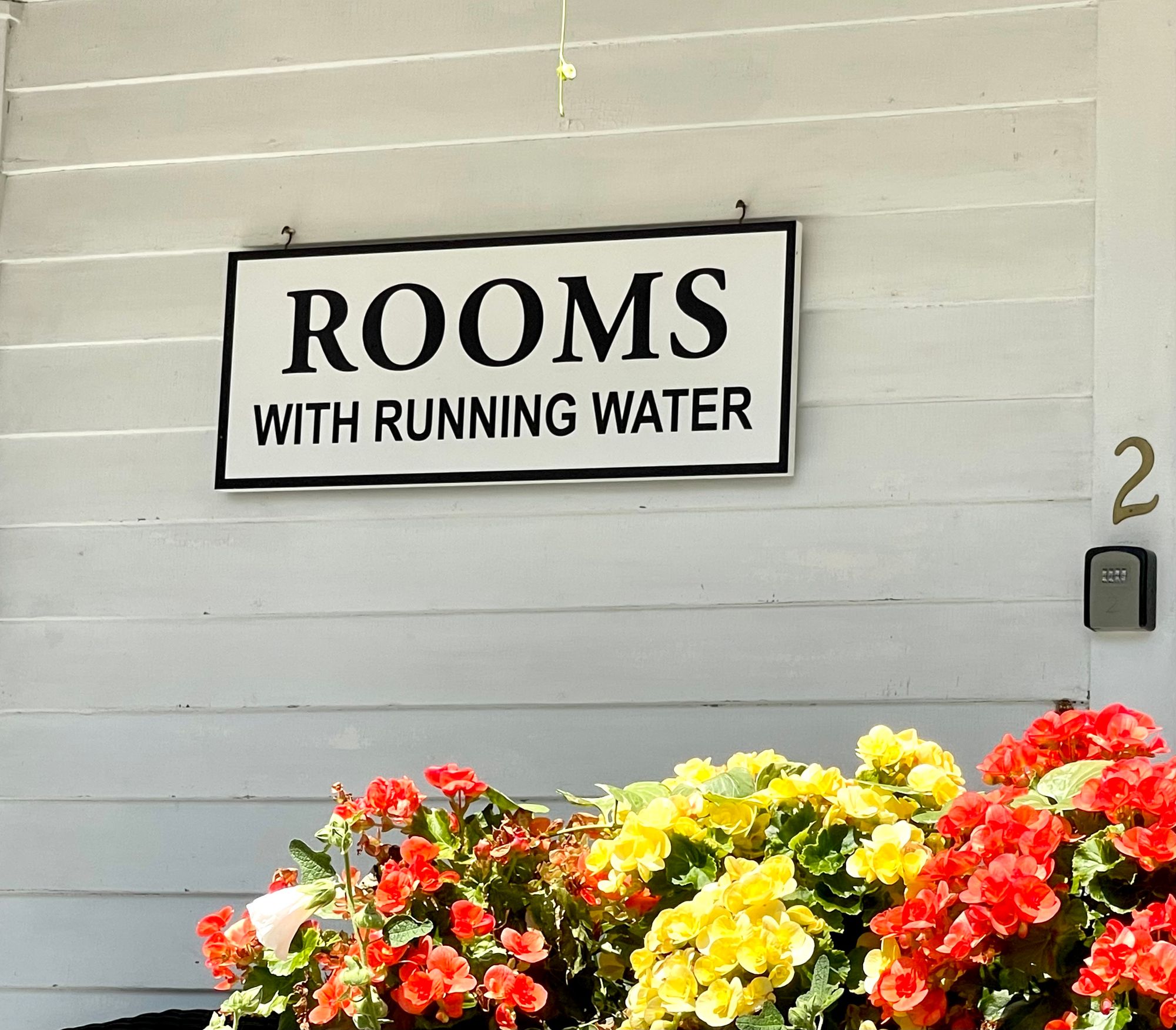
Open Porches
There are many different kinds of porches in Chautauqua. Open porches are often at grade with no railings and have a feeling of flowing into adjacent streets.
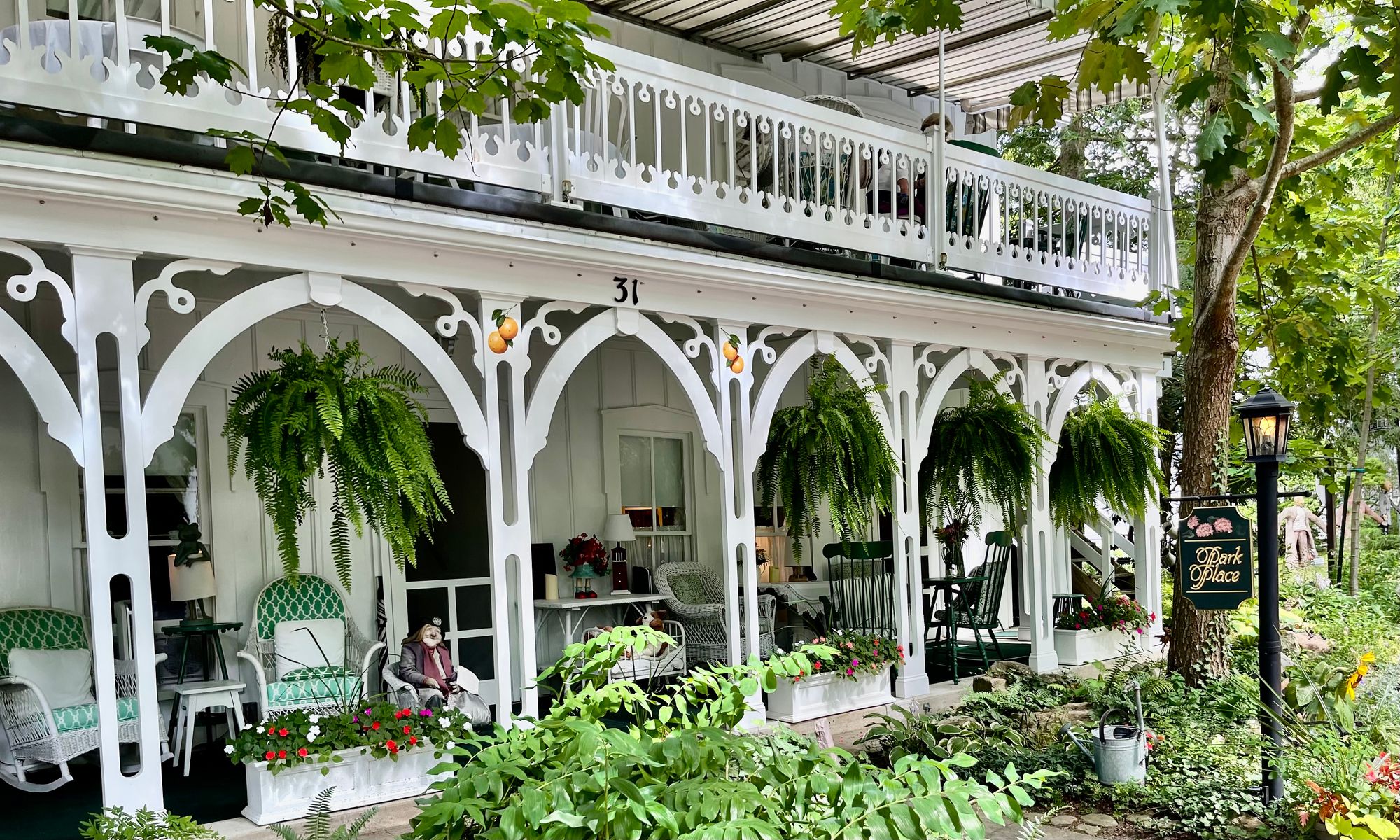
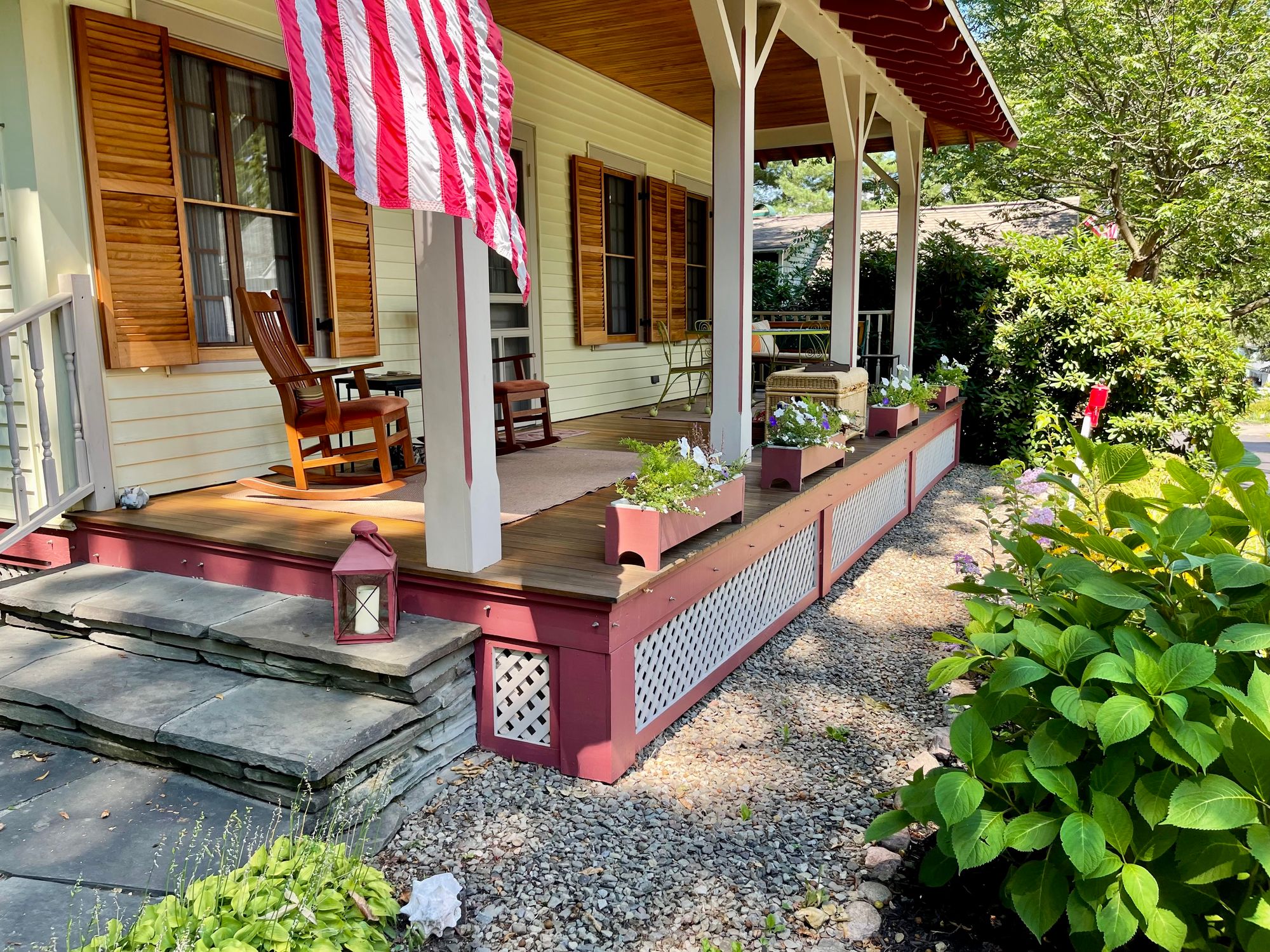
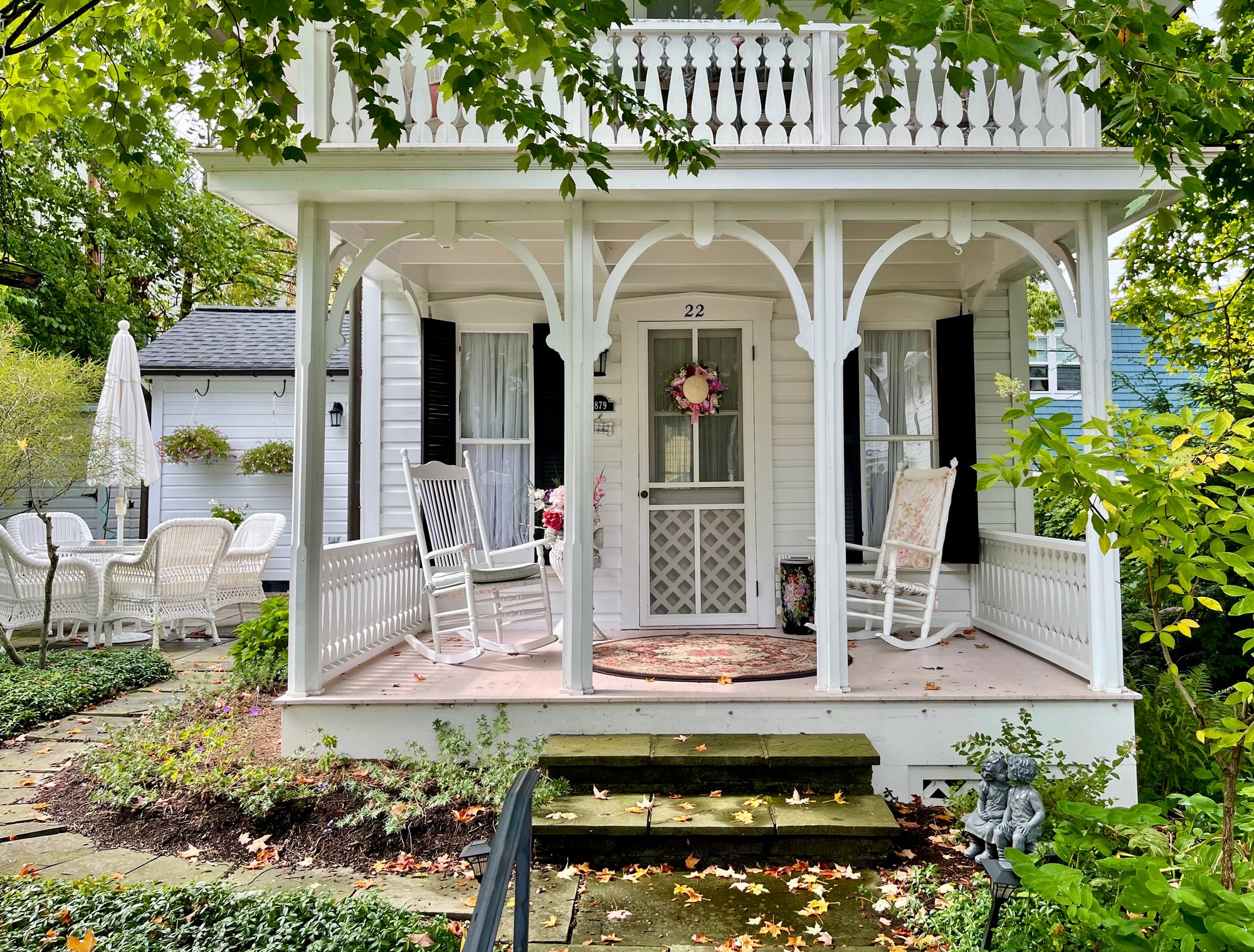
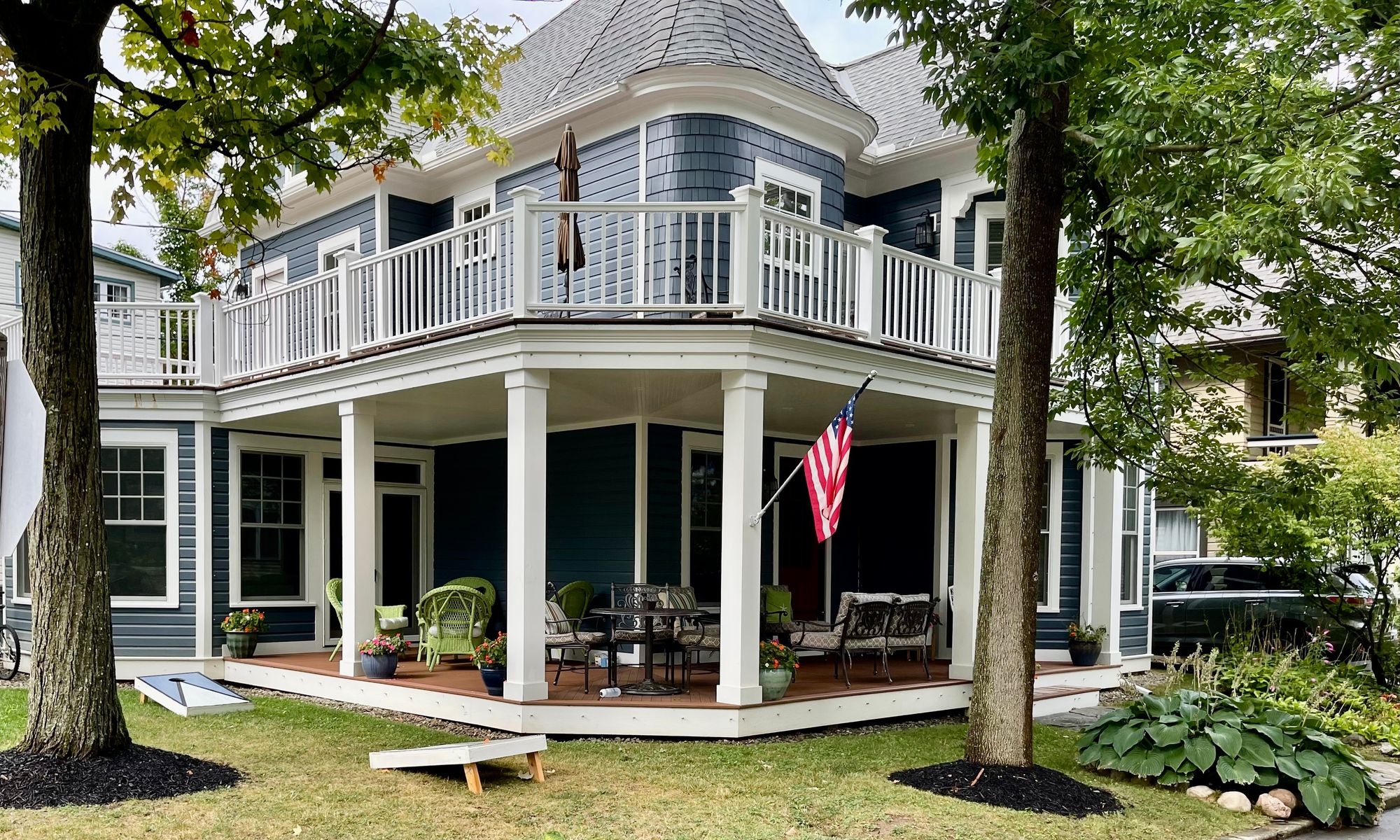
Corner Porches
We love the way houses on corners take advantage of having frontage – and porches – on intersecting streets.
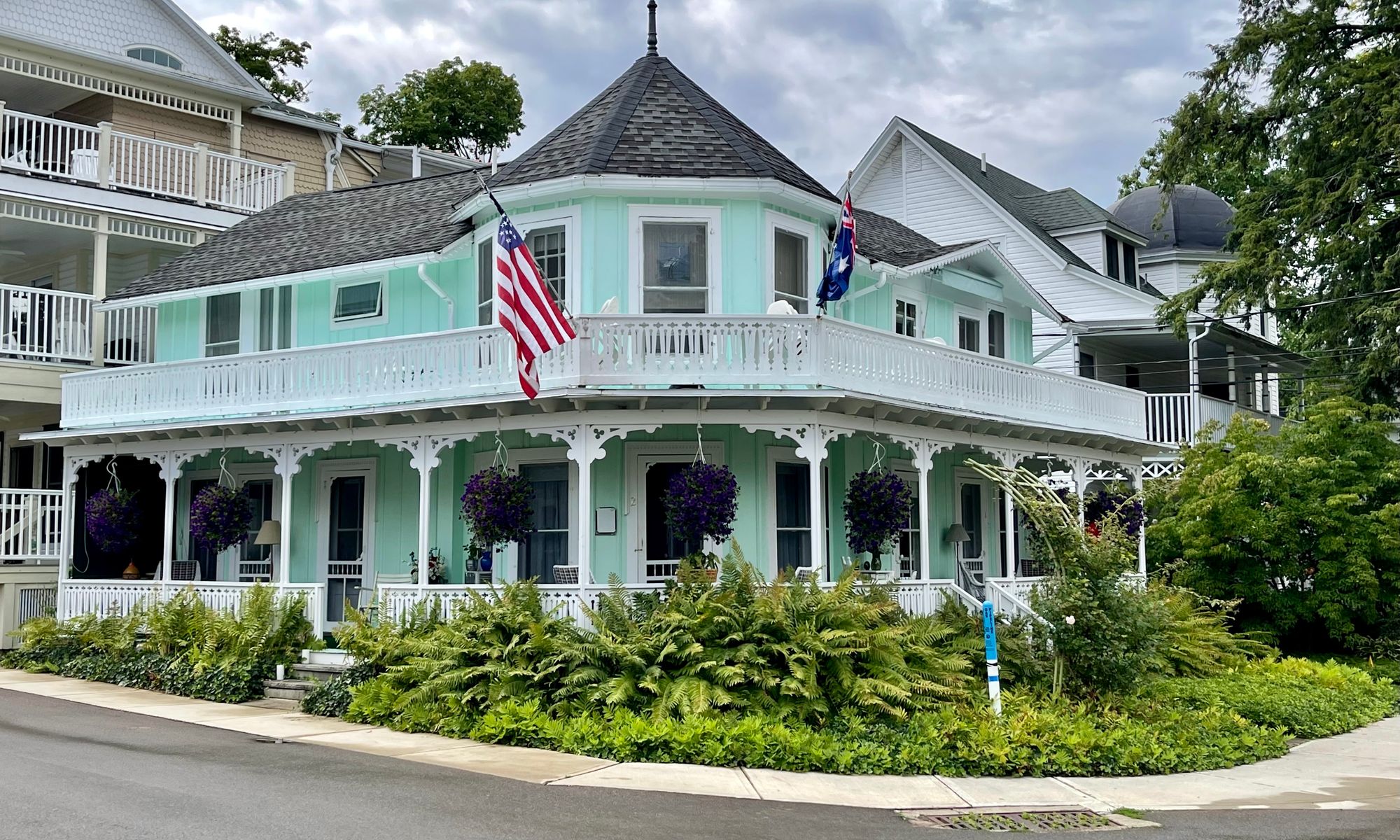
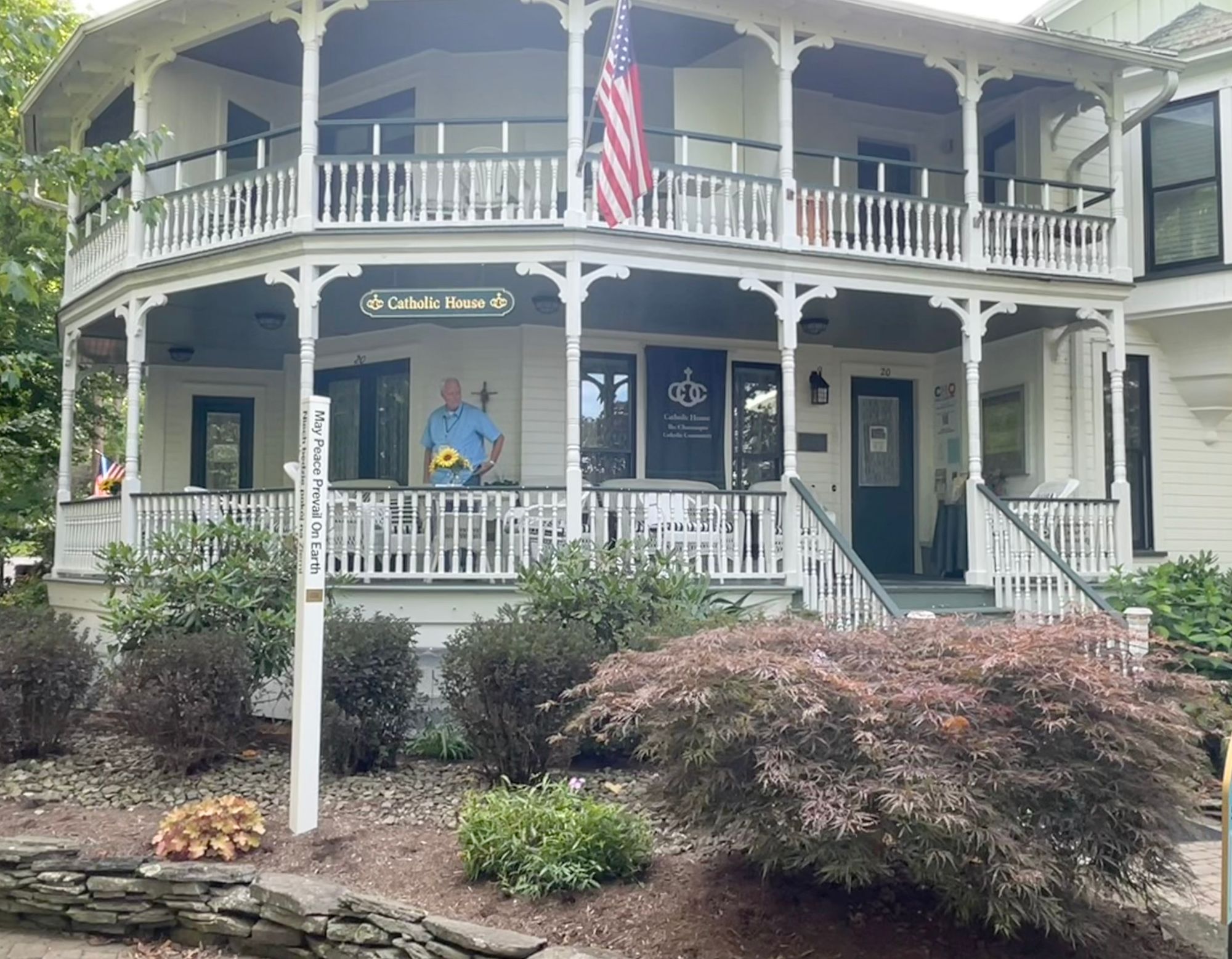
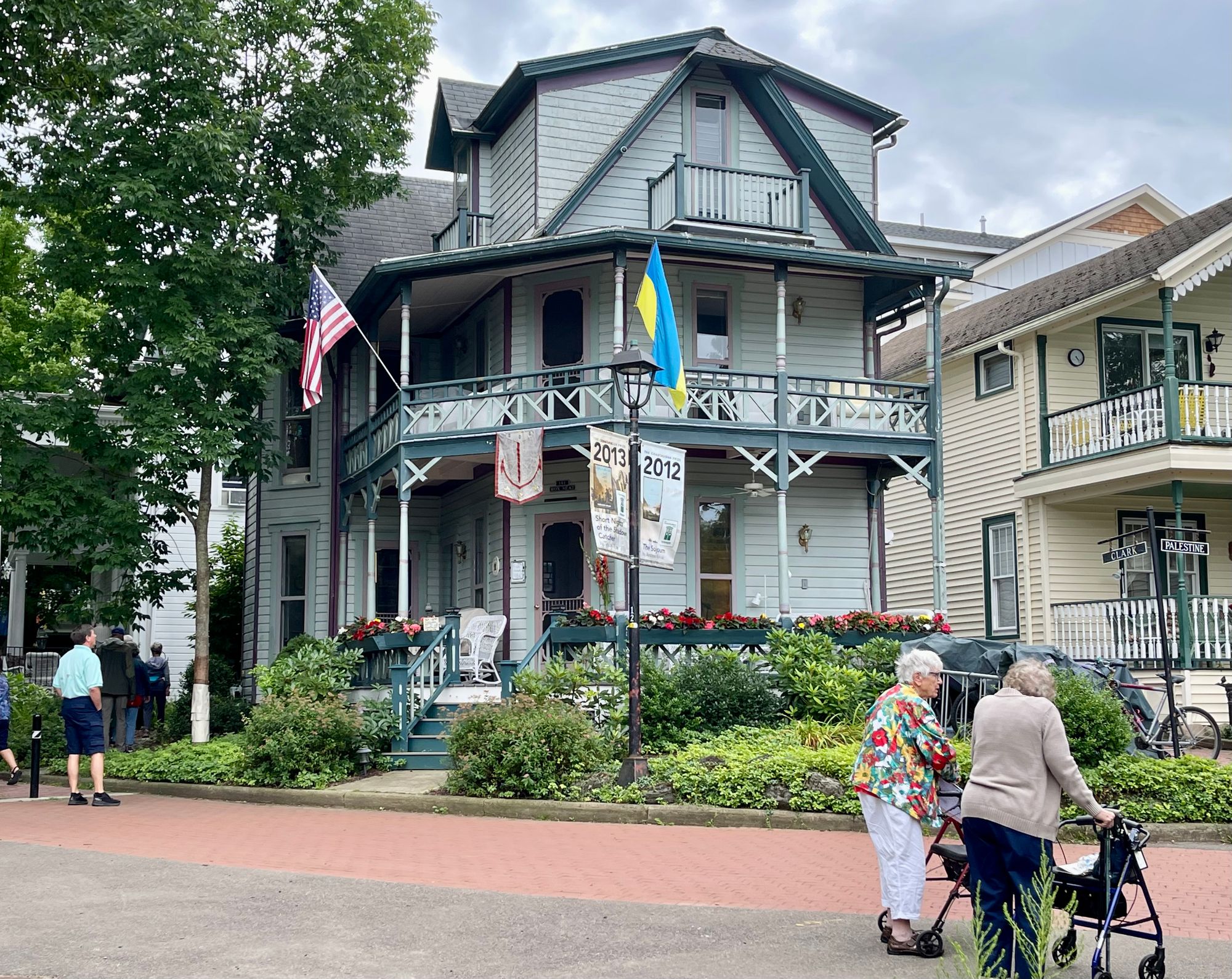
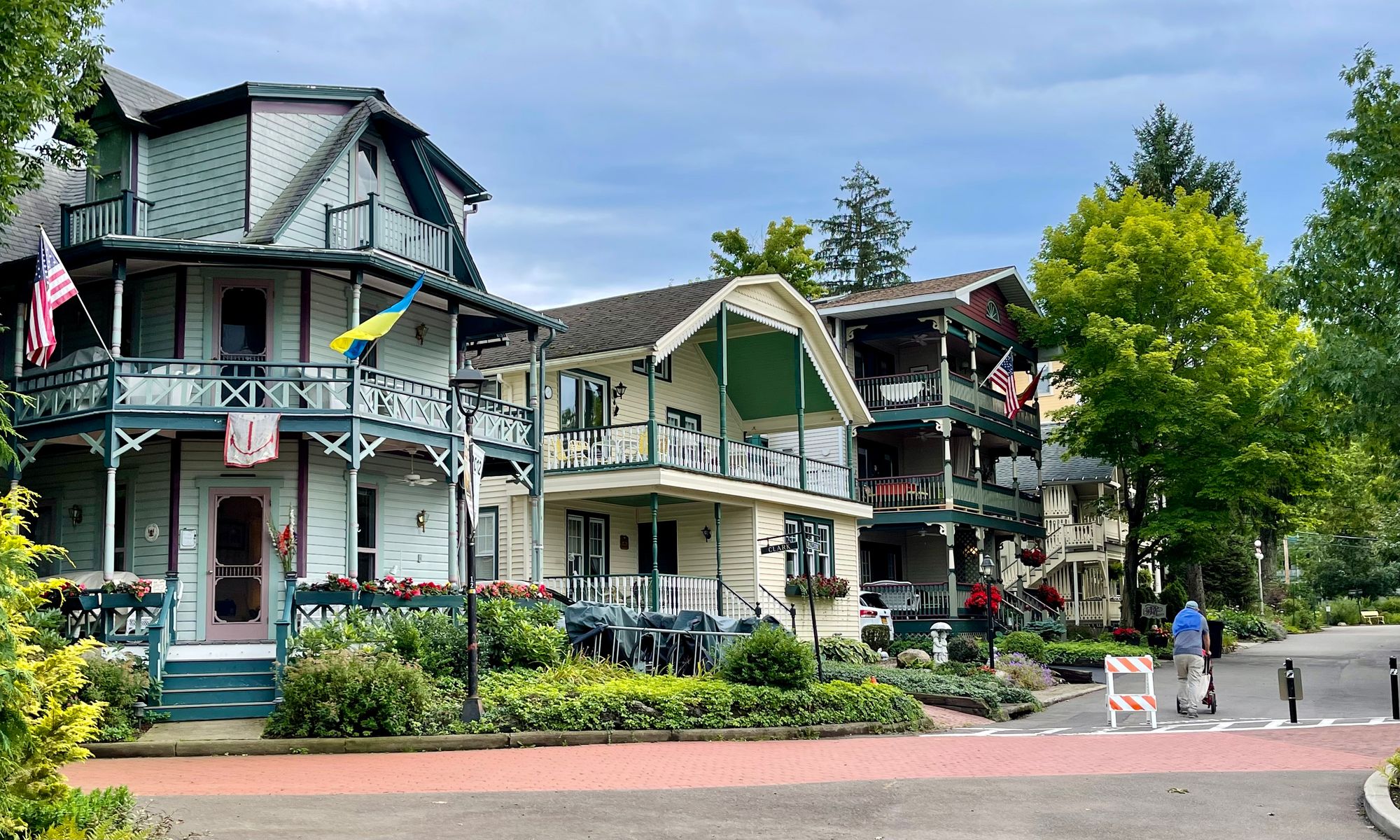
Two Story Porches
If a one-story porch is good, a two-story porch is even better! While the second-floor porches are more private, they still create a connection to the street life beneath them
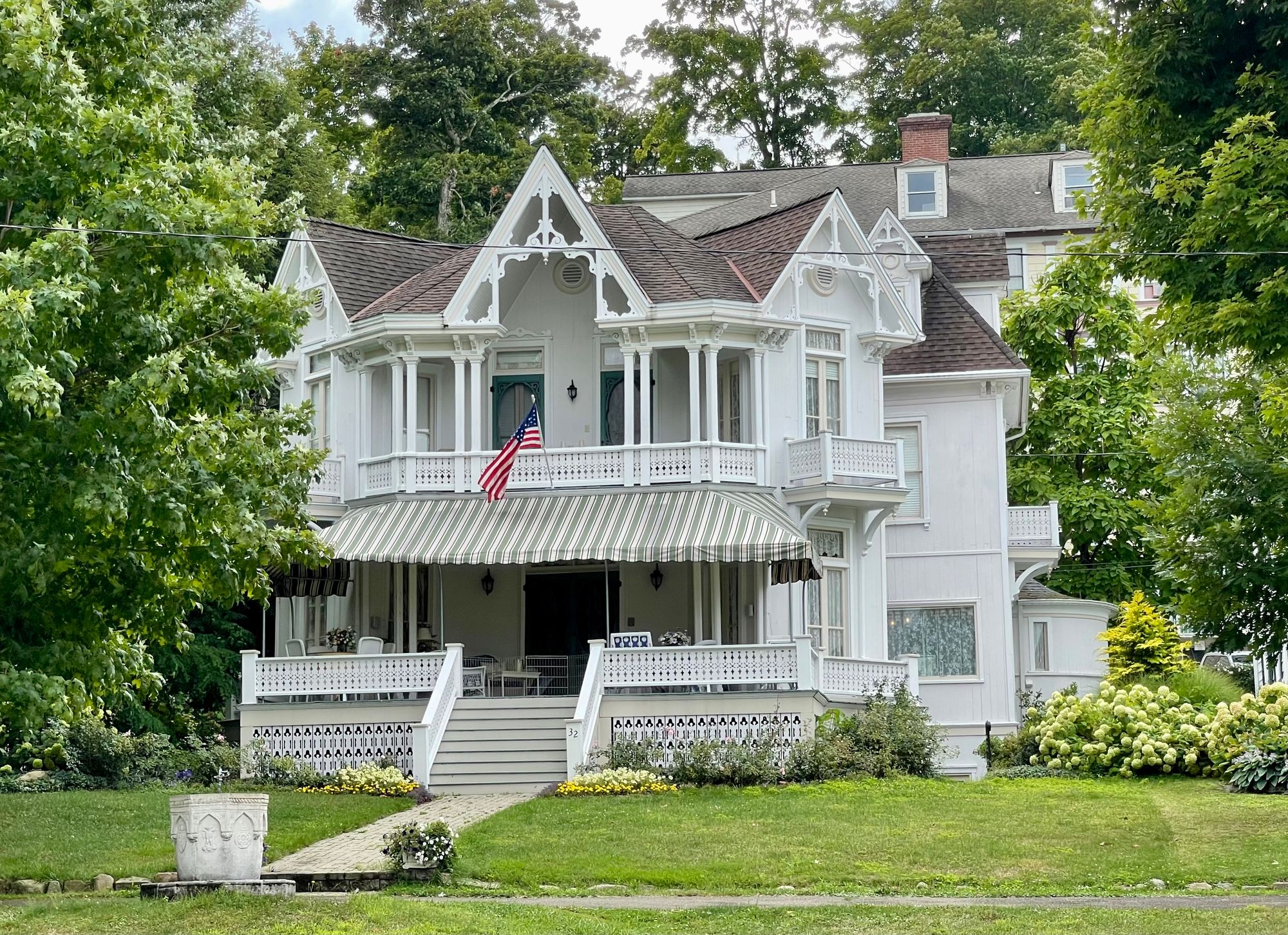
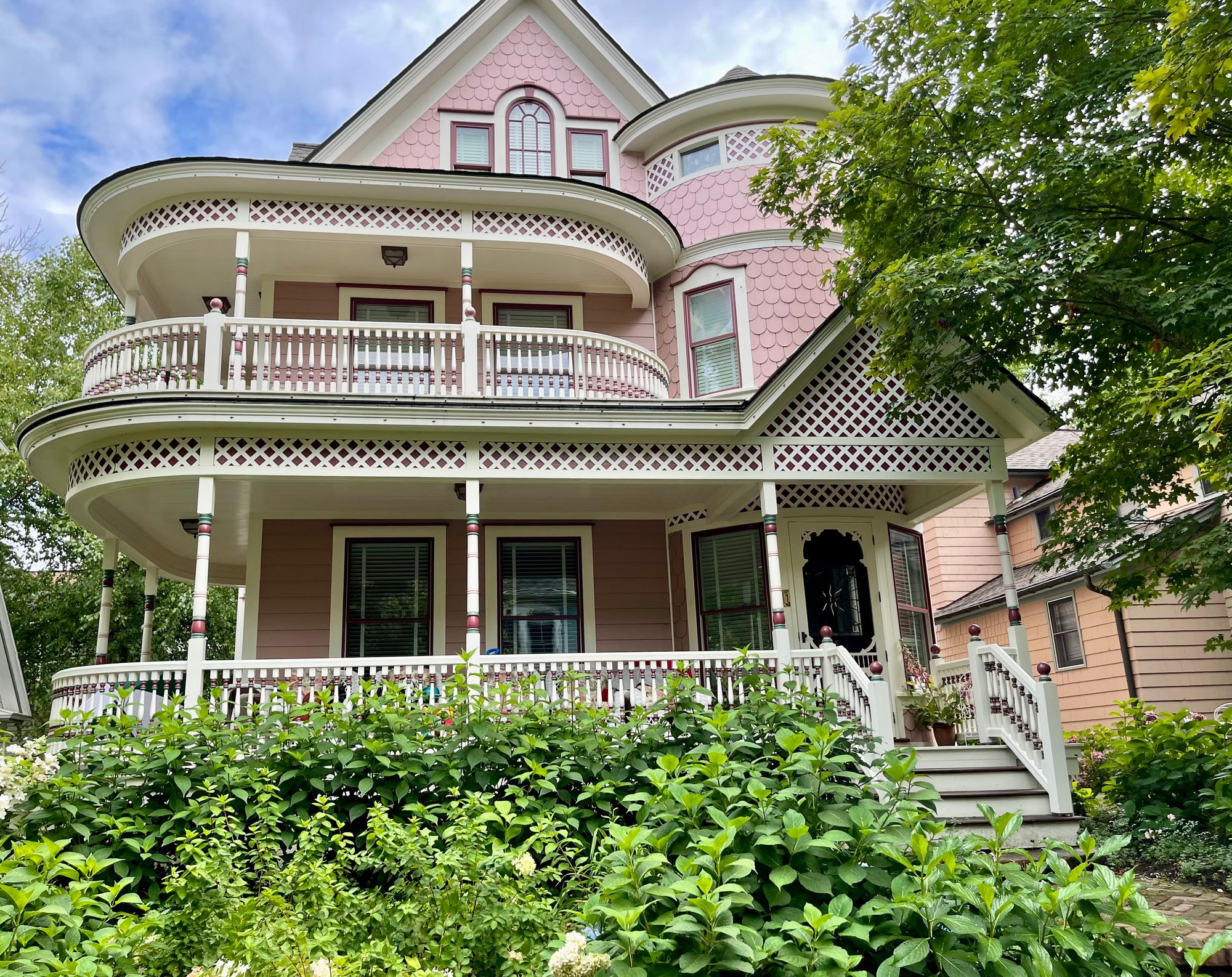
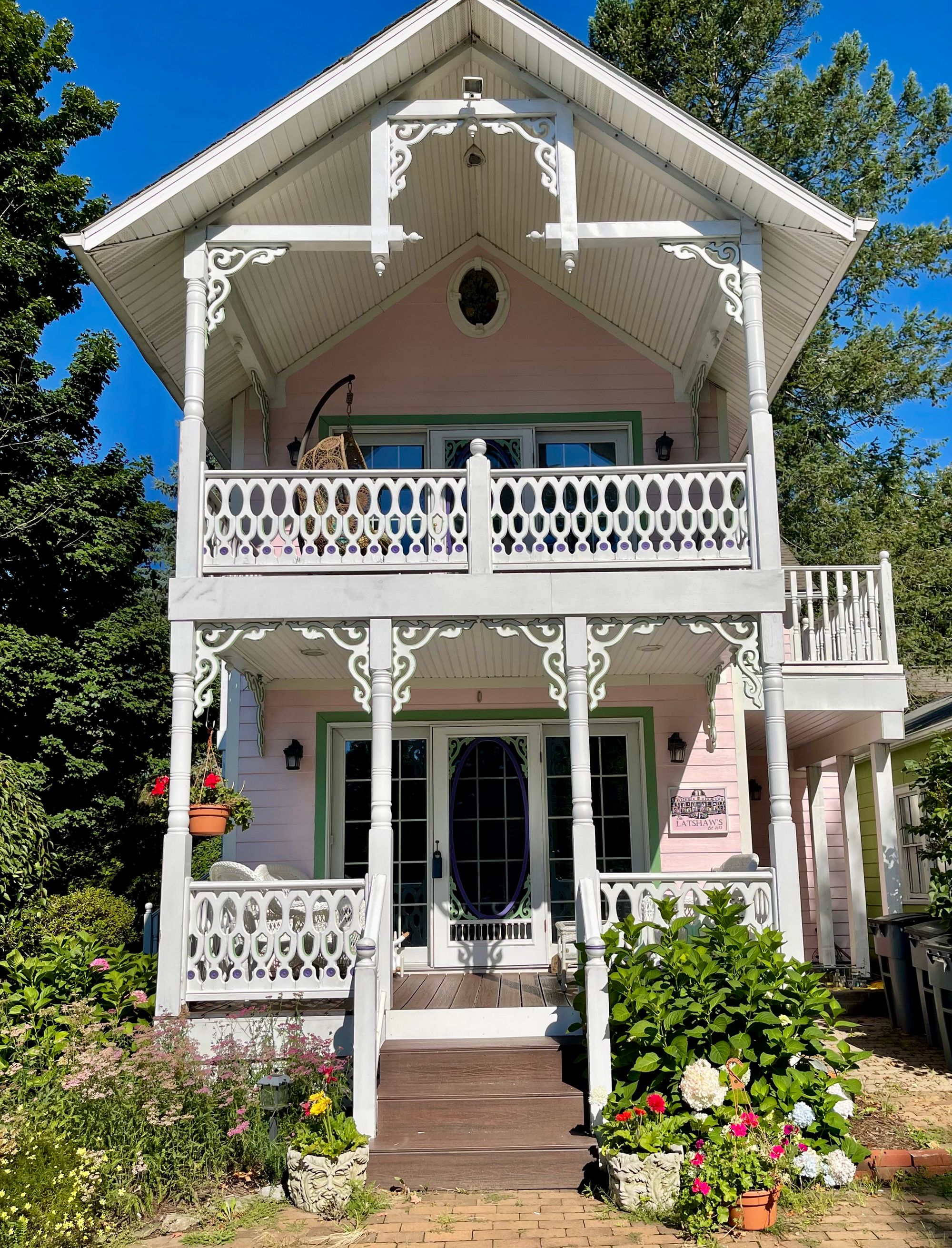
Three Level Porches
Many historic Chautauqua buildings were built as rooming houses, where accommodations were inexpensive and every floor had a porch. These rooming houses are now apartments and condos. Some private homes have three story porches as well, especially those with lake views.
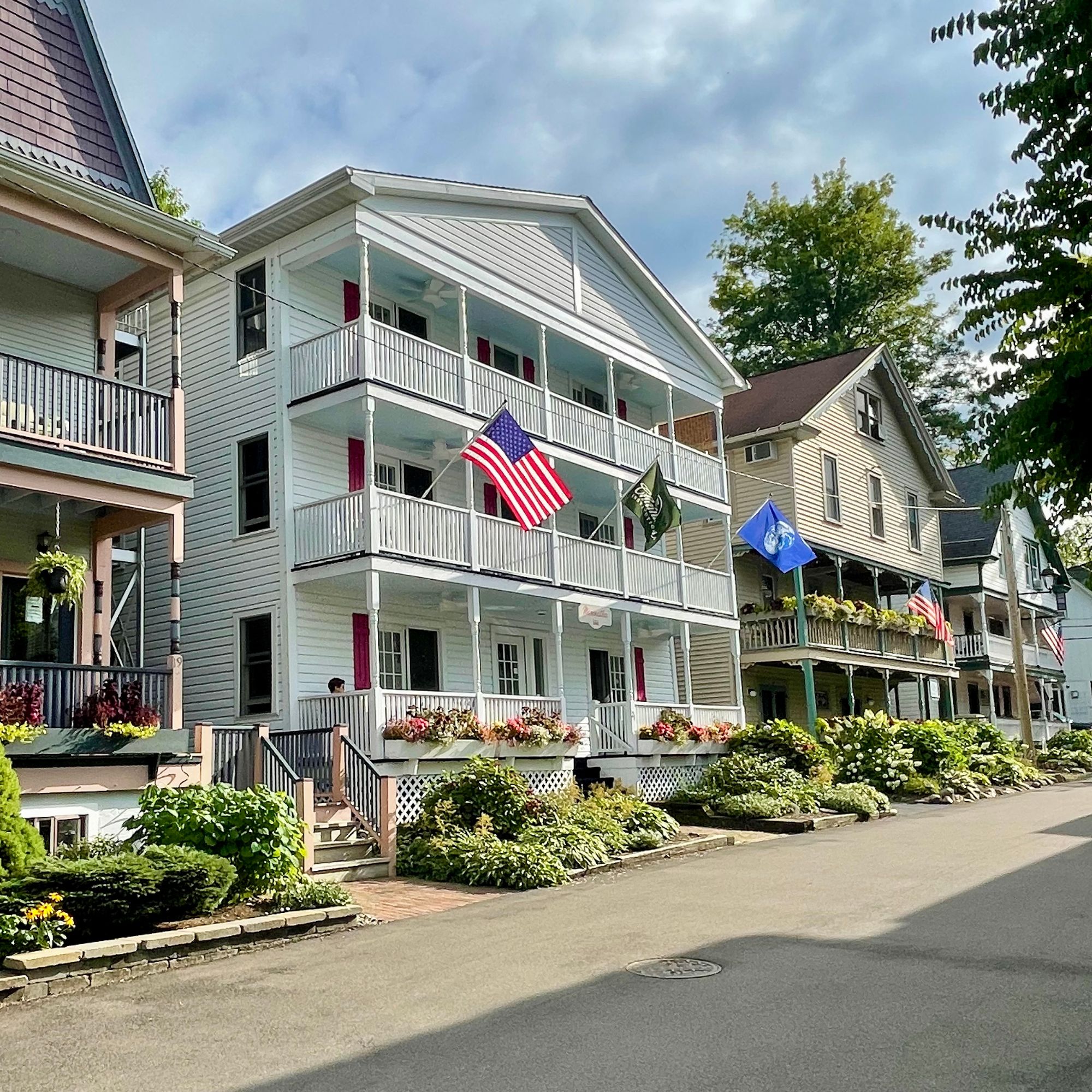
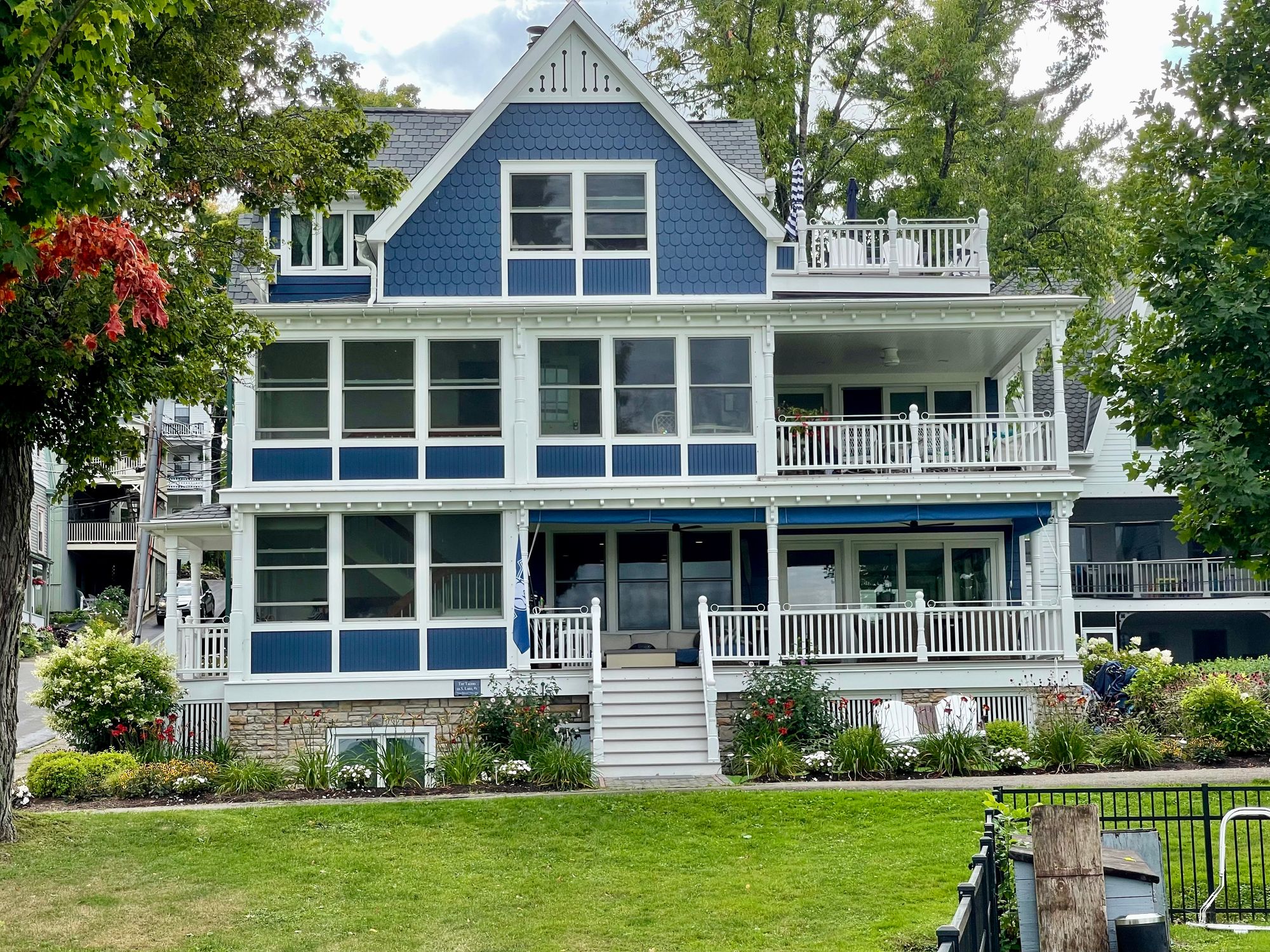
Our Favorite Porch
We love this porch that extends on three sides of the house and on two levels. You can't have too many porches!
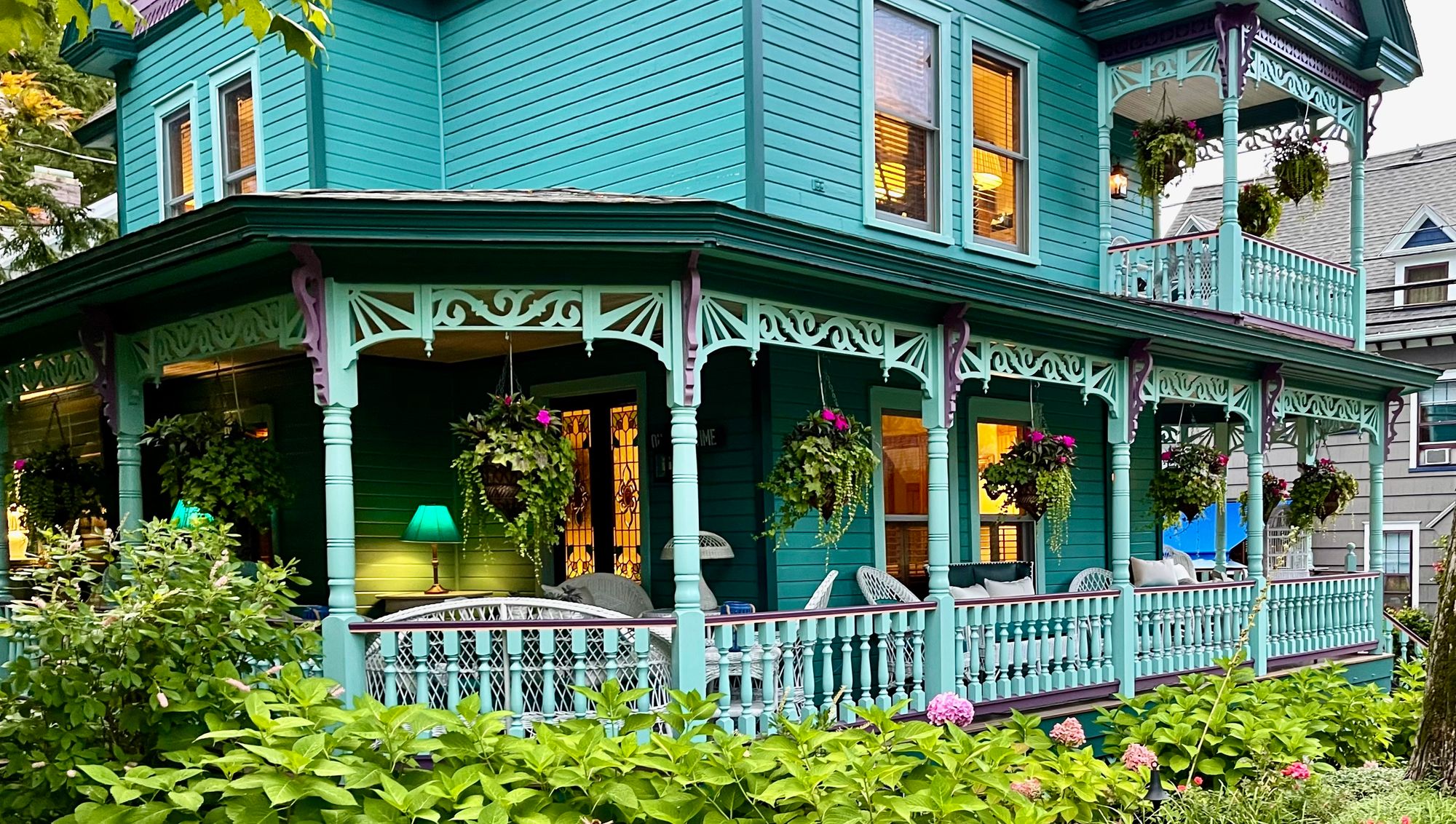
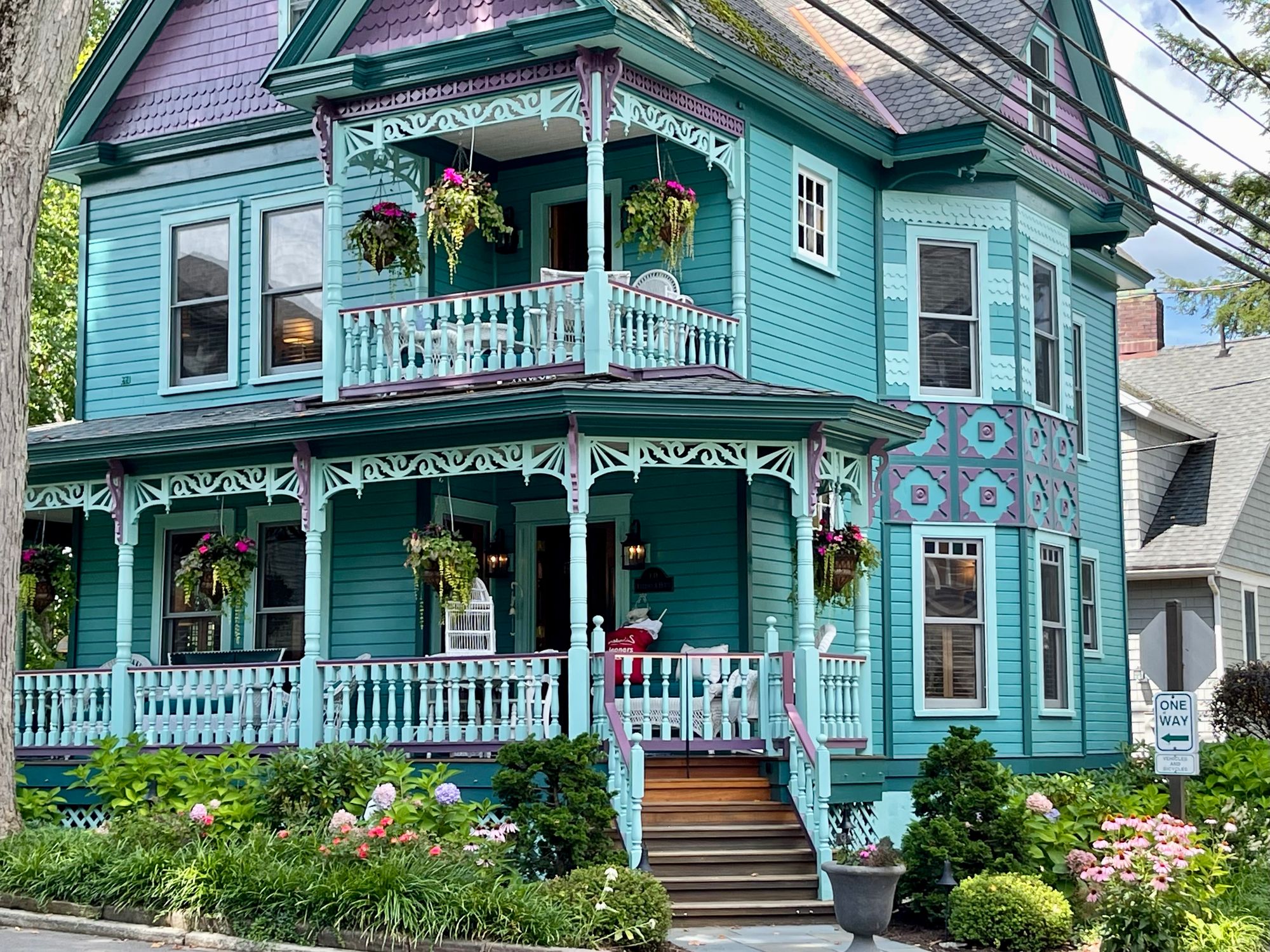
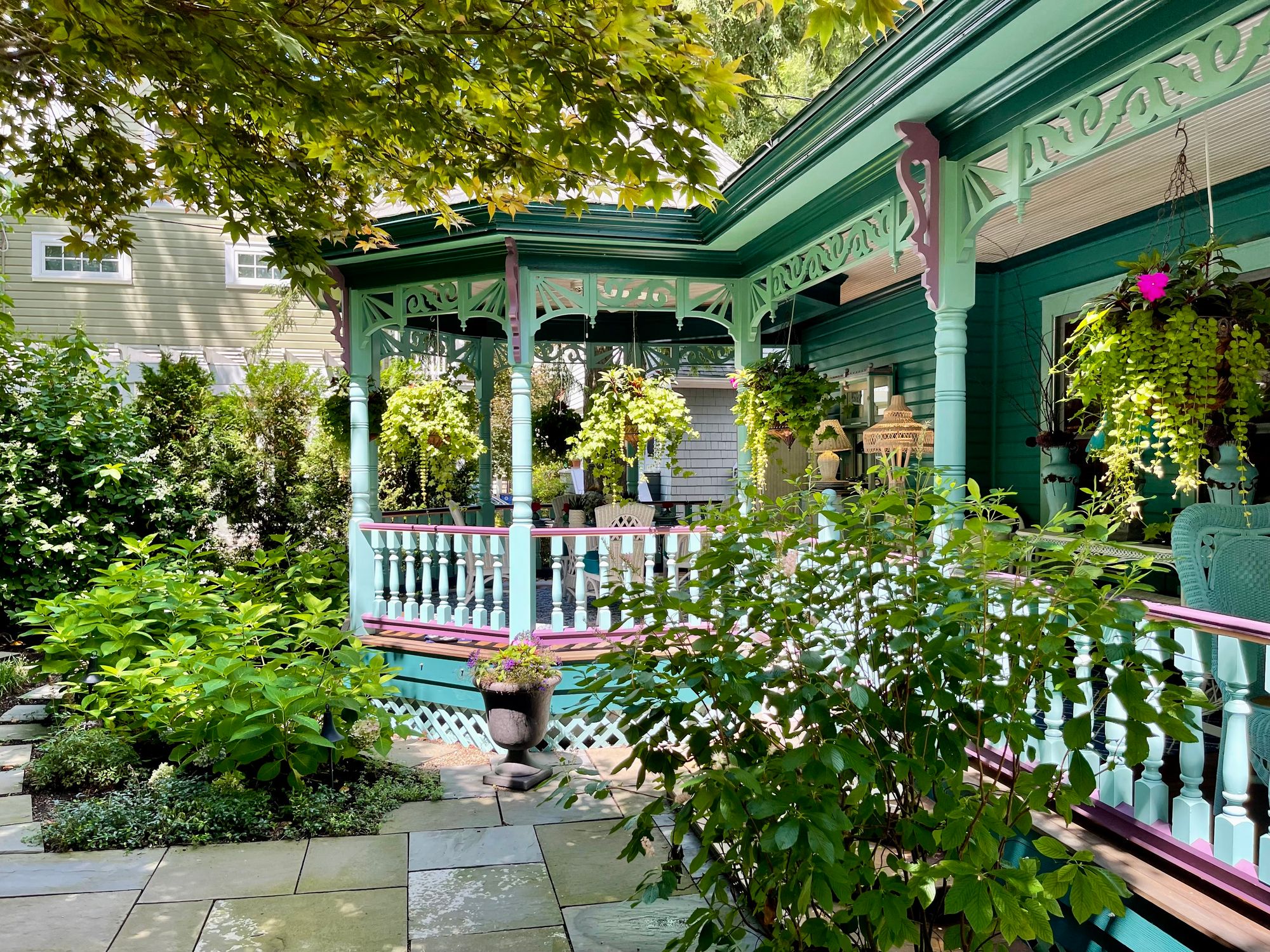
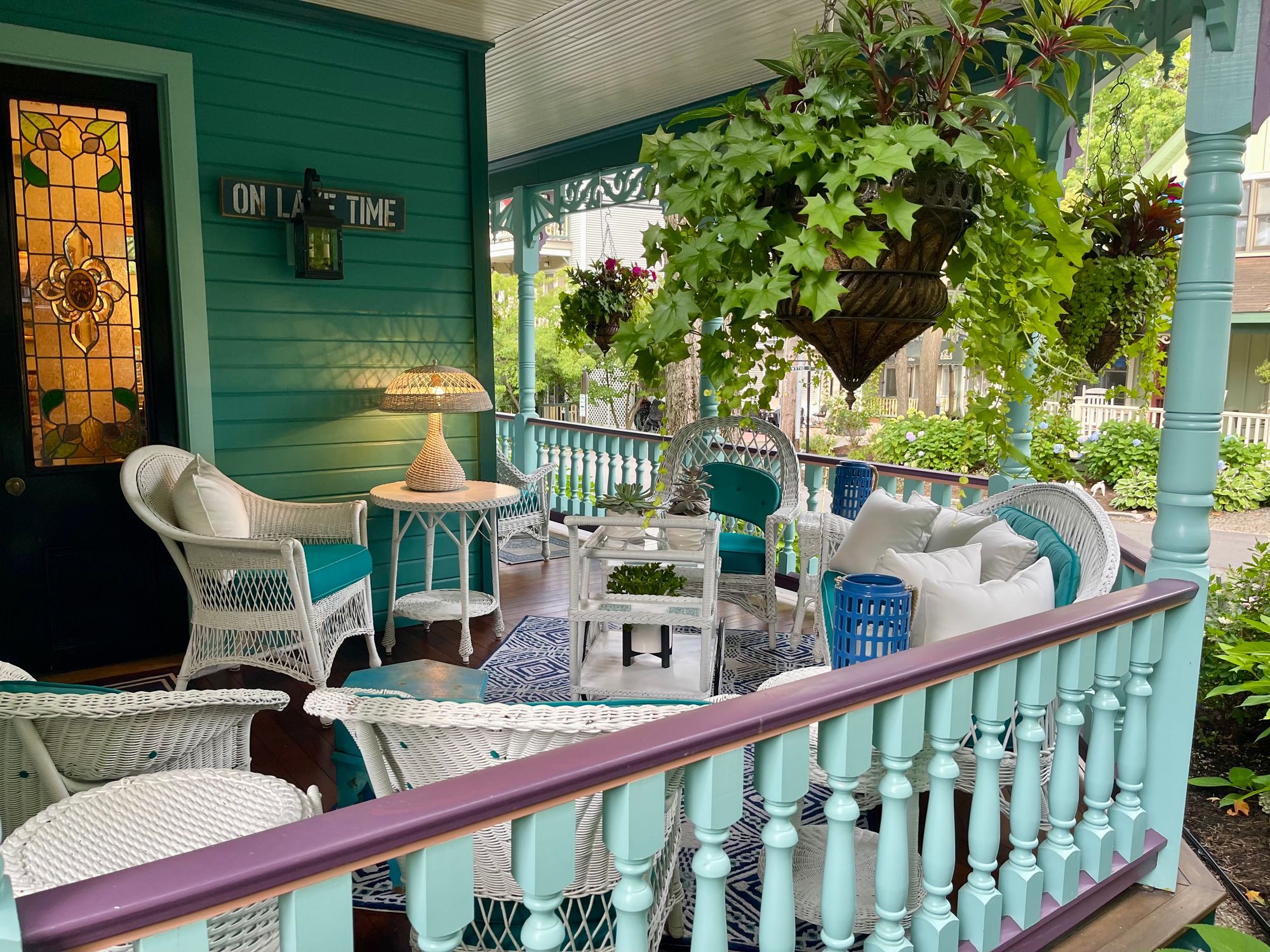
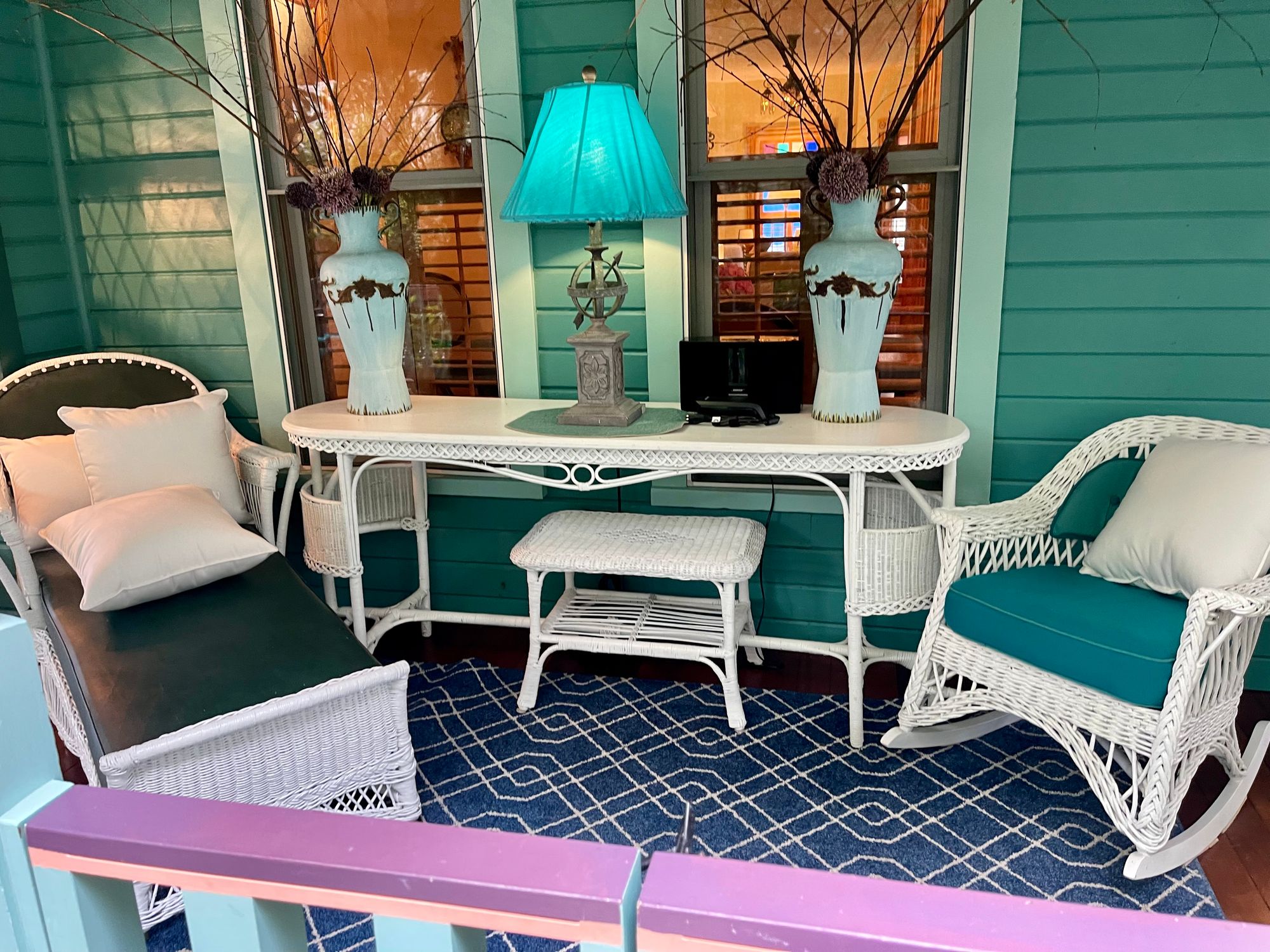
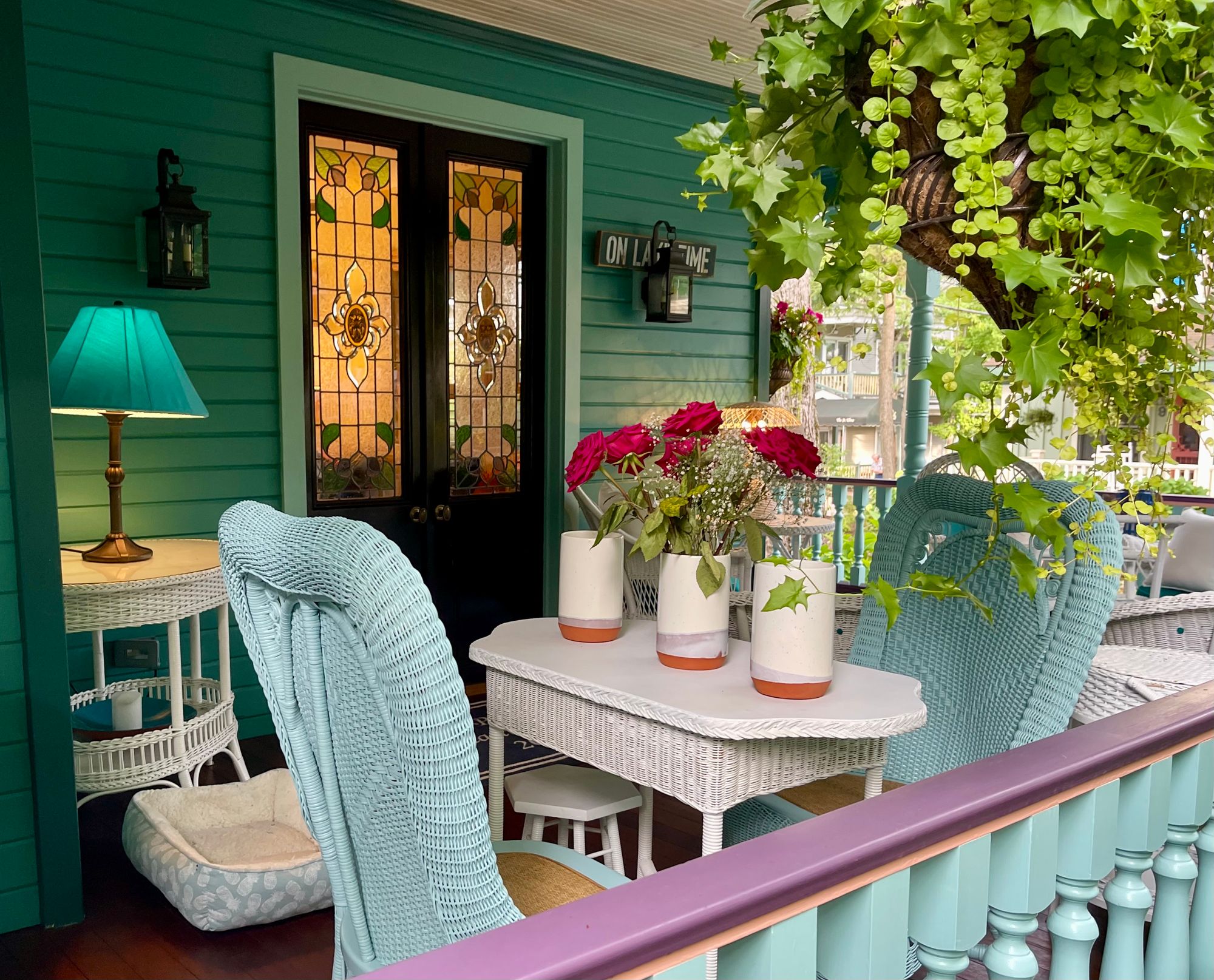
Art and Amenities
Everywhere we went, Kathy (who has a very keen eye for this kind of thing) pointed out special elements and amenities that property owners and others put out for public use and display.
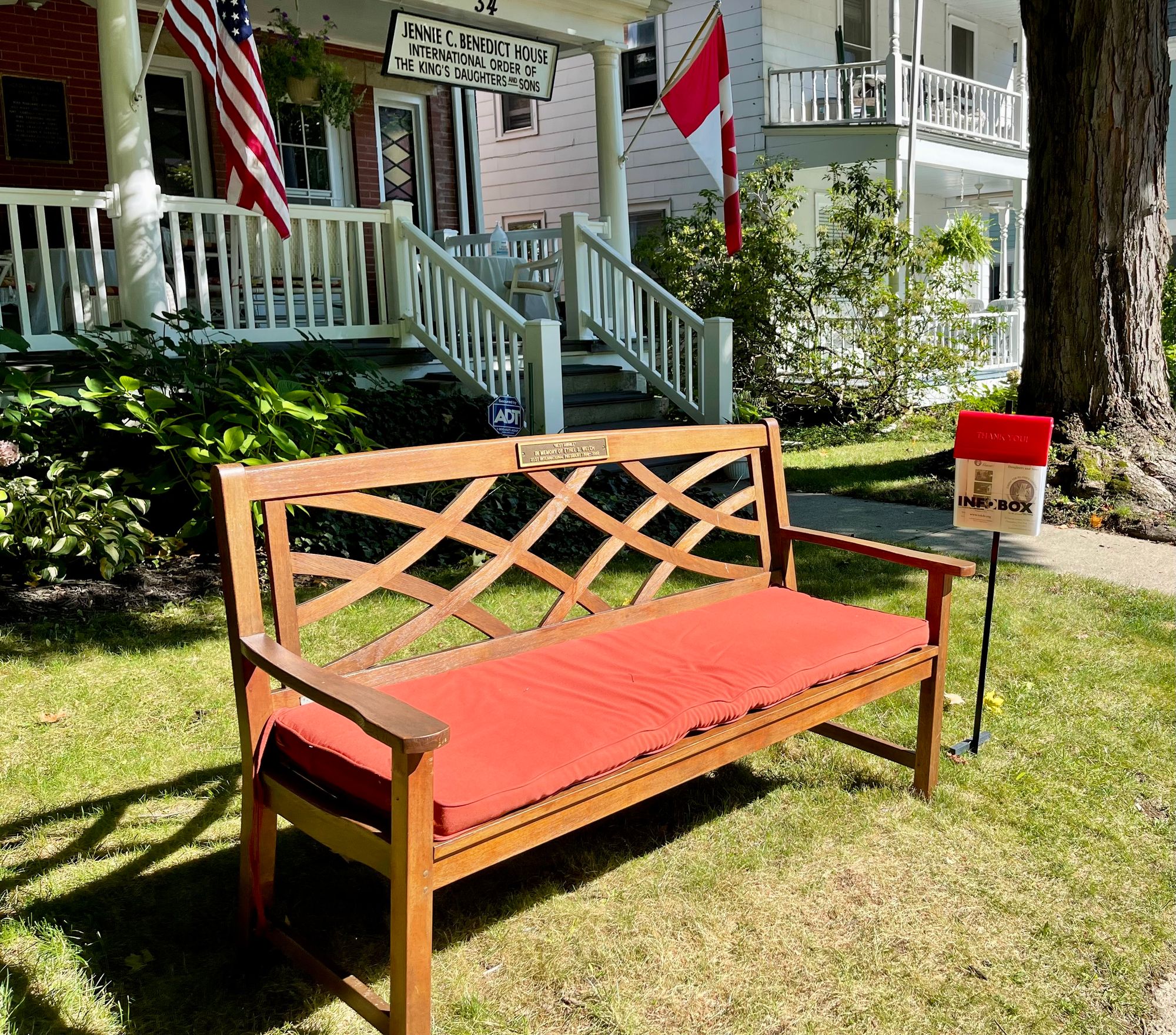
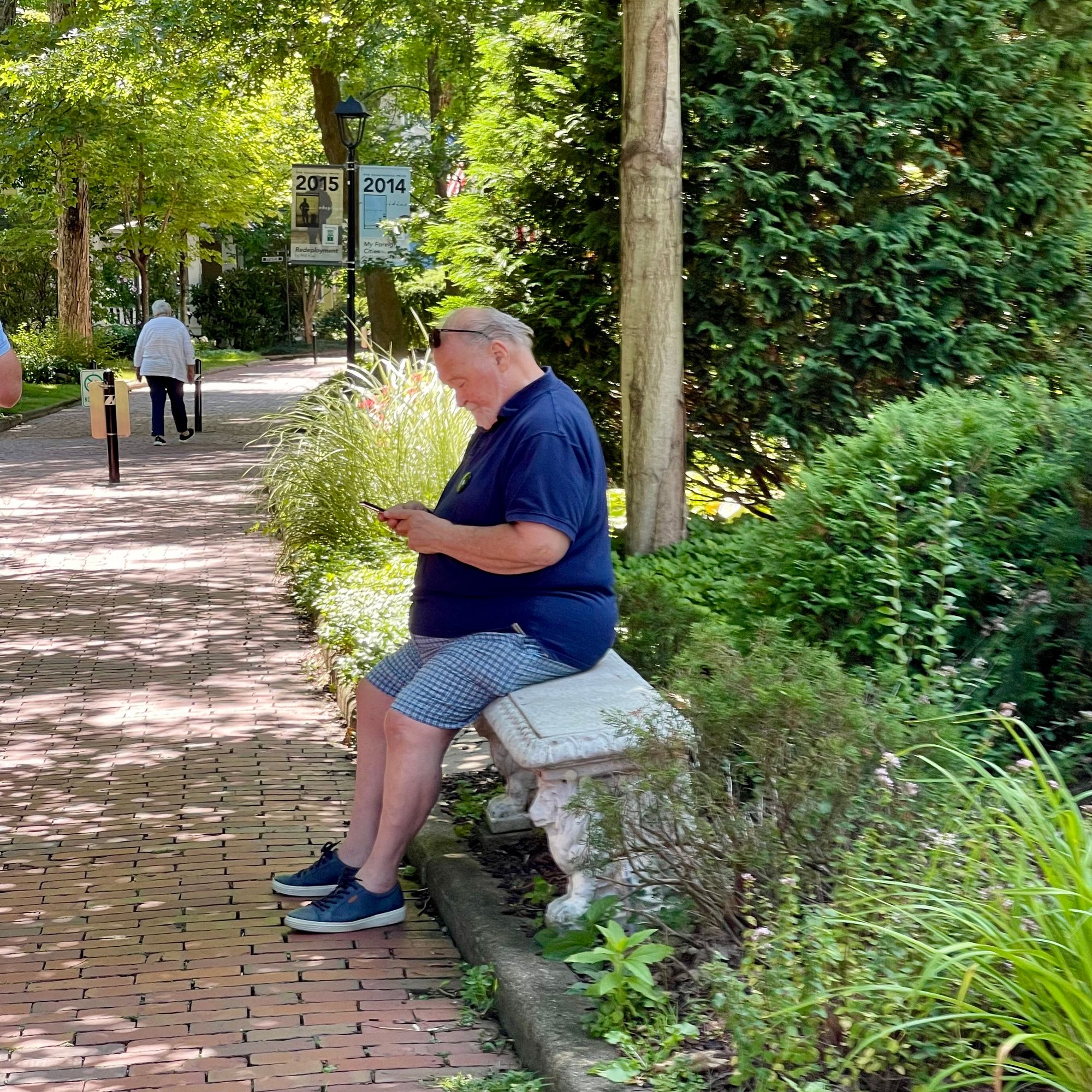
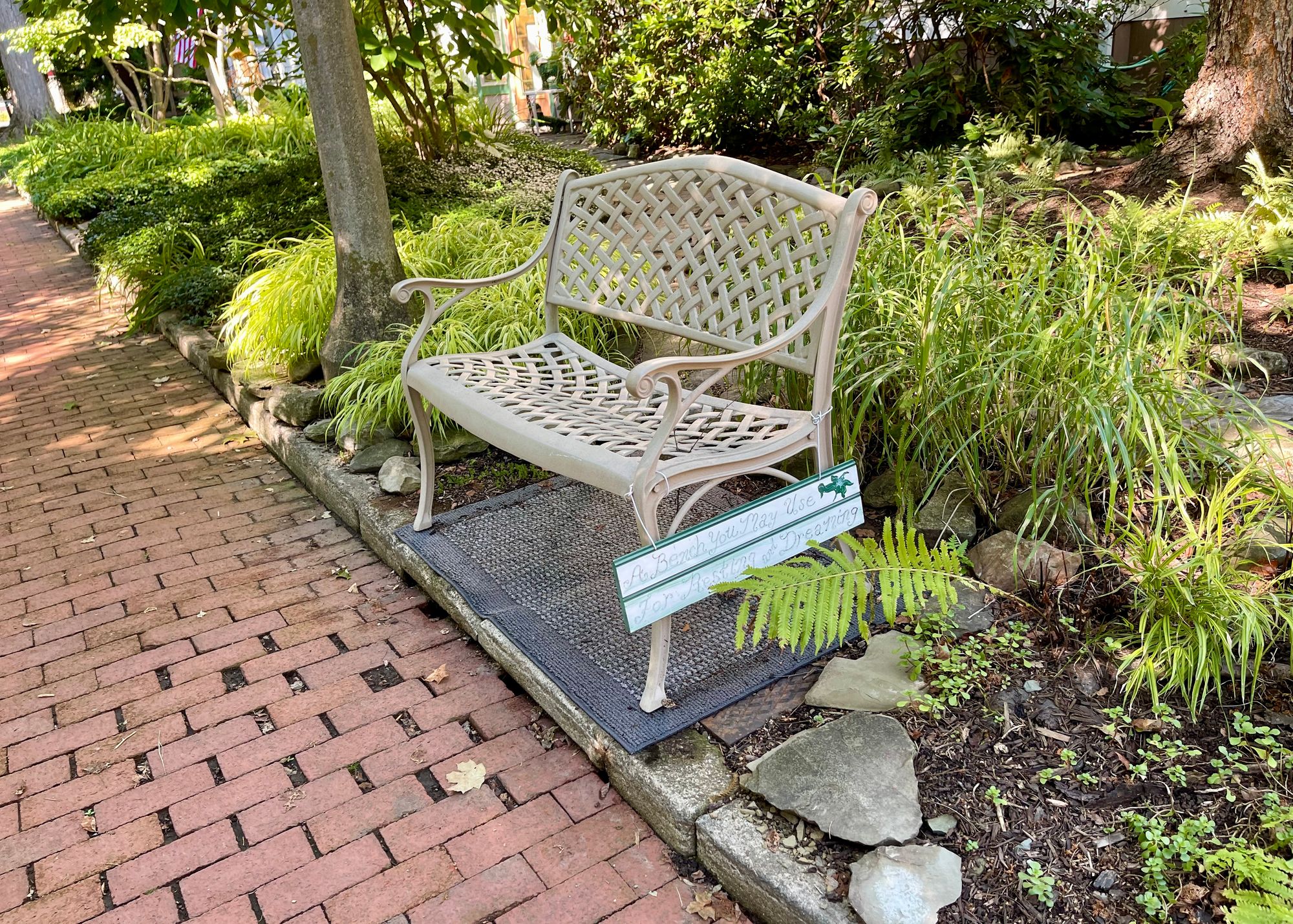
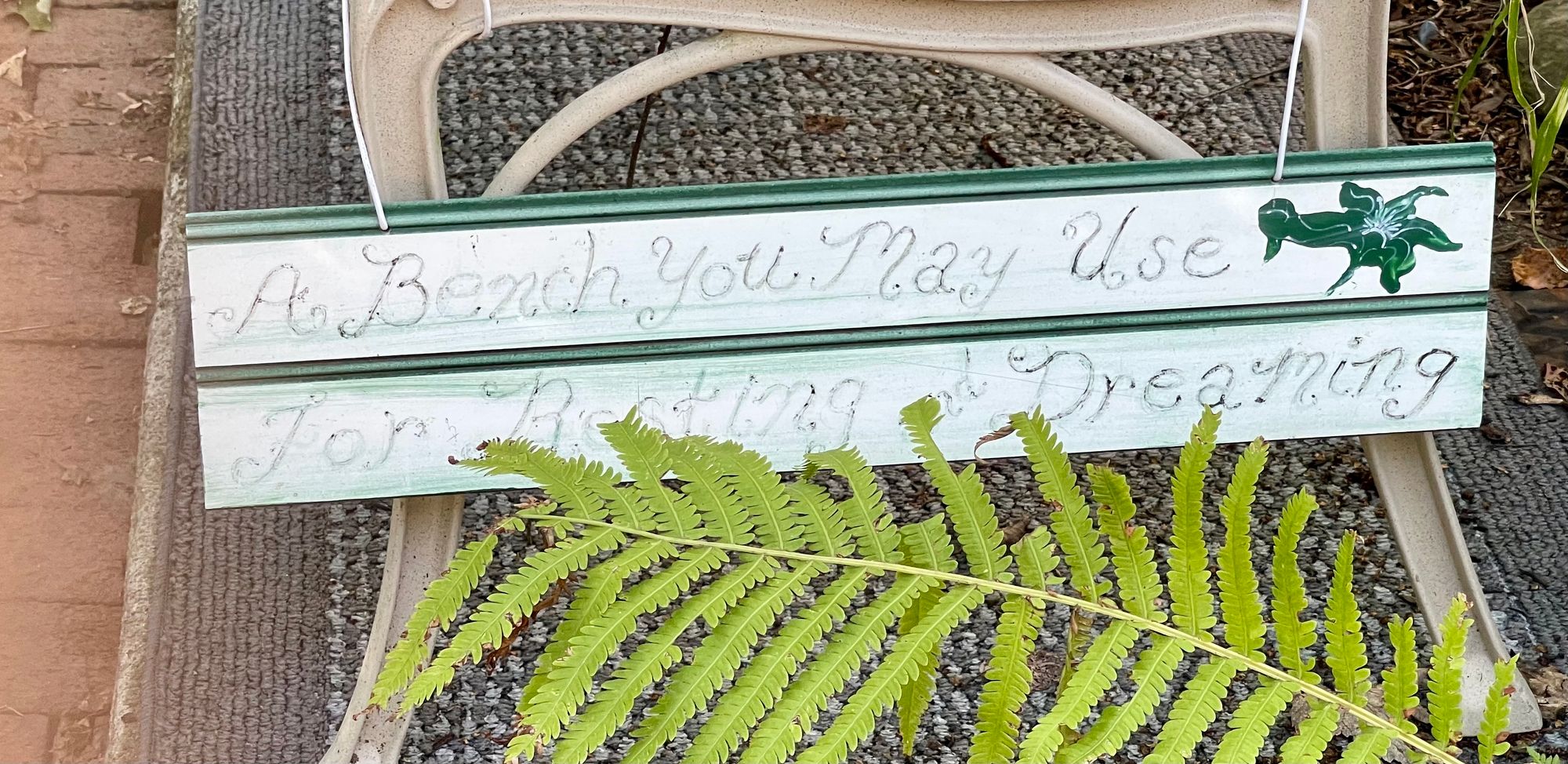
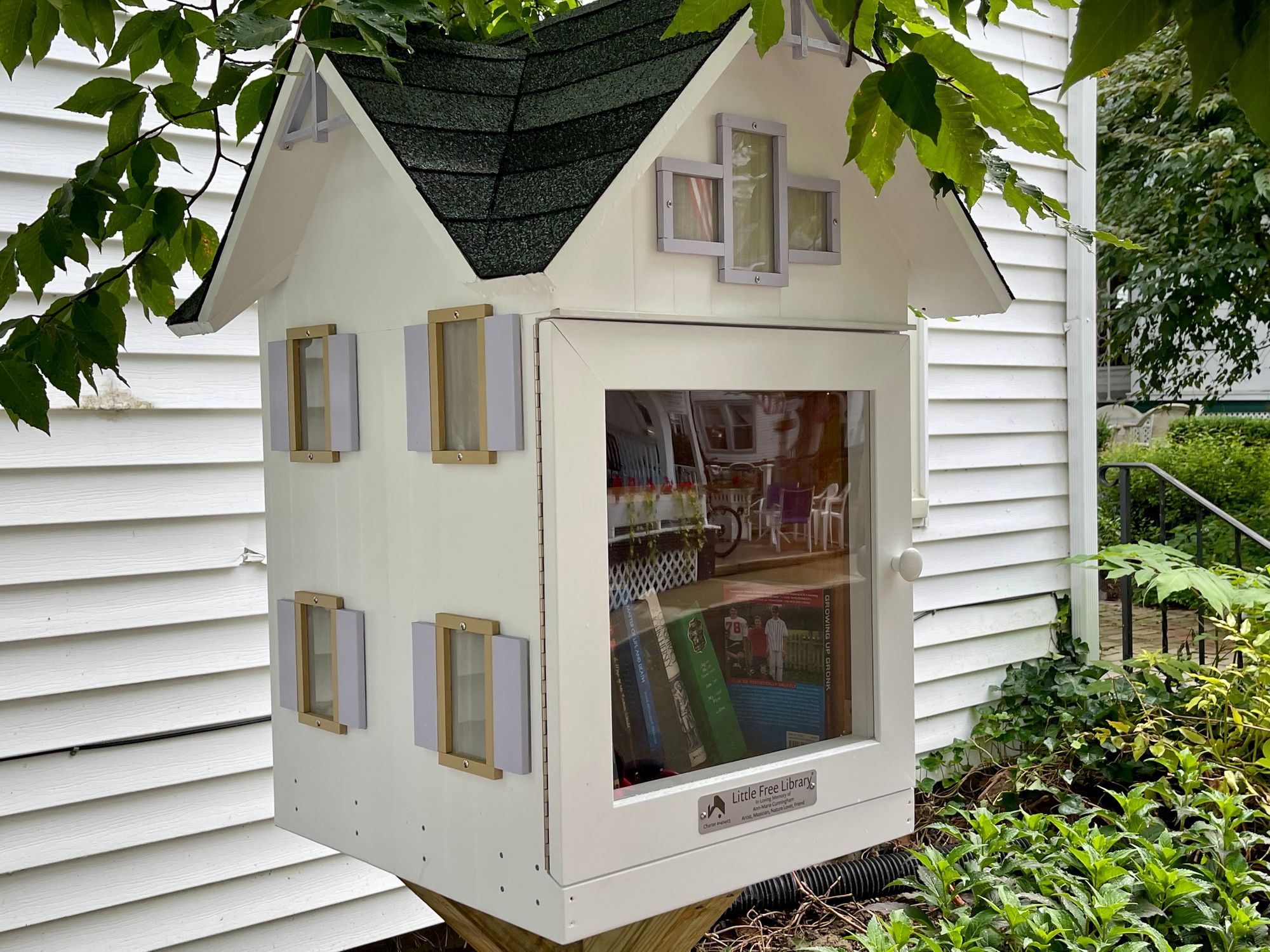
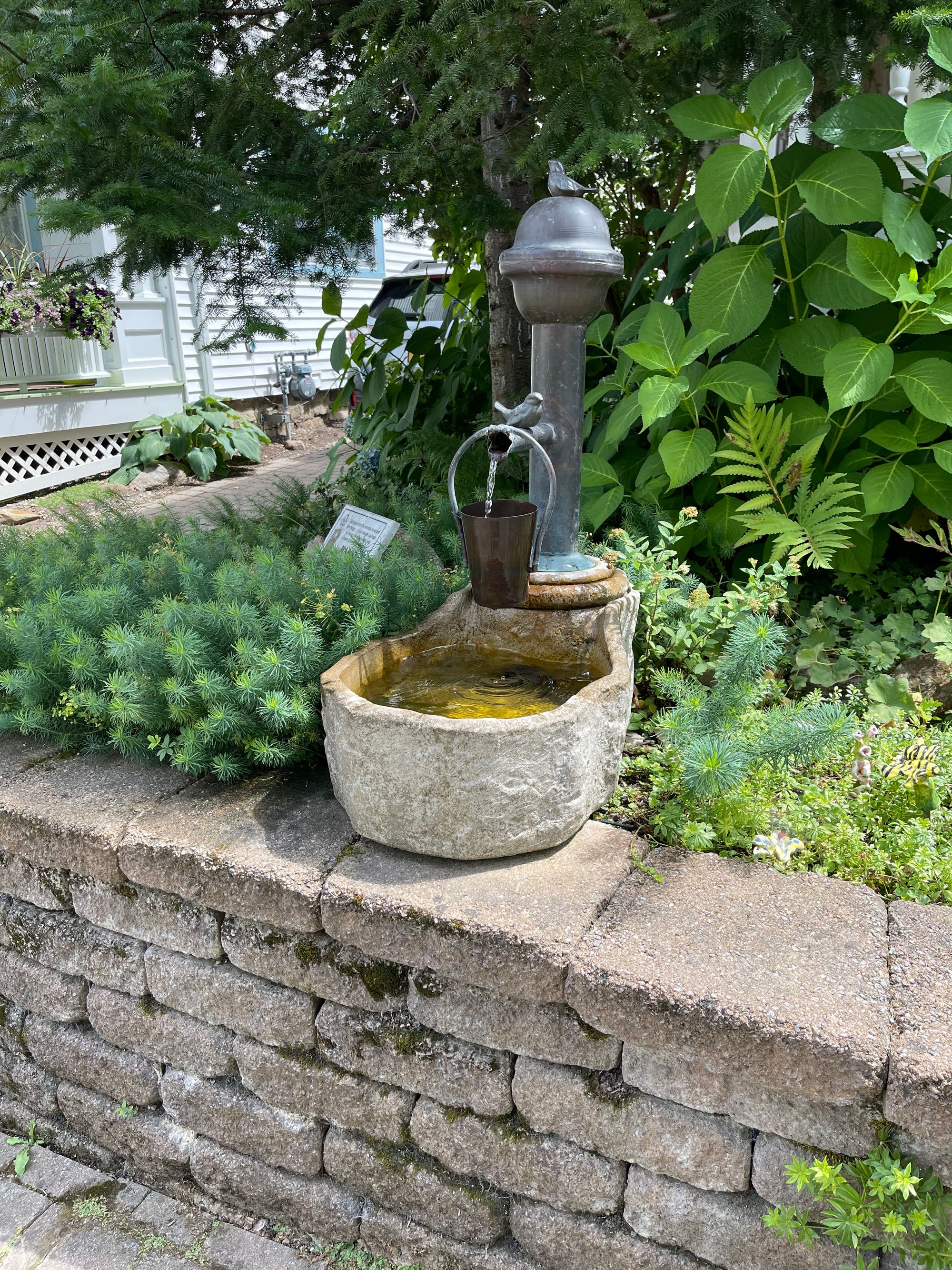
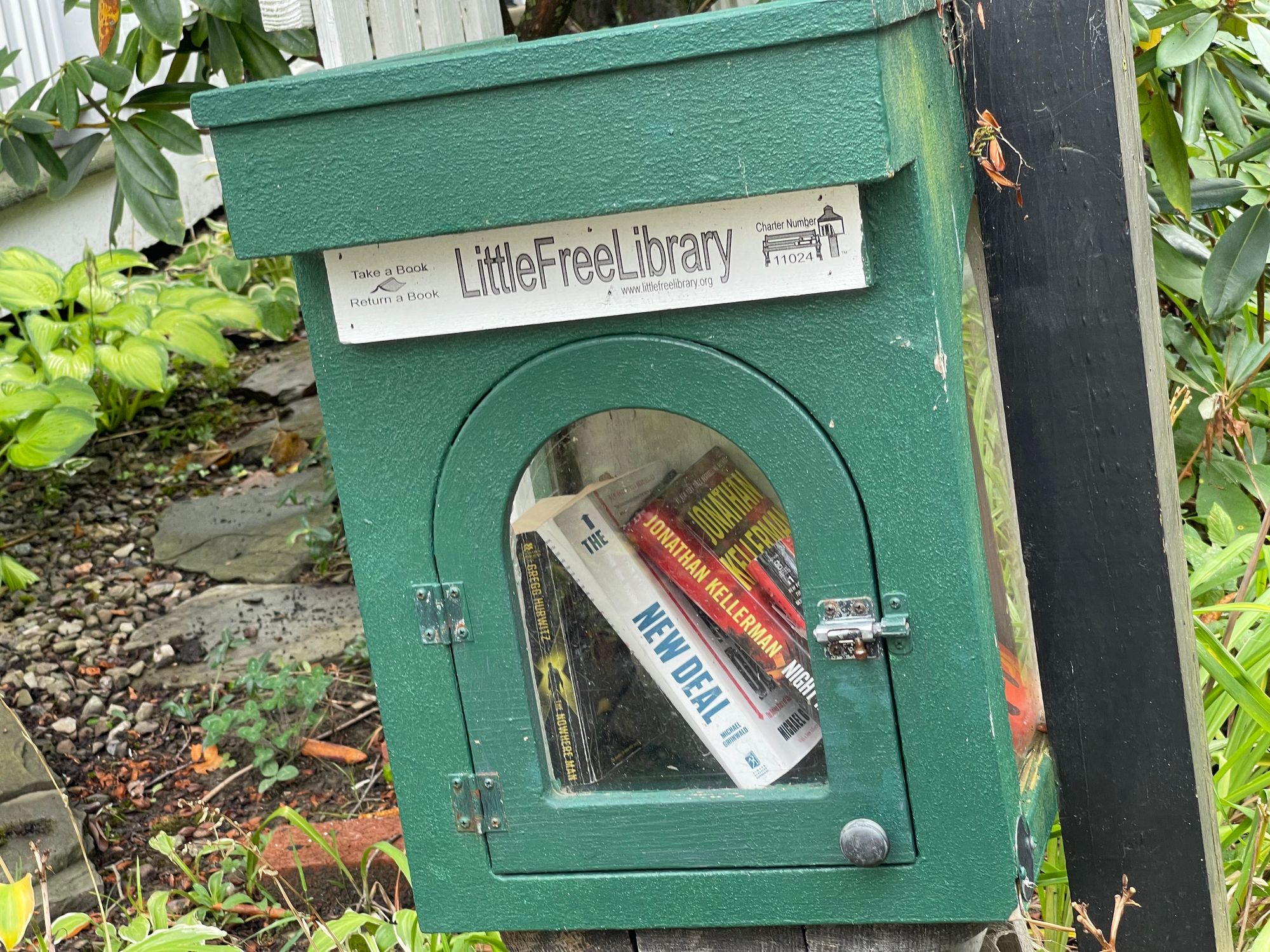
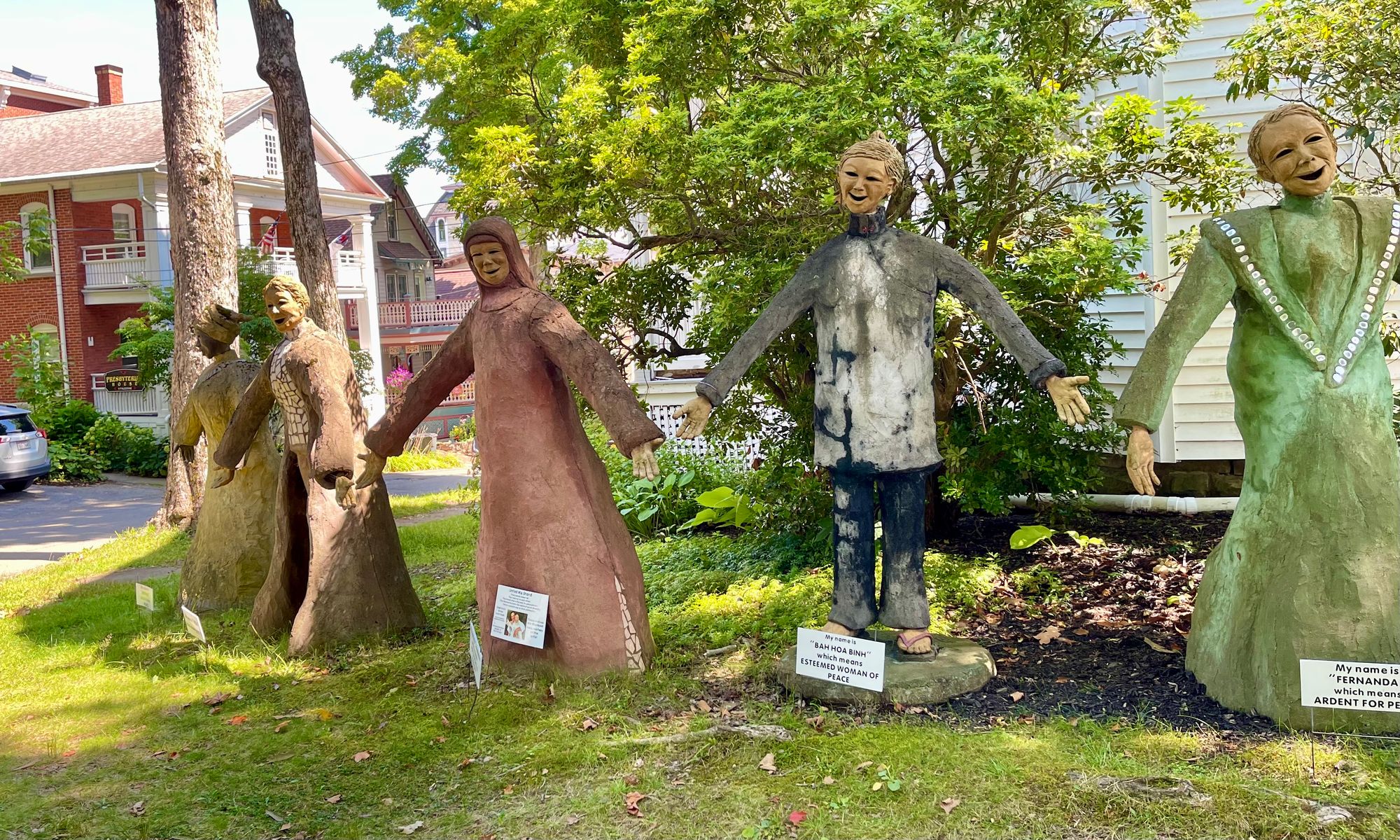
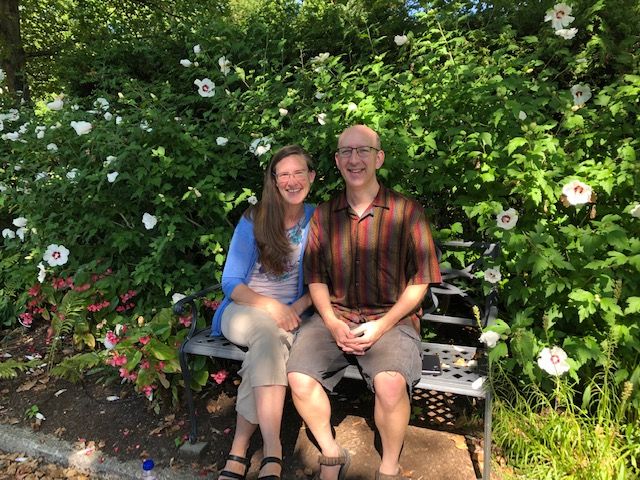
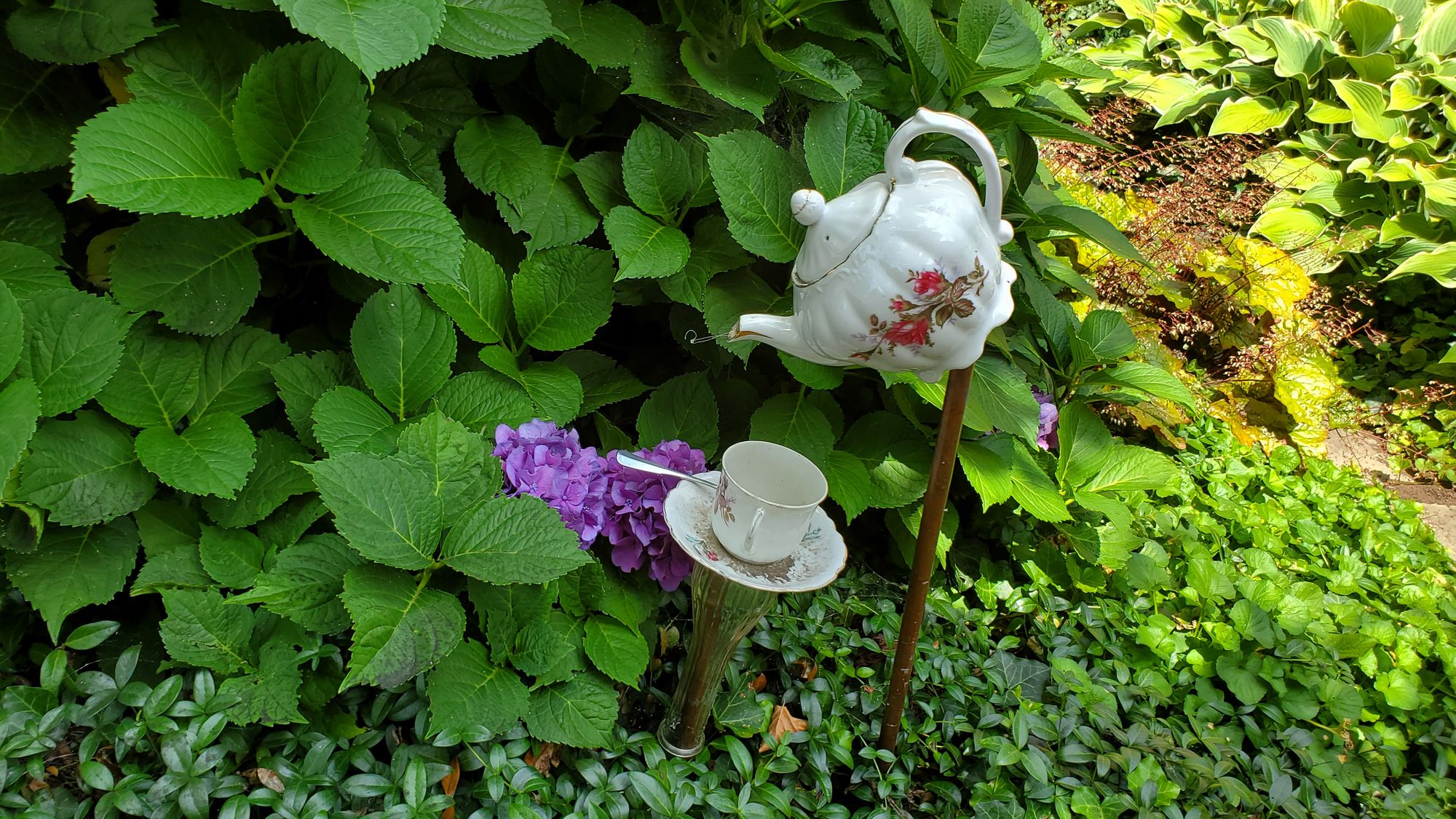
Steve put this bench in front of his house. It gives people a place to stop to have a rest or wait for a bus.
Many dogs and at least one cat
Dogs and cats are curious and social creatures as well. Chautauqua provides a perfect environment for them to connect alongside their owners.

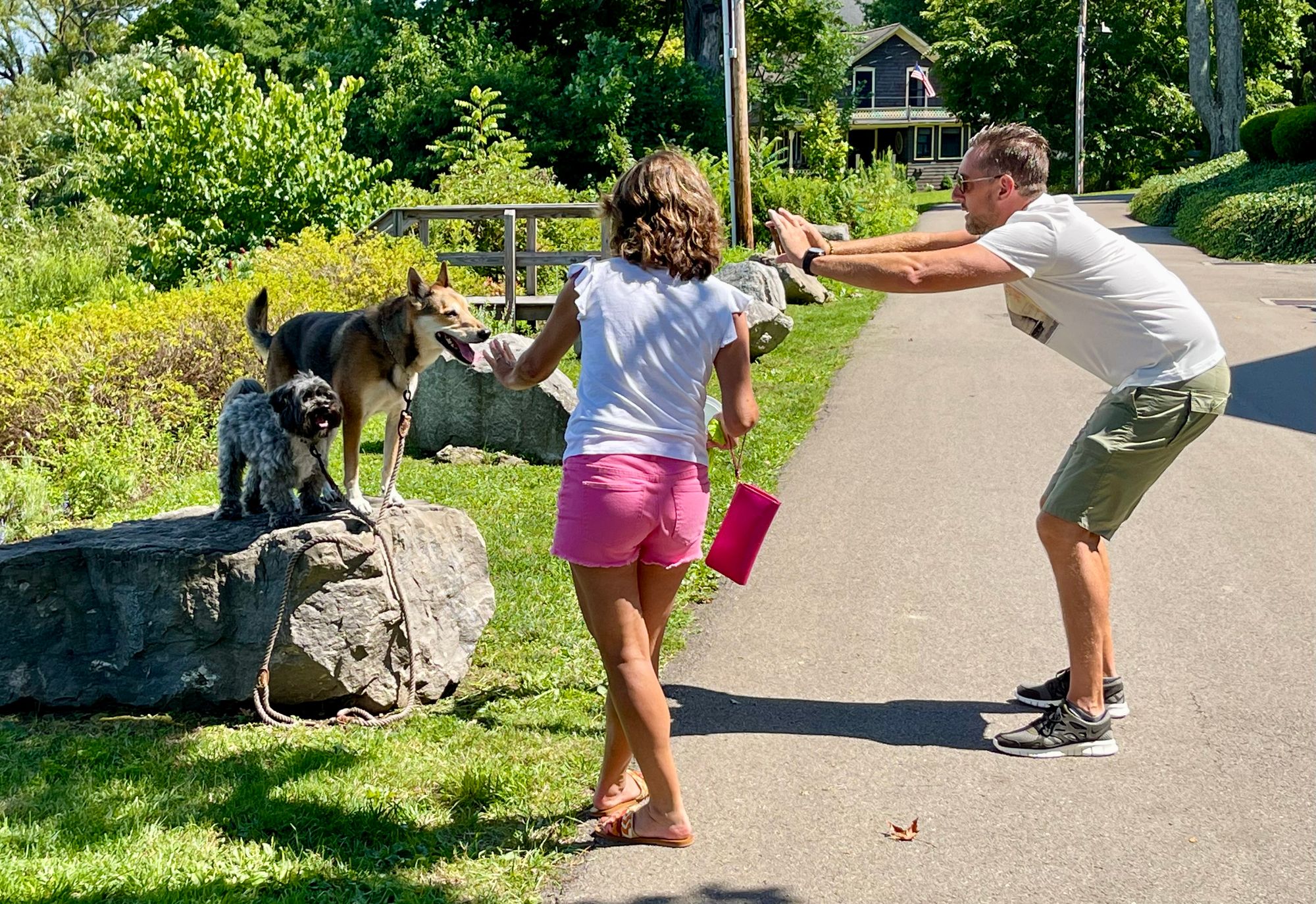
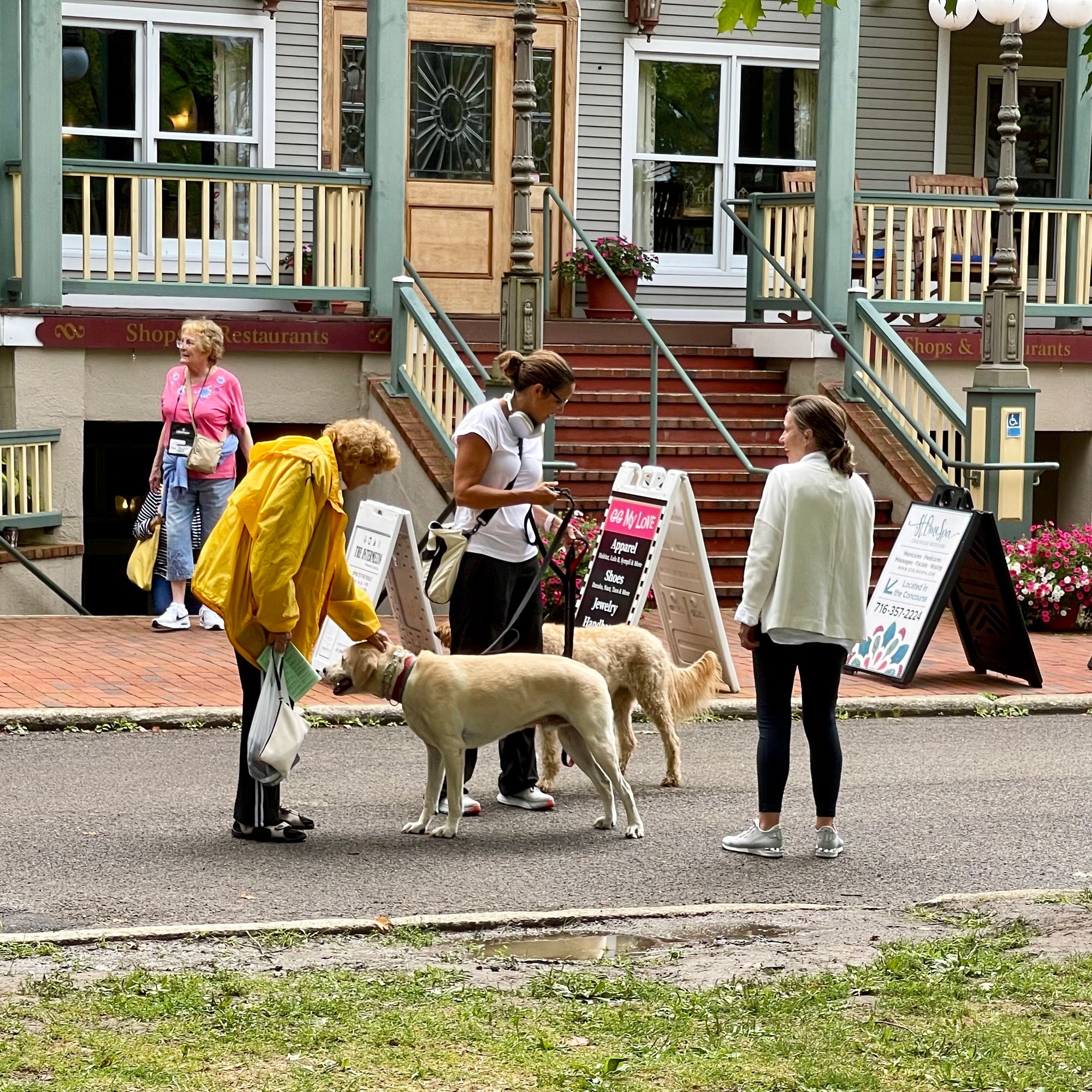
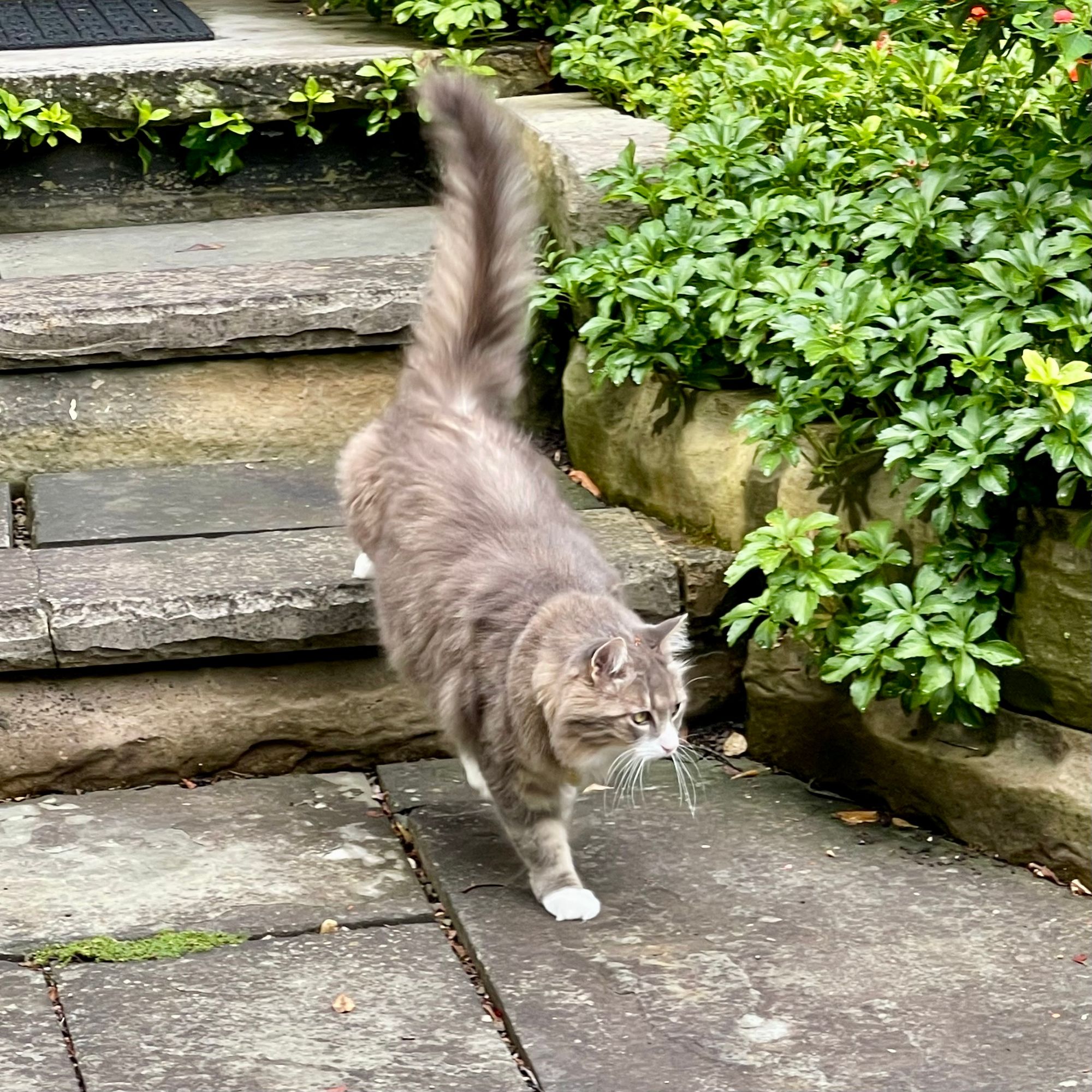
Inside-Outside Events
One great thing about Chautauqua is how private events often take place in open public view. Street performers, often students of Chautauqua's music school, abound.
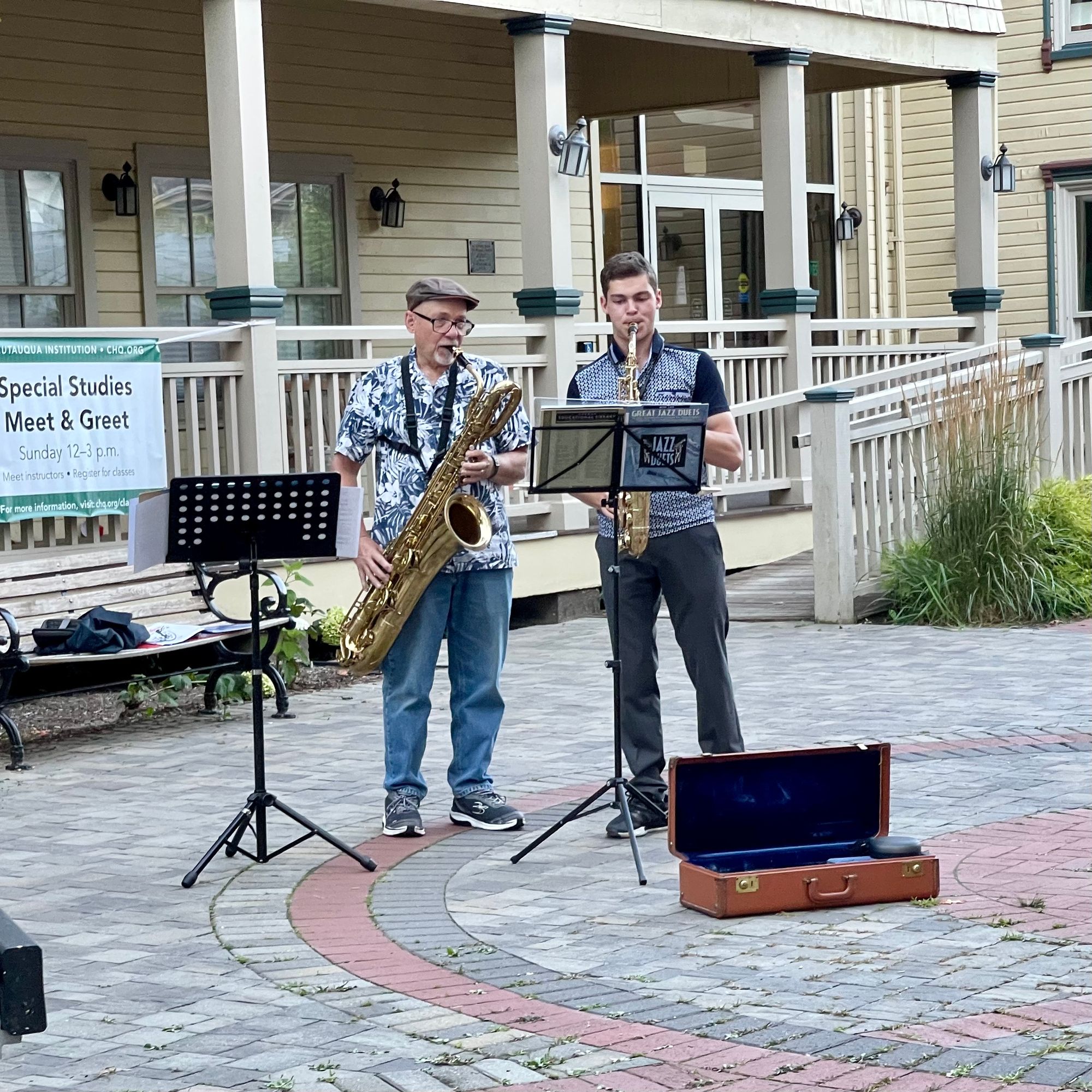
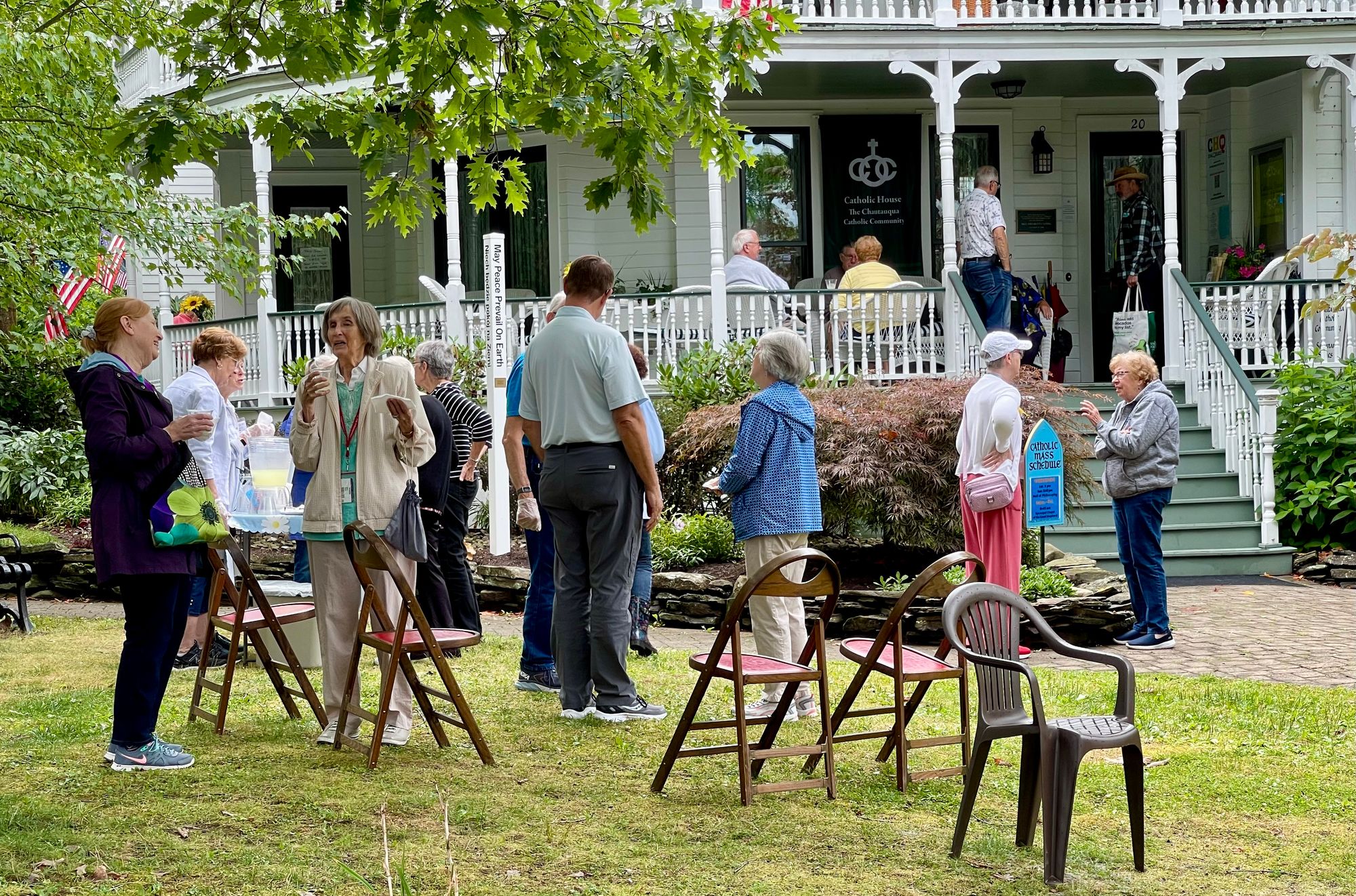
Performance/Discussion Venues
The "beating heart" of Chautauqua is a 4000-seat amphitheater. Every day there are morning religious services, a lecture by notable speakers at 10:45 am, afternoon open rehearsals, and an evening concert. The "Amp" is a reconstruction of the original which dated back to 1883 and was sadly demolished and replaced with a replica which opened in 2017. The new Amp maintains the historic openness to public view and enjoyment even if you are just walking by.
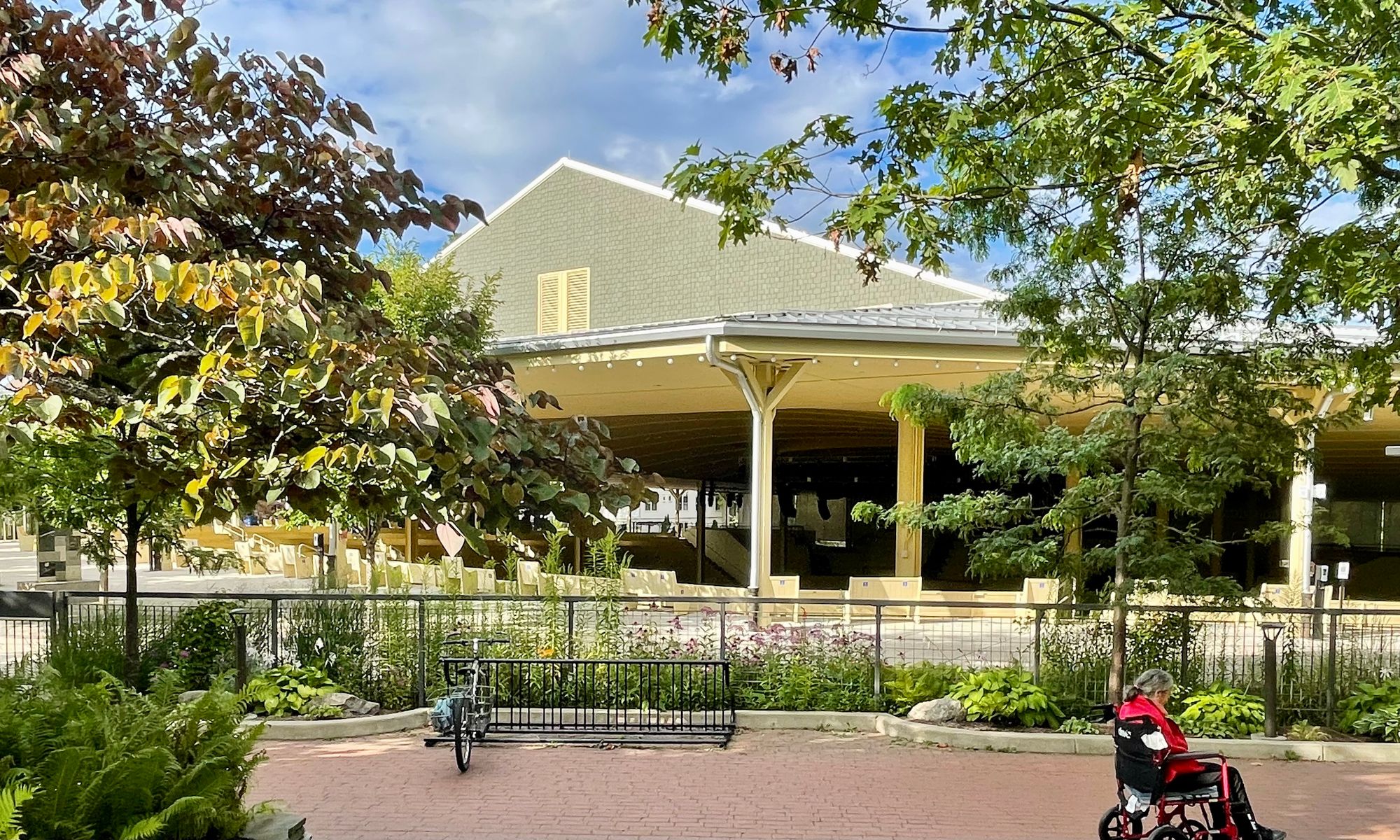
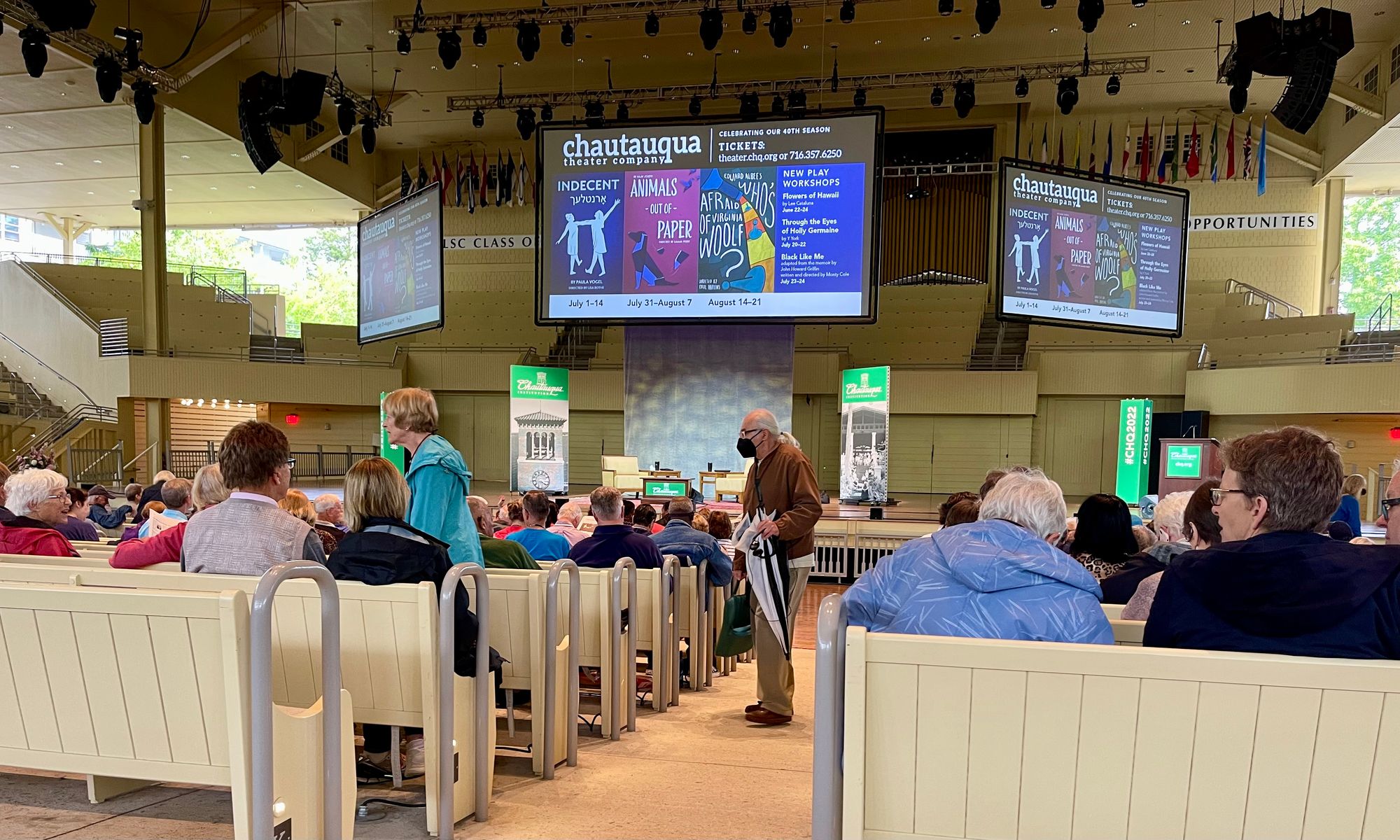
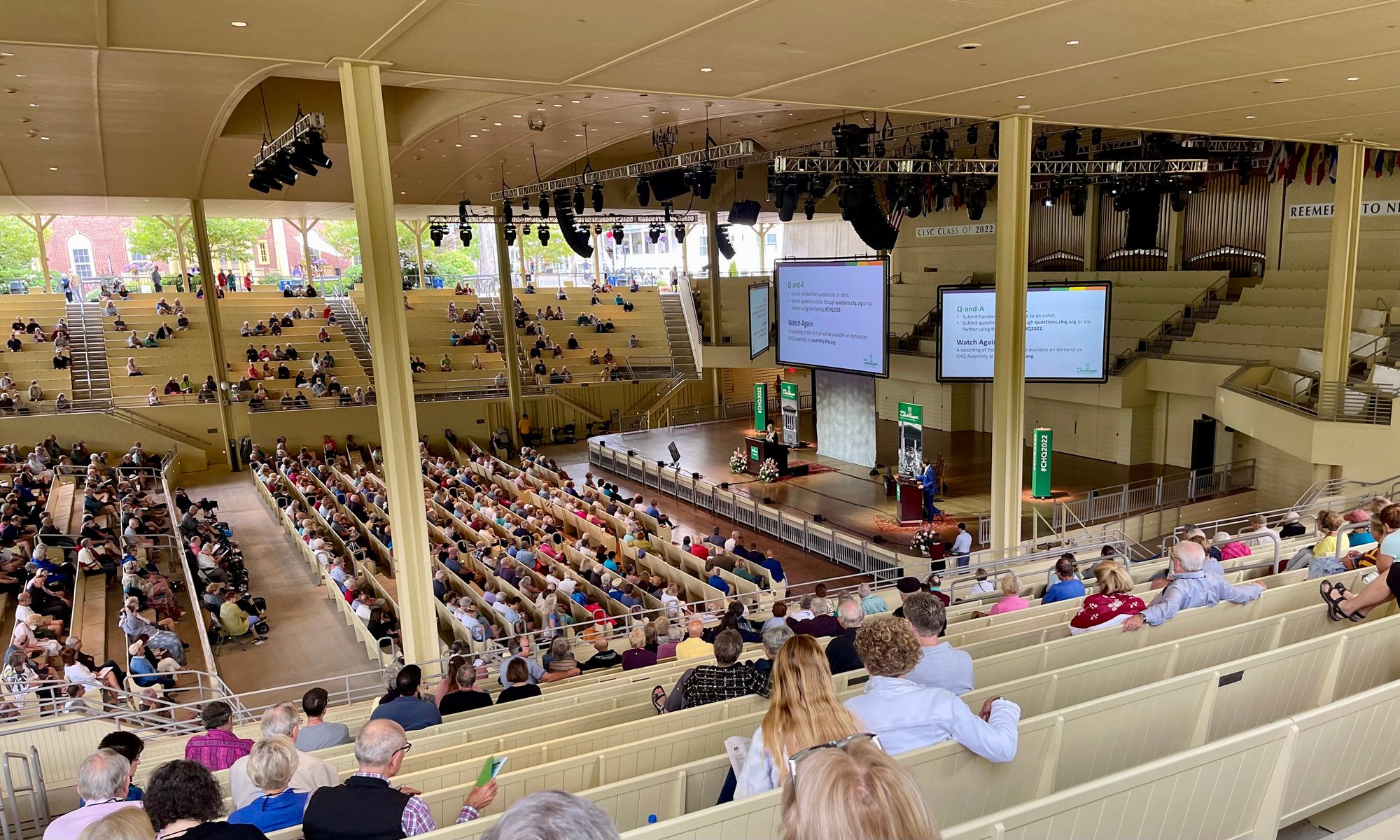
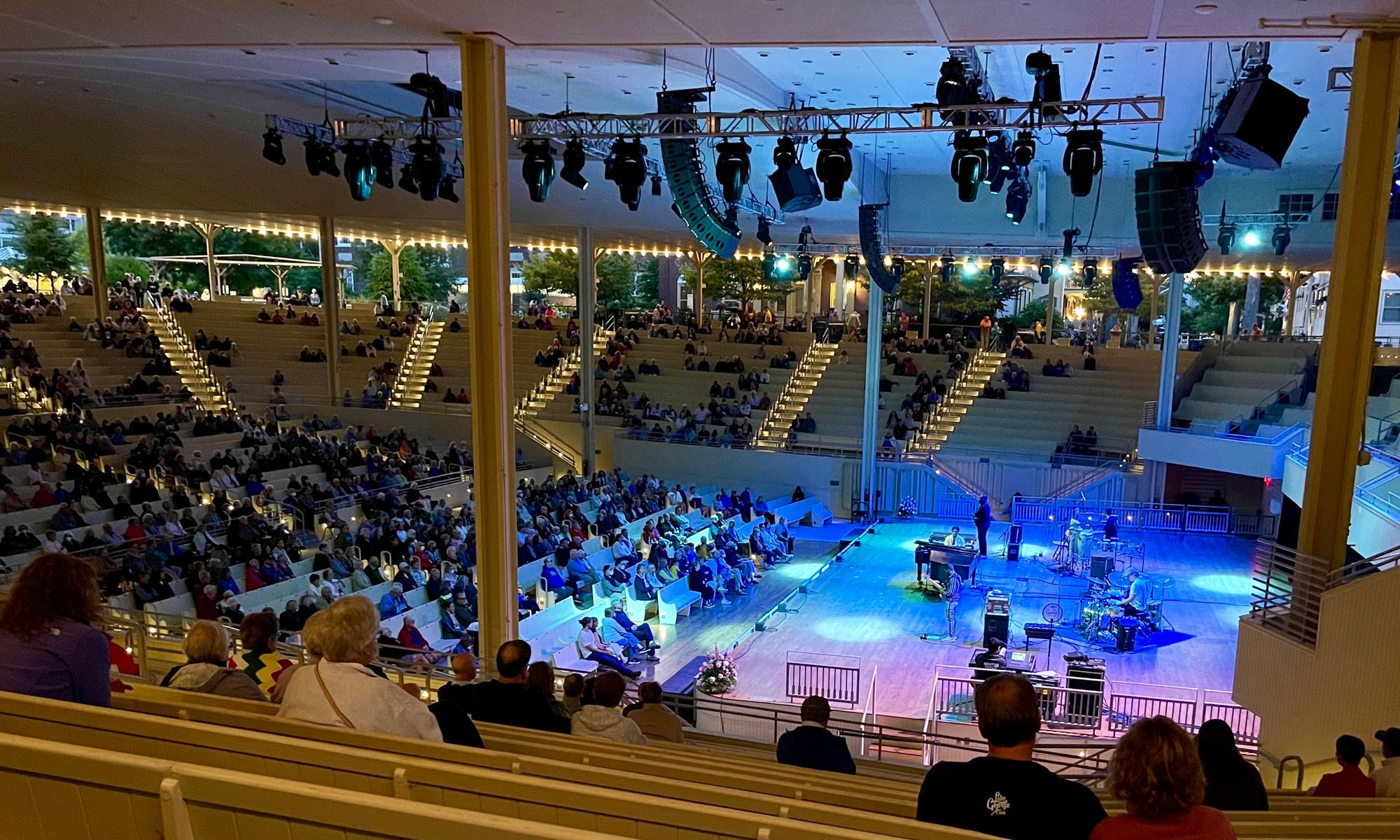
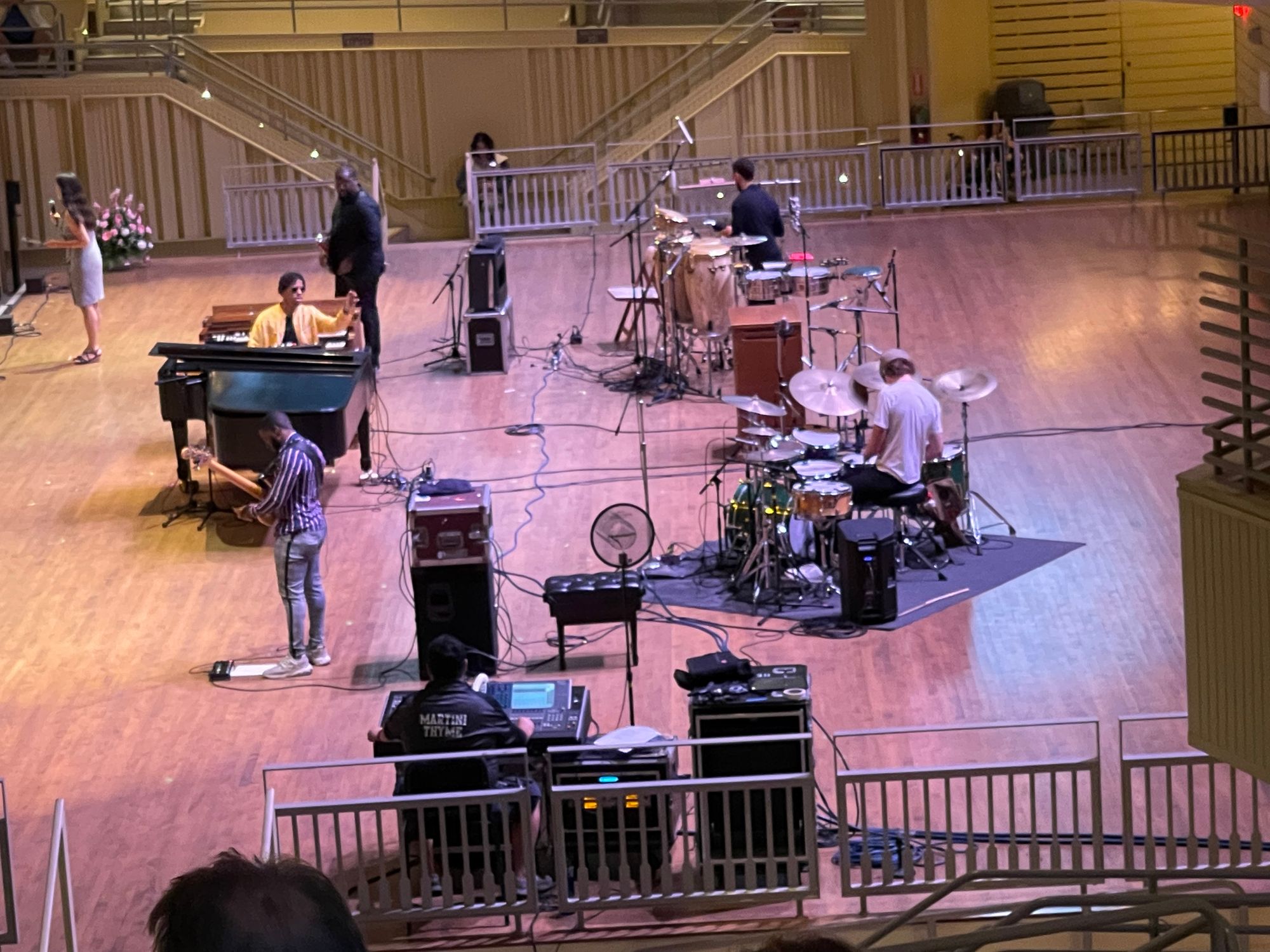
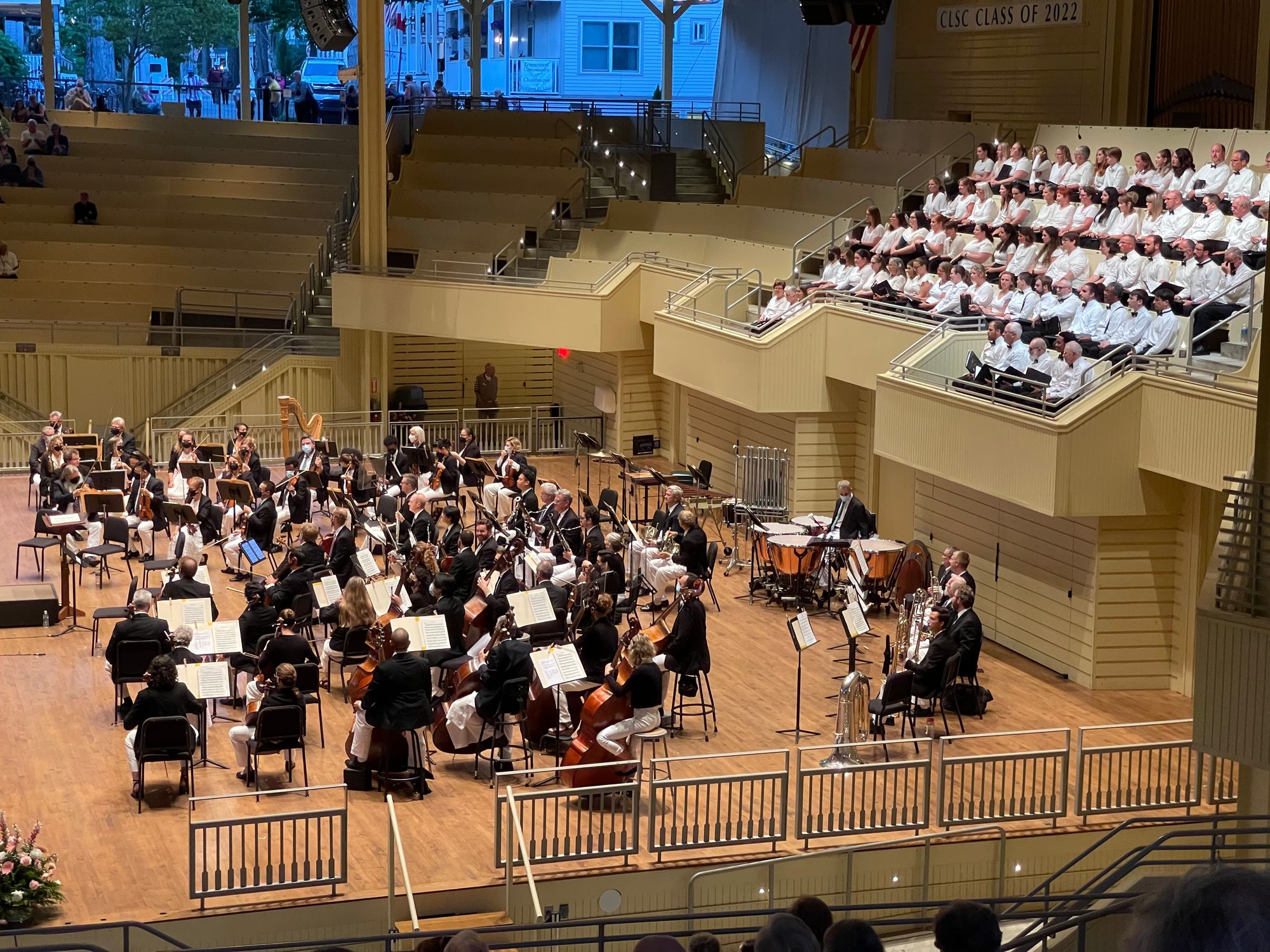
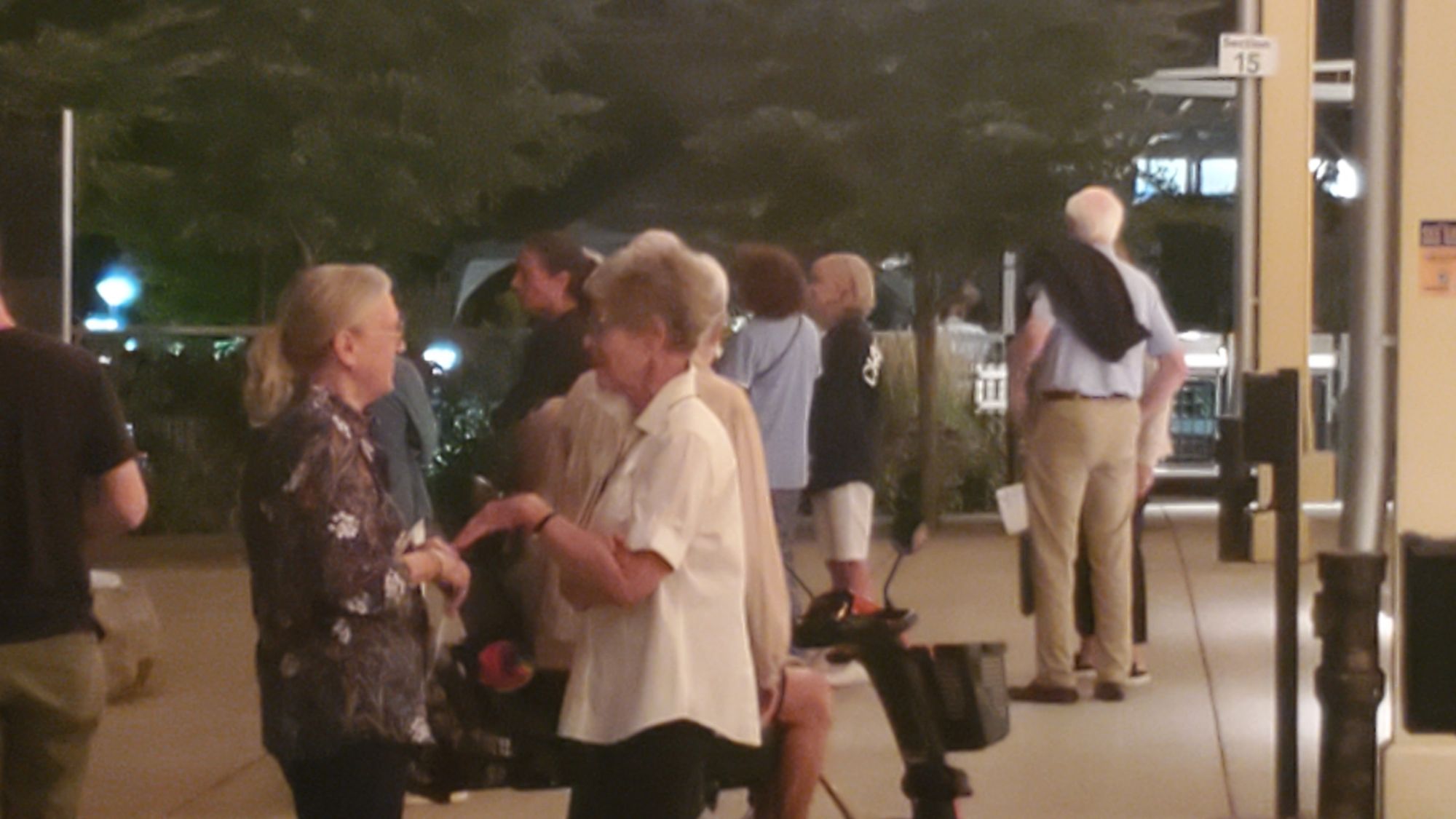
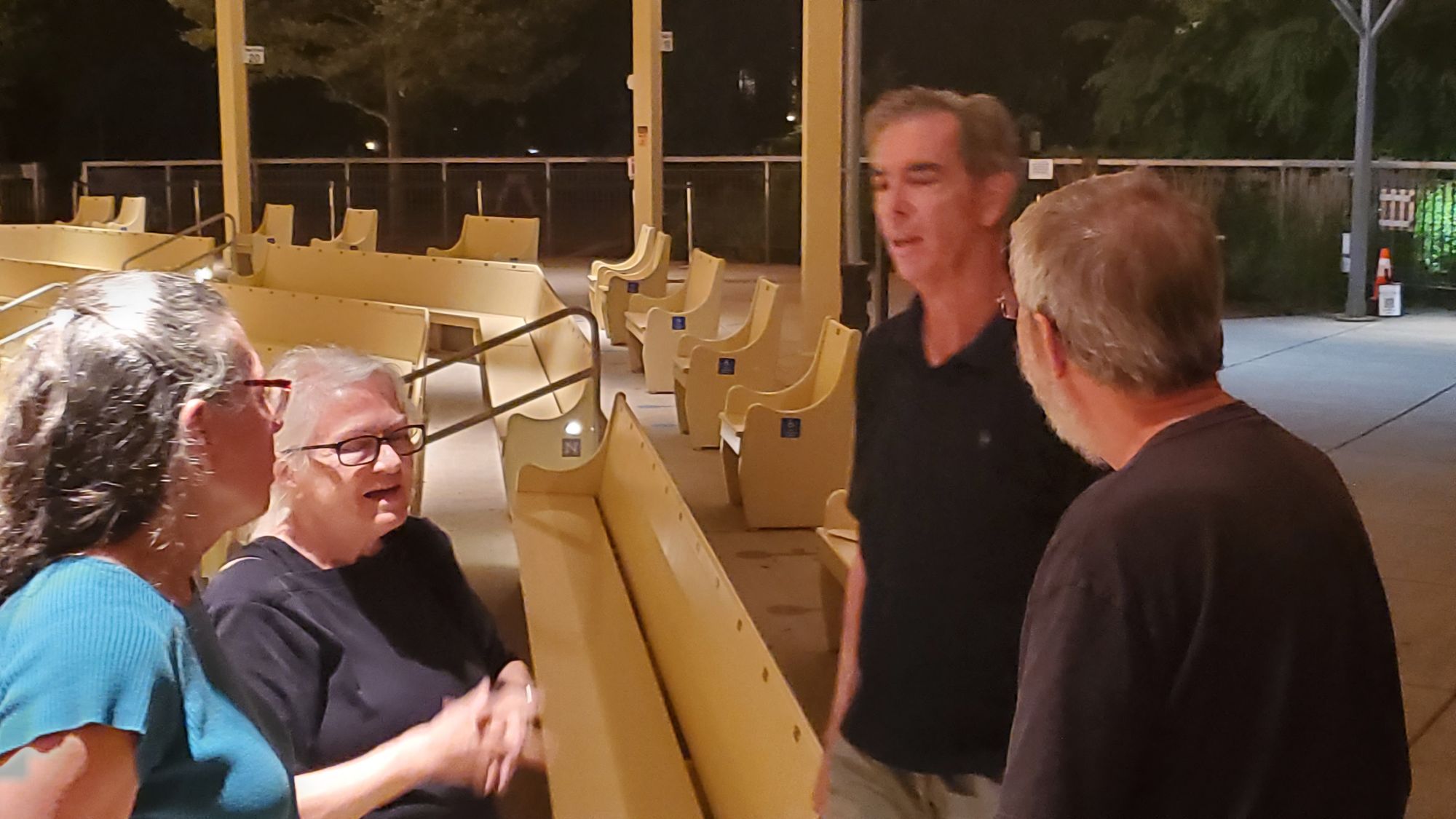
Friends pause for a conversation after an event in the Amp
Waterfront
Chautauqua would not be Chautauqua without the lake. It's a popular place to walk along, as well as boat and swim, and the anchor is the park around the historic bell tower.
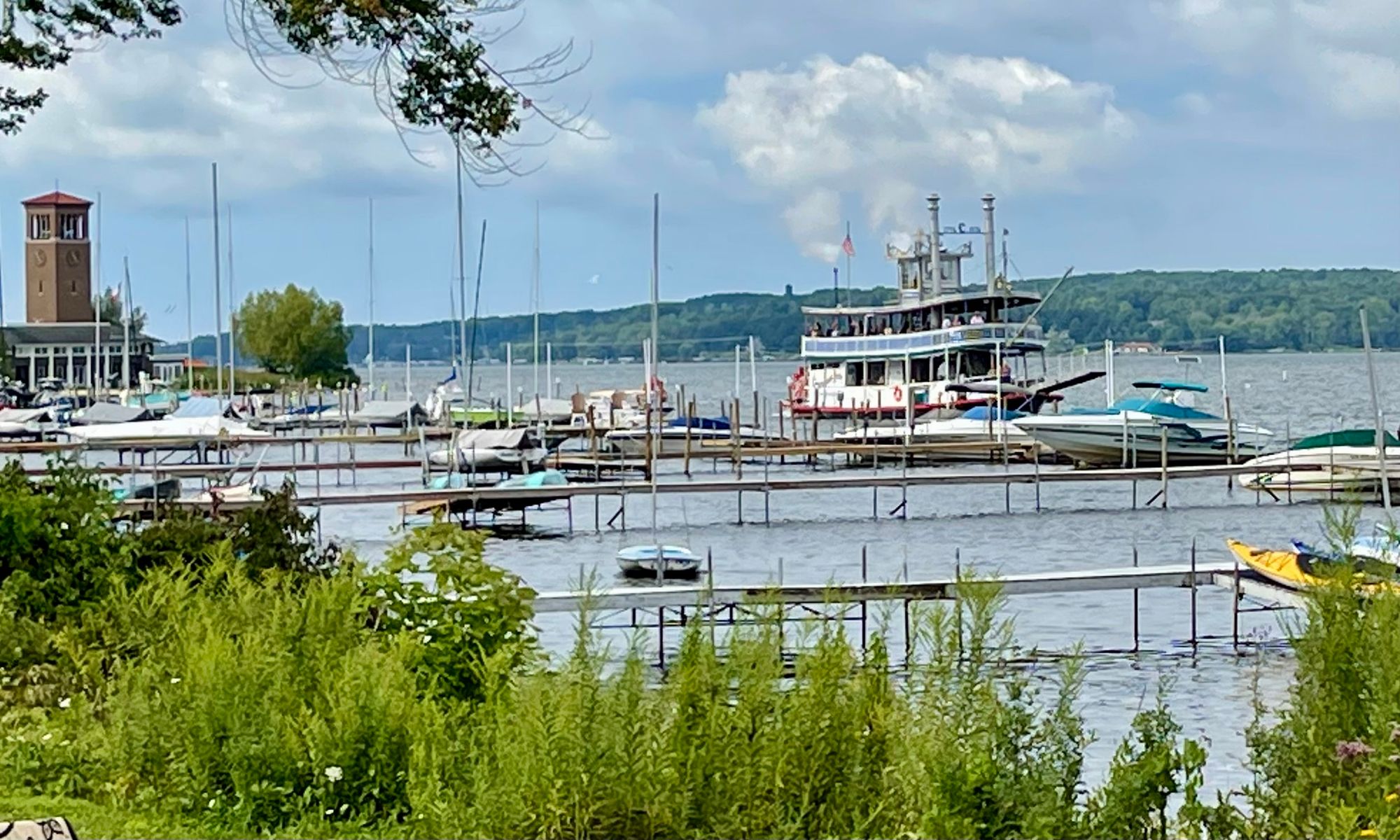
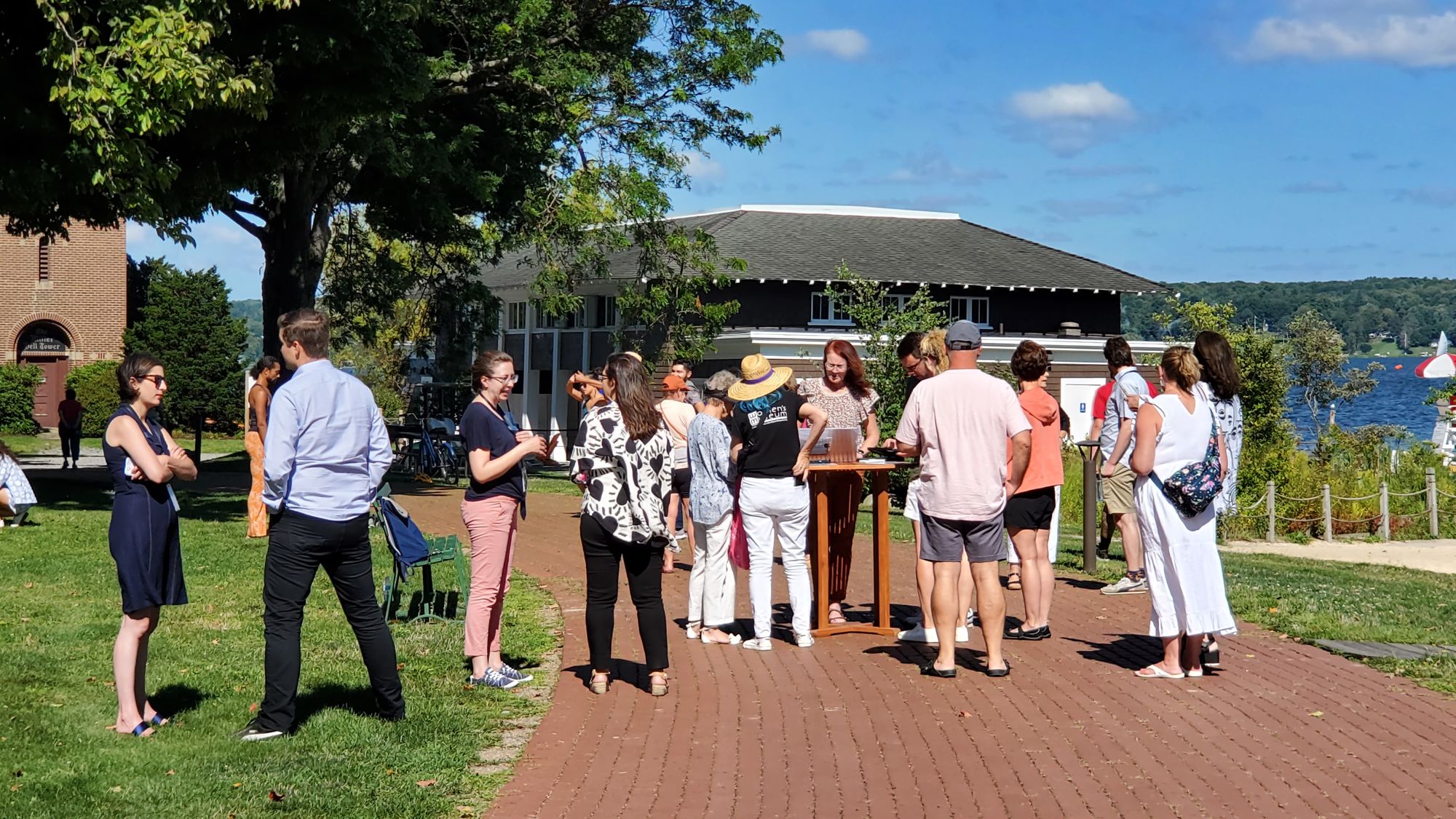
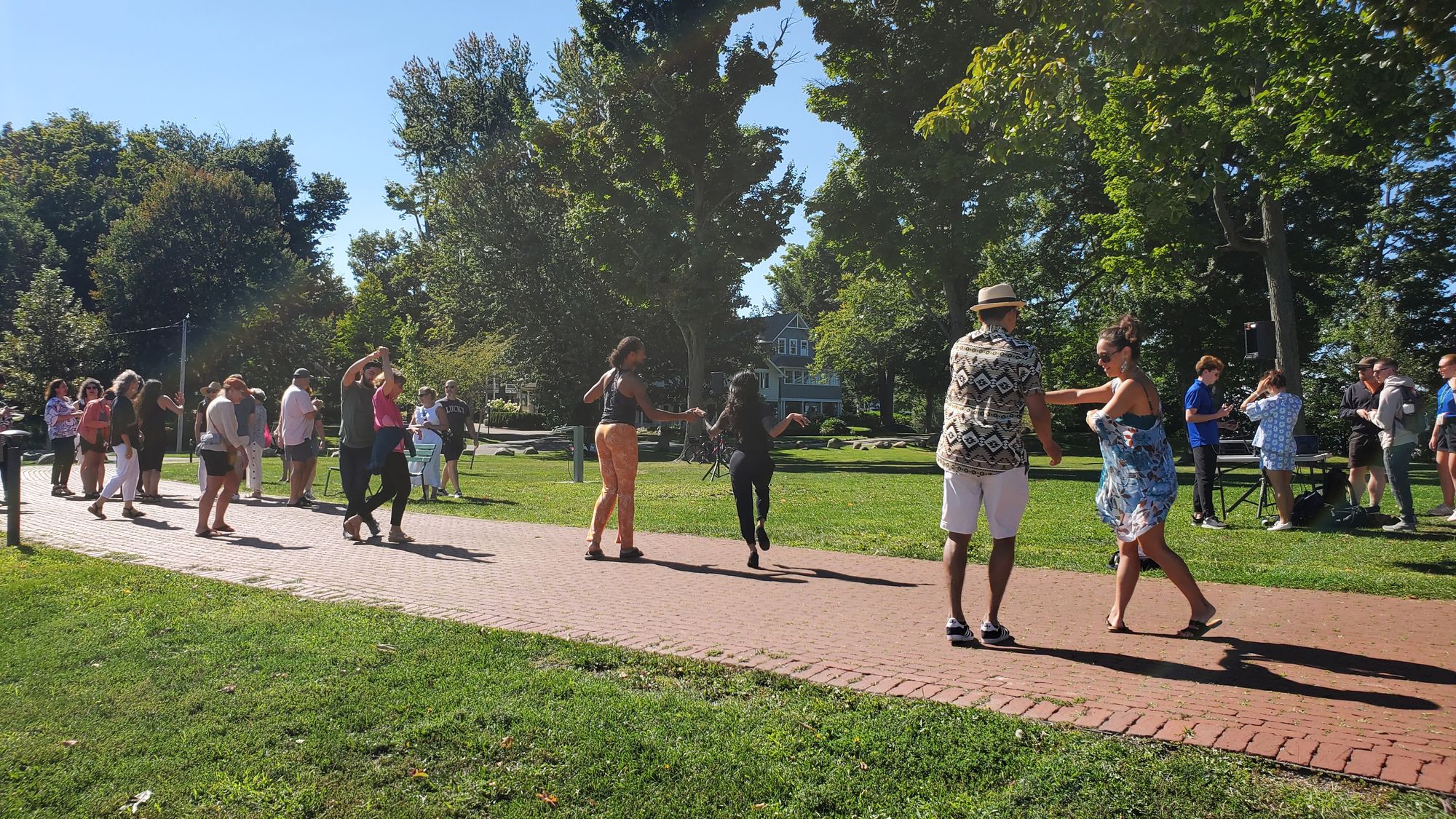
A private gathering for fun and dance at the bell tower.
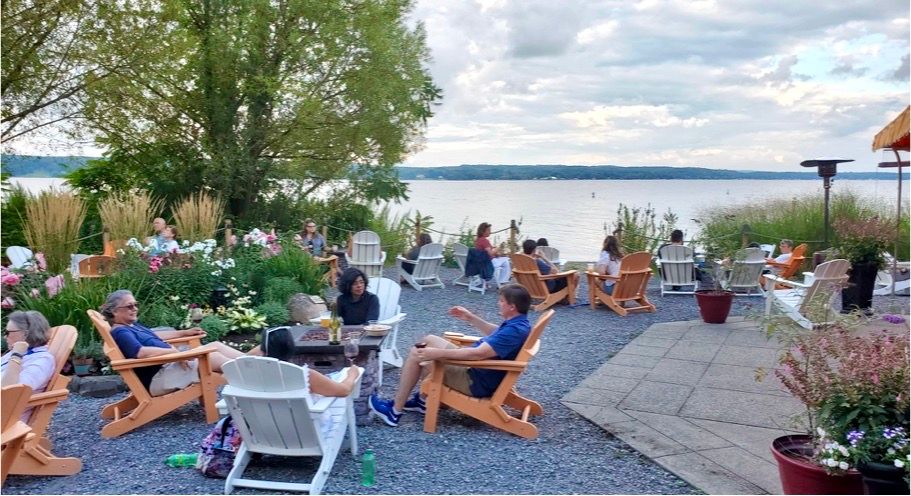
A cafe by the bell tower
Historical Images


Historic Bell Tower and Landing
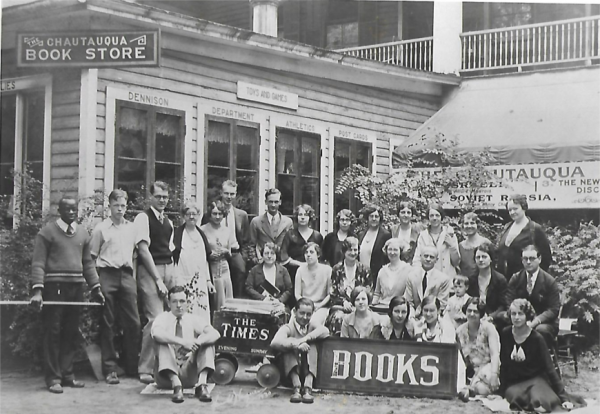
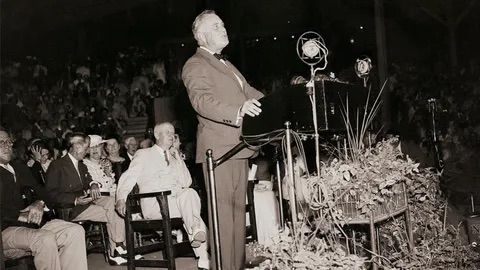
The Chautauqua Book Store and Franklin Delano Roosevelt, one of six presidents who gave talks at Chautauqua
Takeaways
- Chautauqua is an amazing place to meet people, where any conversation is easy to have and easy to start.
- Children roam free, as do adults, because it is safe, enjoyable, and interesting to do so. People find themselves just wandering to see what is happening at all hours.
- Very few people are on their cell phones. There is just too much to see and do.
Additional Notes: What Chautauqua Means to American Culture
"Chautauqua is part of the American Imagination. It is one of those places that help define who we are and what we believe in. It has its own mythic force. "David McCullough, 1973
"Chautauqua is to be a center for the identification and development of the best in human values...to be a resource for the enriched understanding of the opportunities and obligations of community, family and personal life by fostering the sharing of varied cultural, educational, religious and recreational experience."
David Brooks, the prominent syndicated columnist, and a frequent speaker in Chautauqua, recently wrote a column, Why Your Social Life is Not What it Should Be
Places that reflect a similar magic
Back on Brooklyn, part of our family live in a muse built in 1876. It evokes a similar sense of place that we found in Chautauqua.
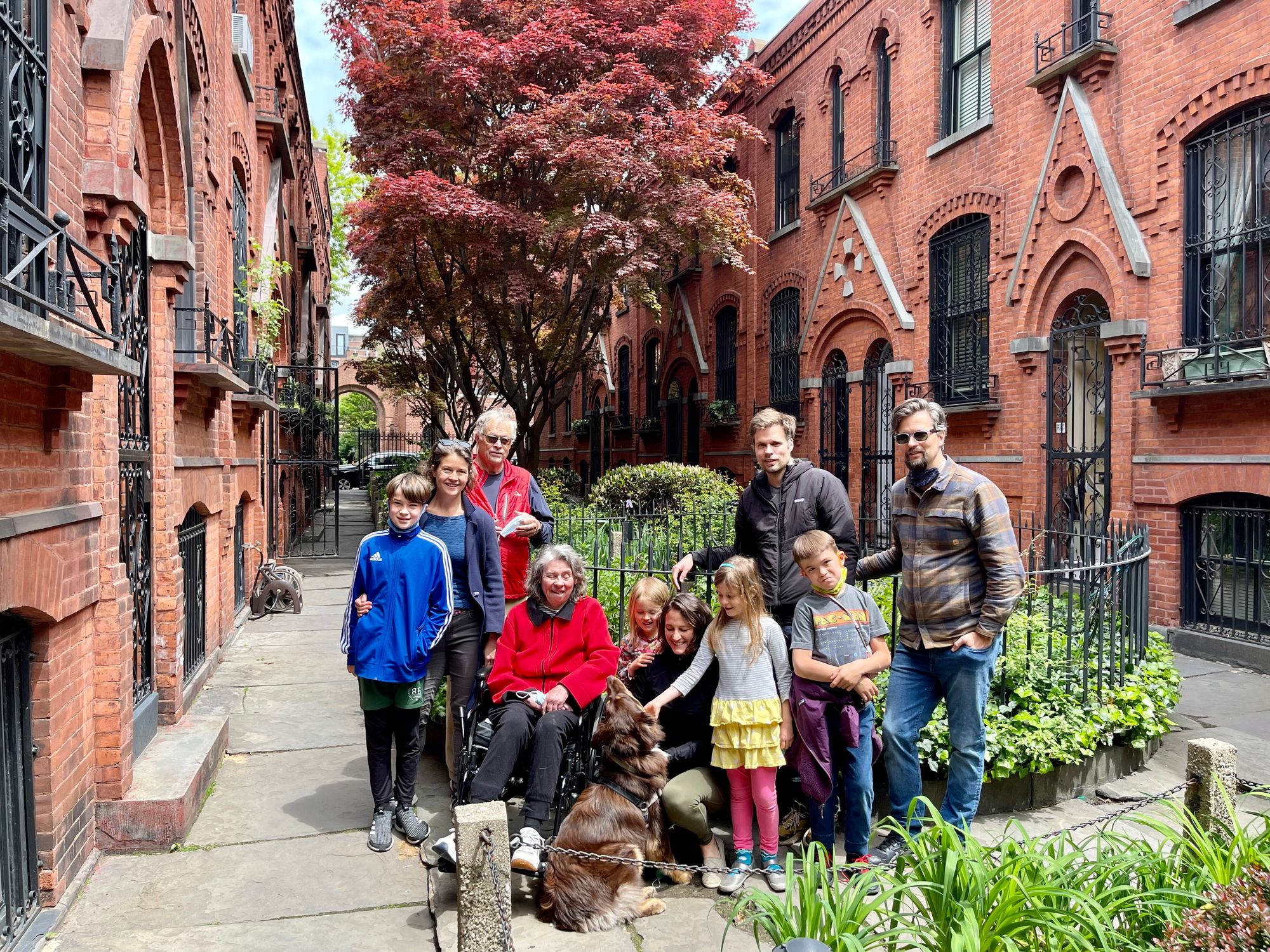
Related Articles
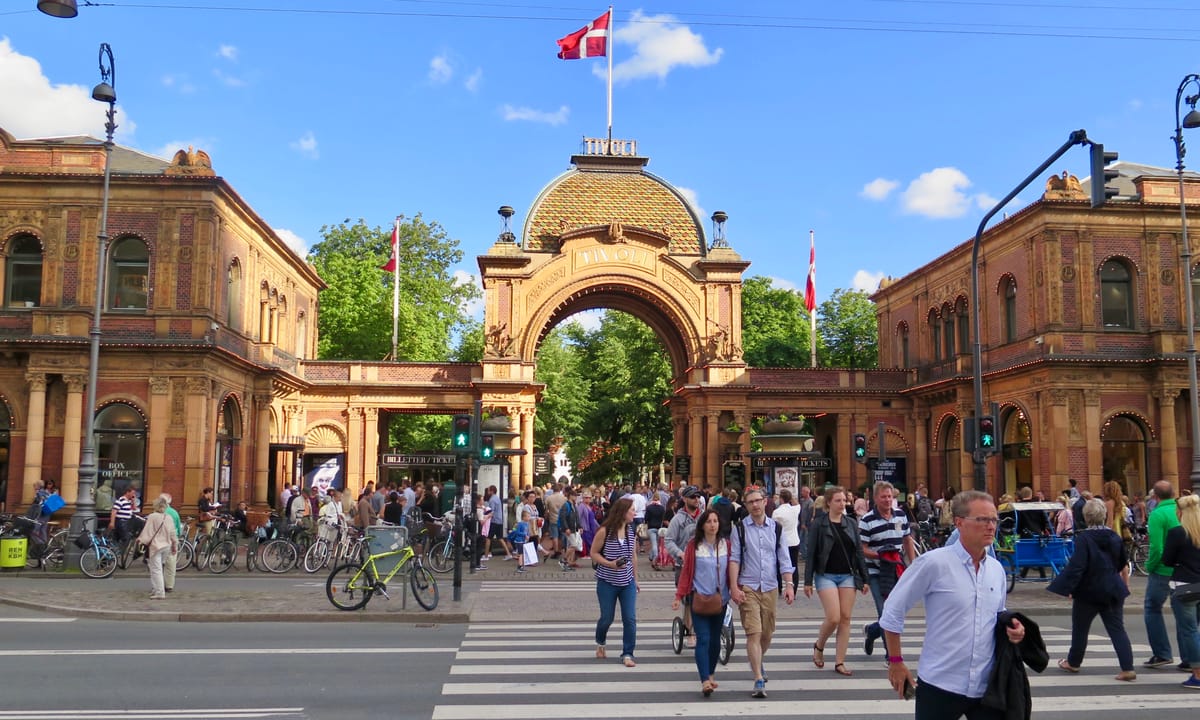
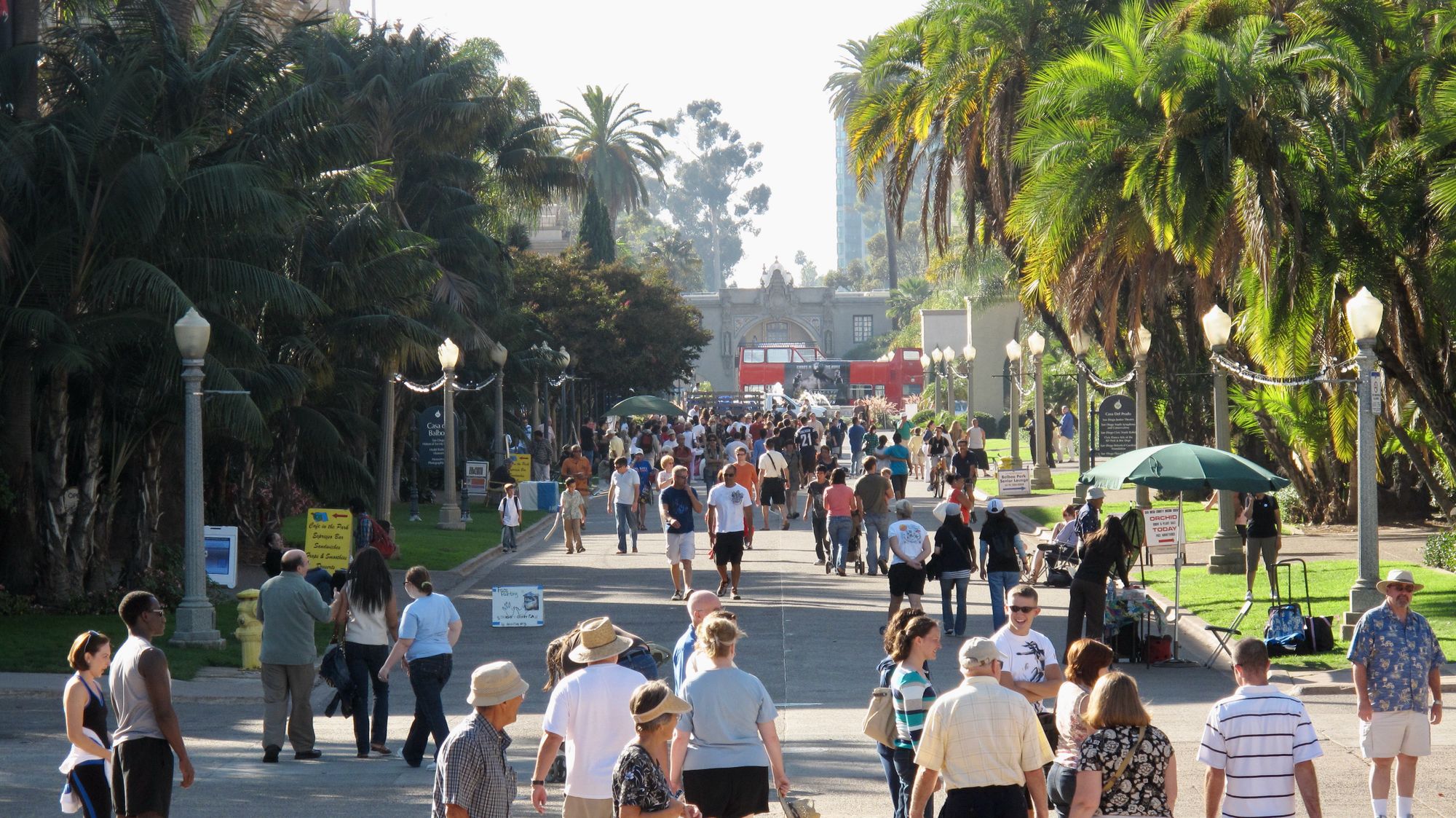
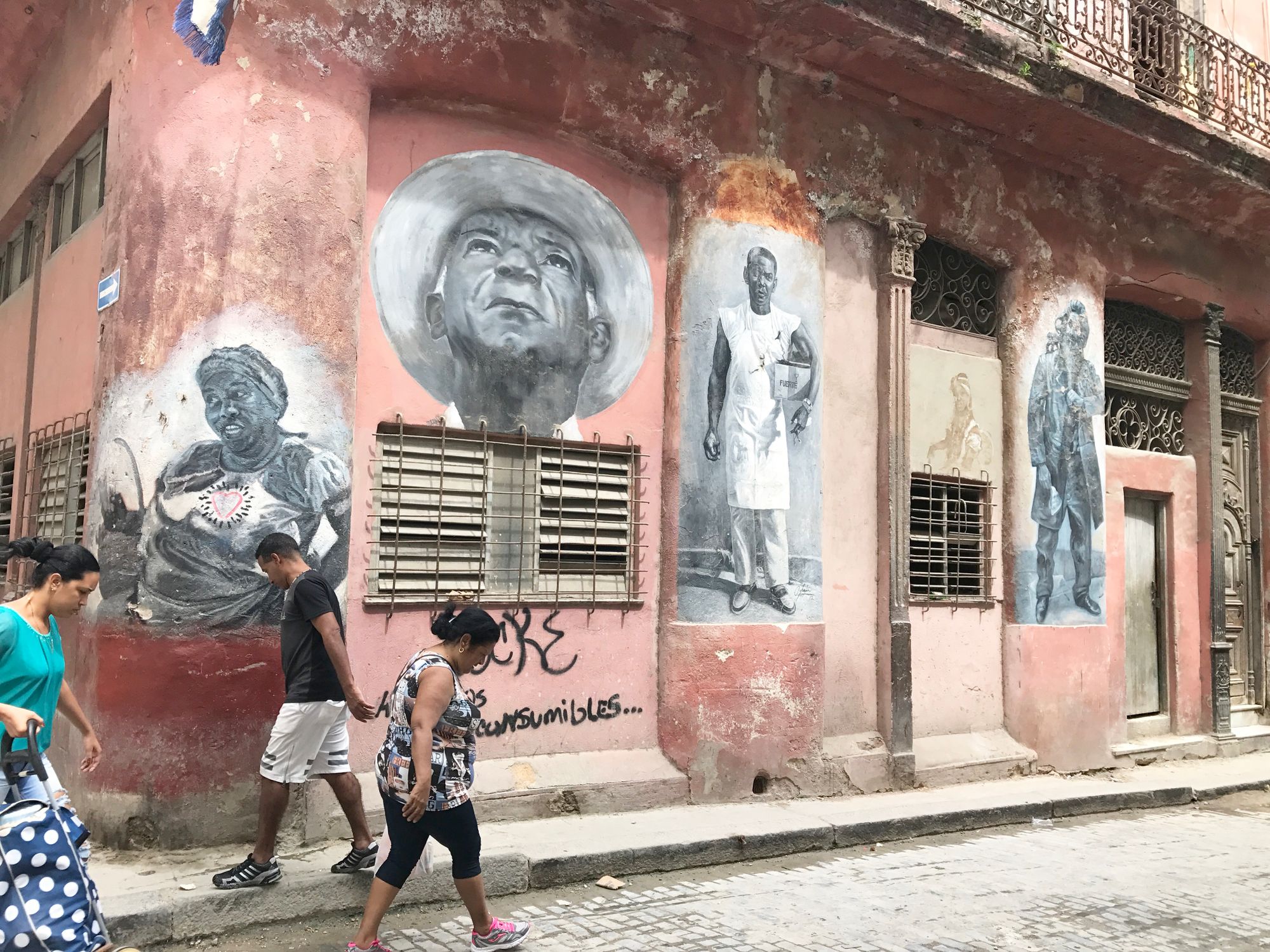
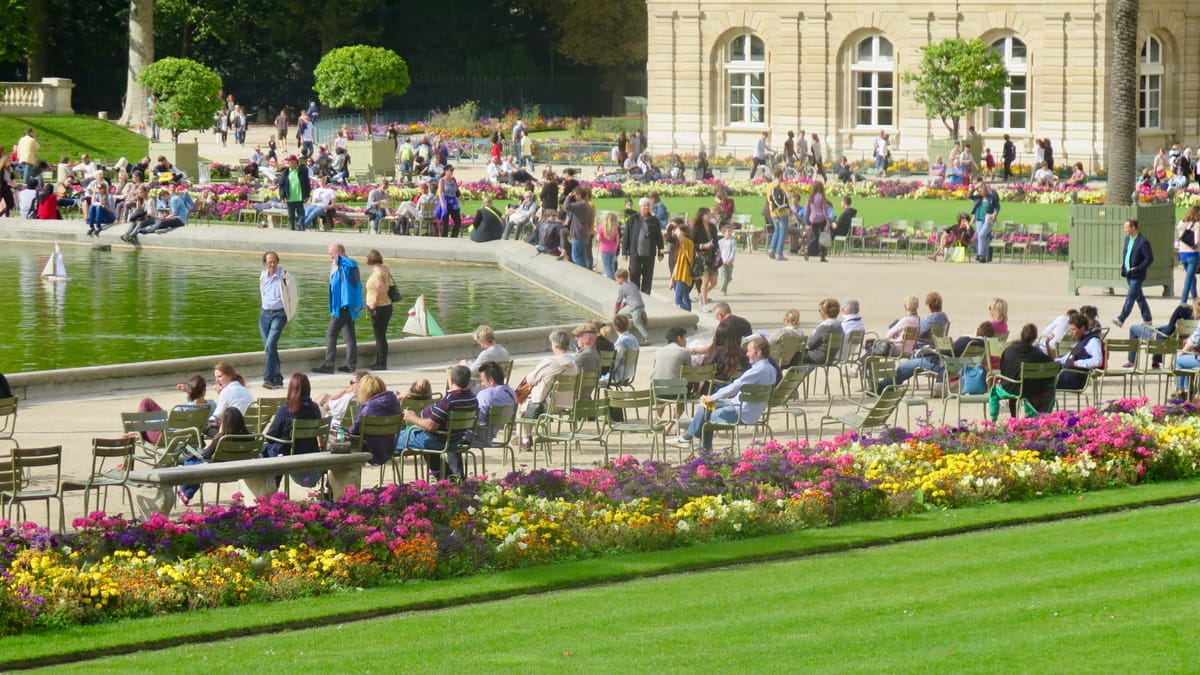
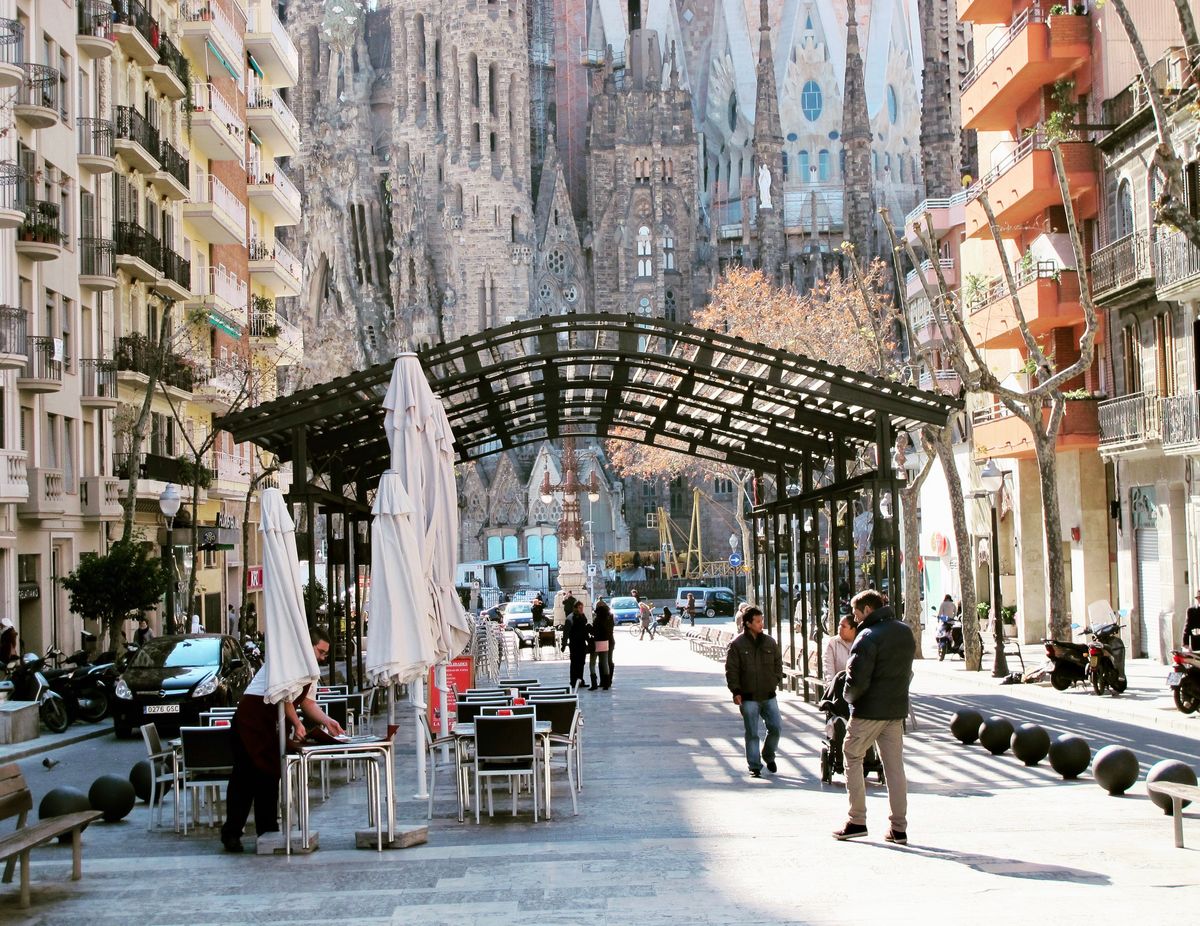
About us and the global Placemaking movement
